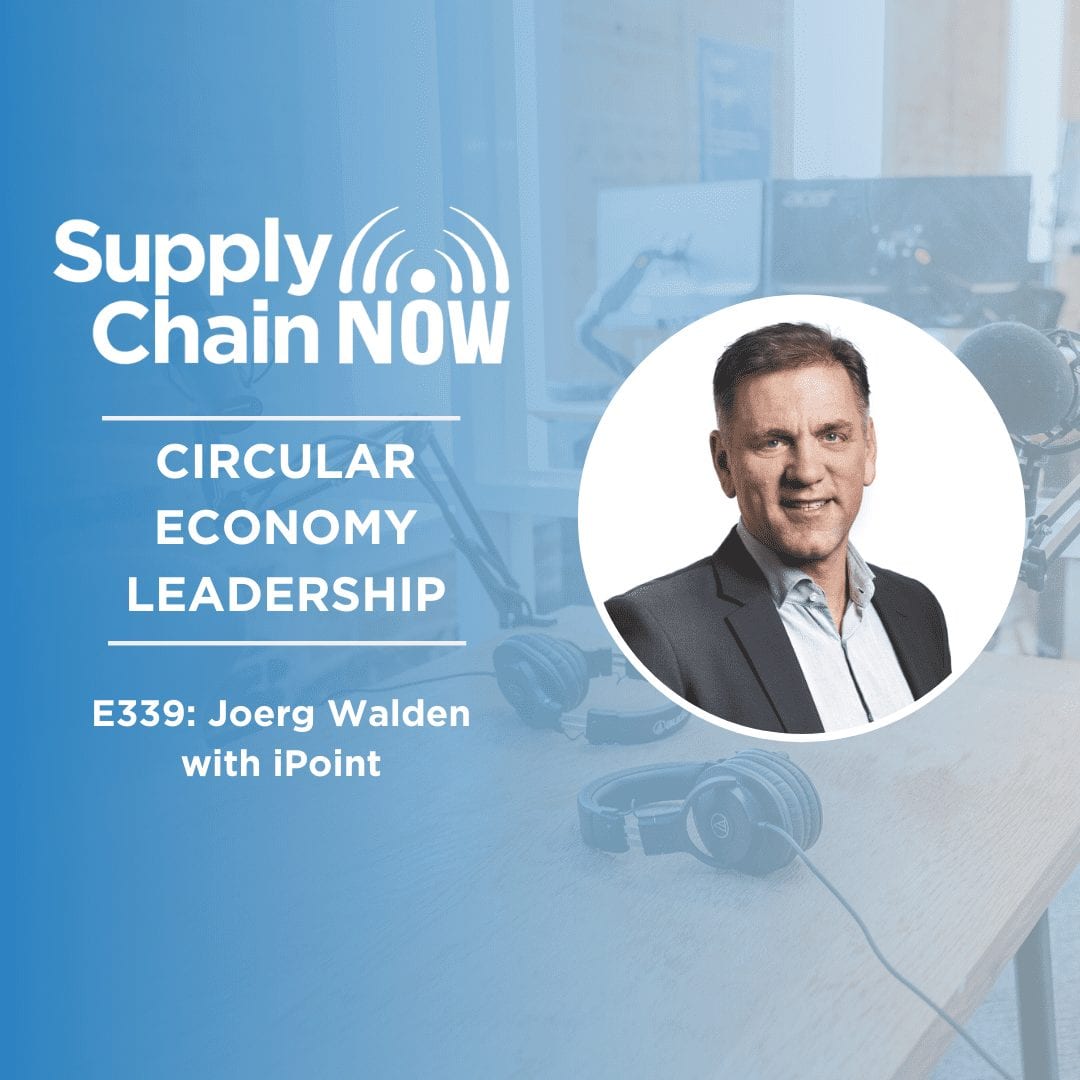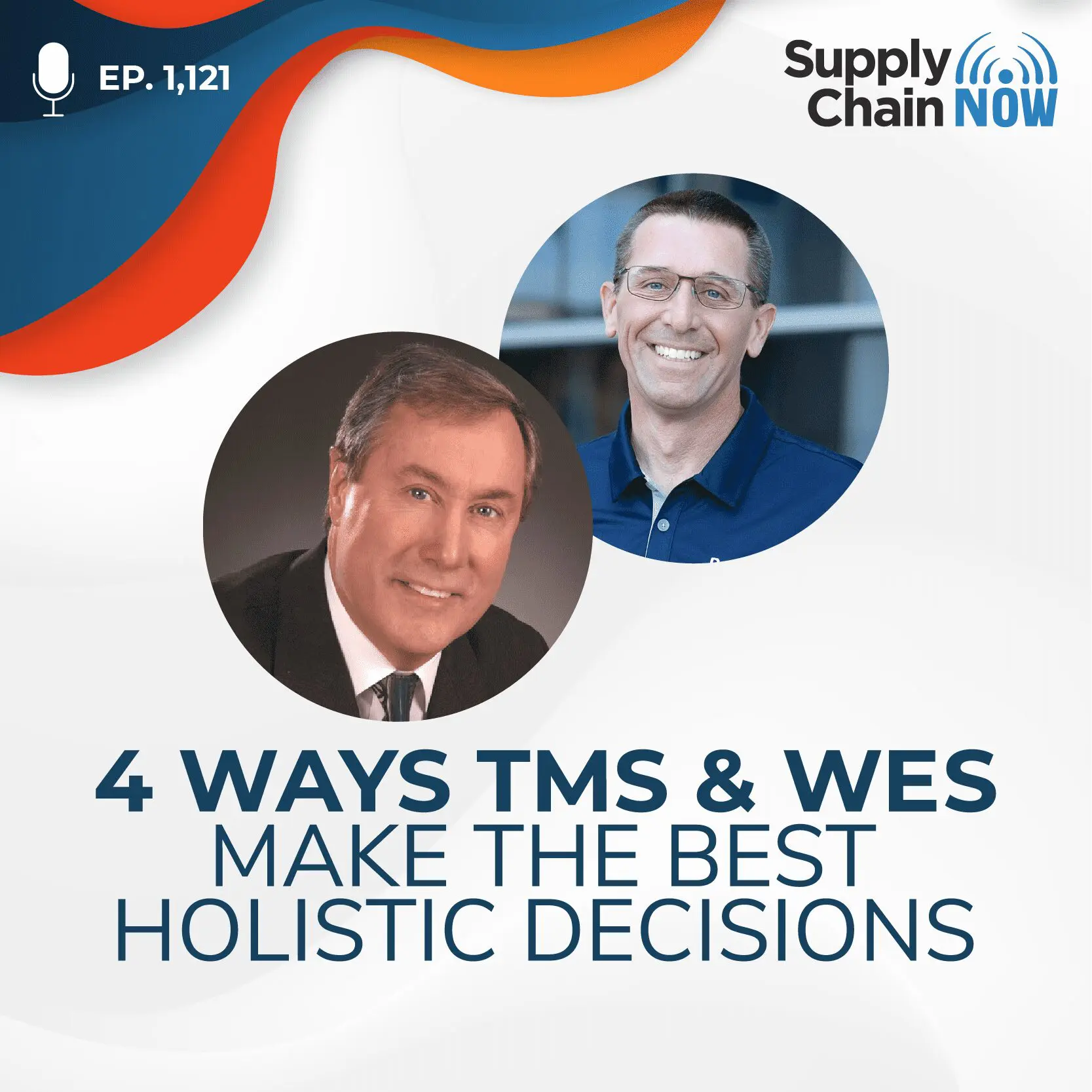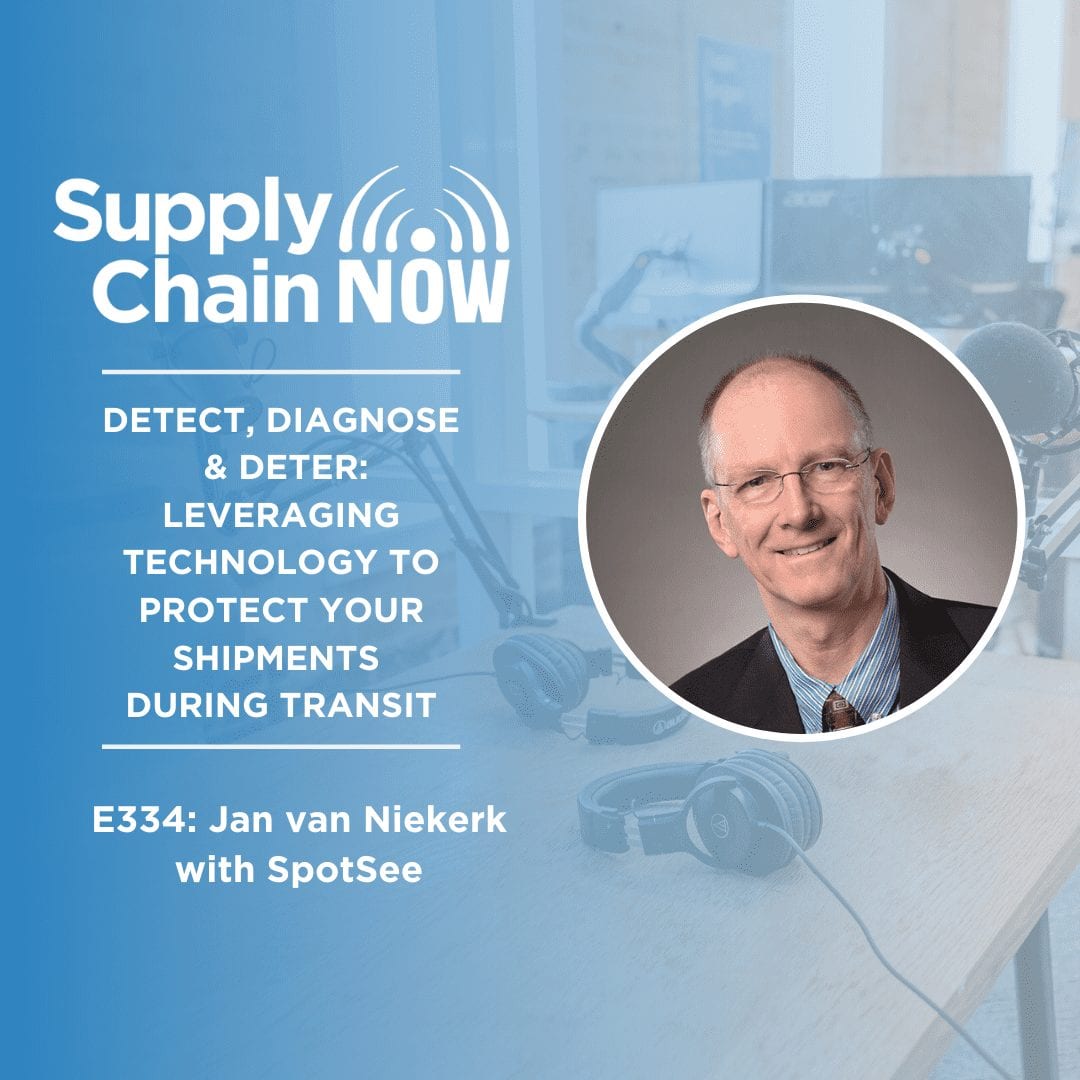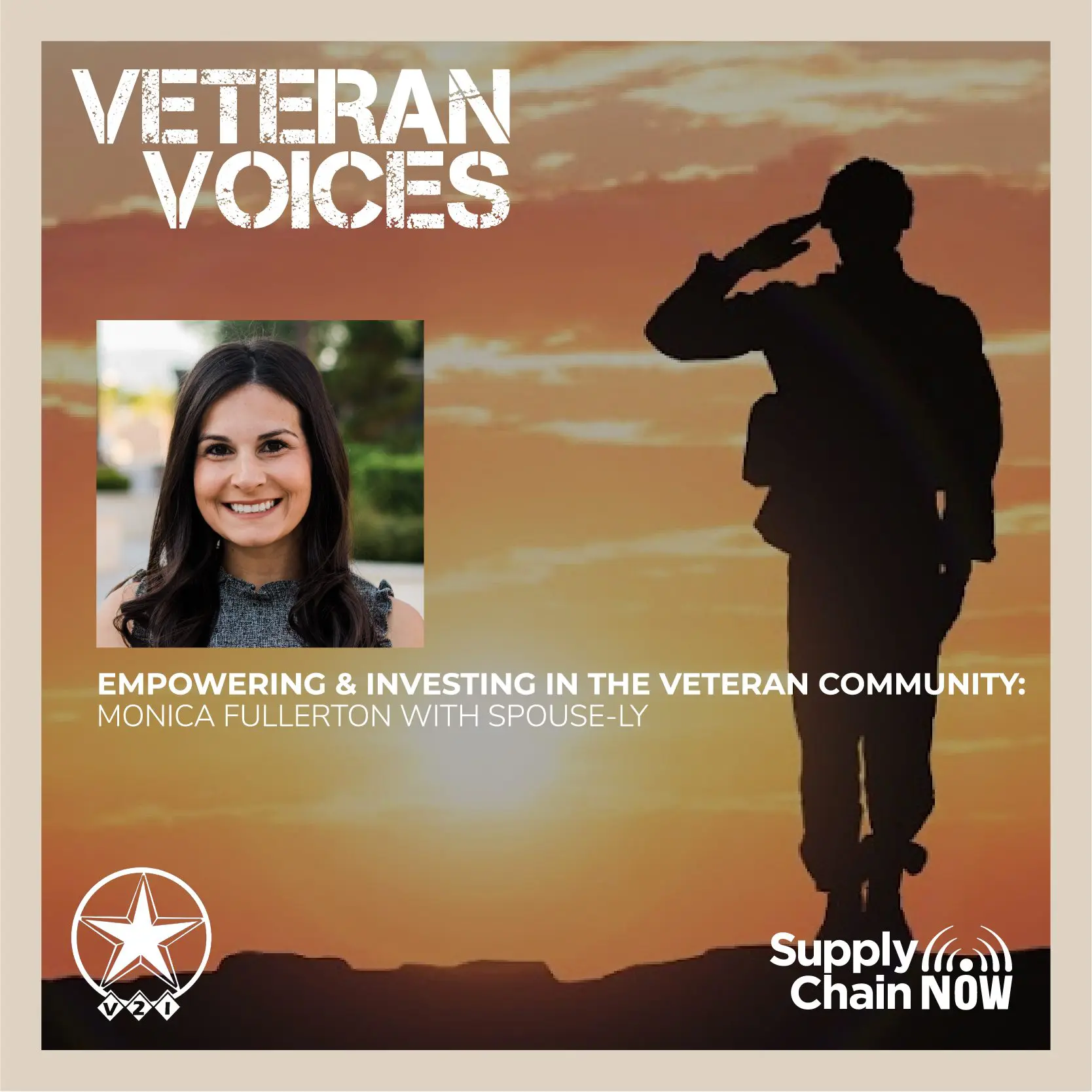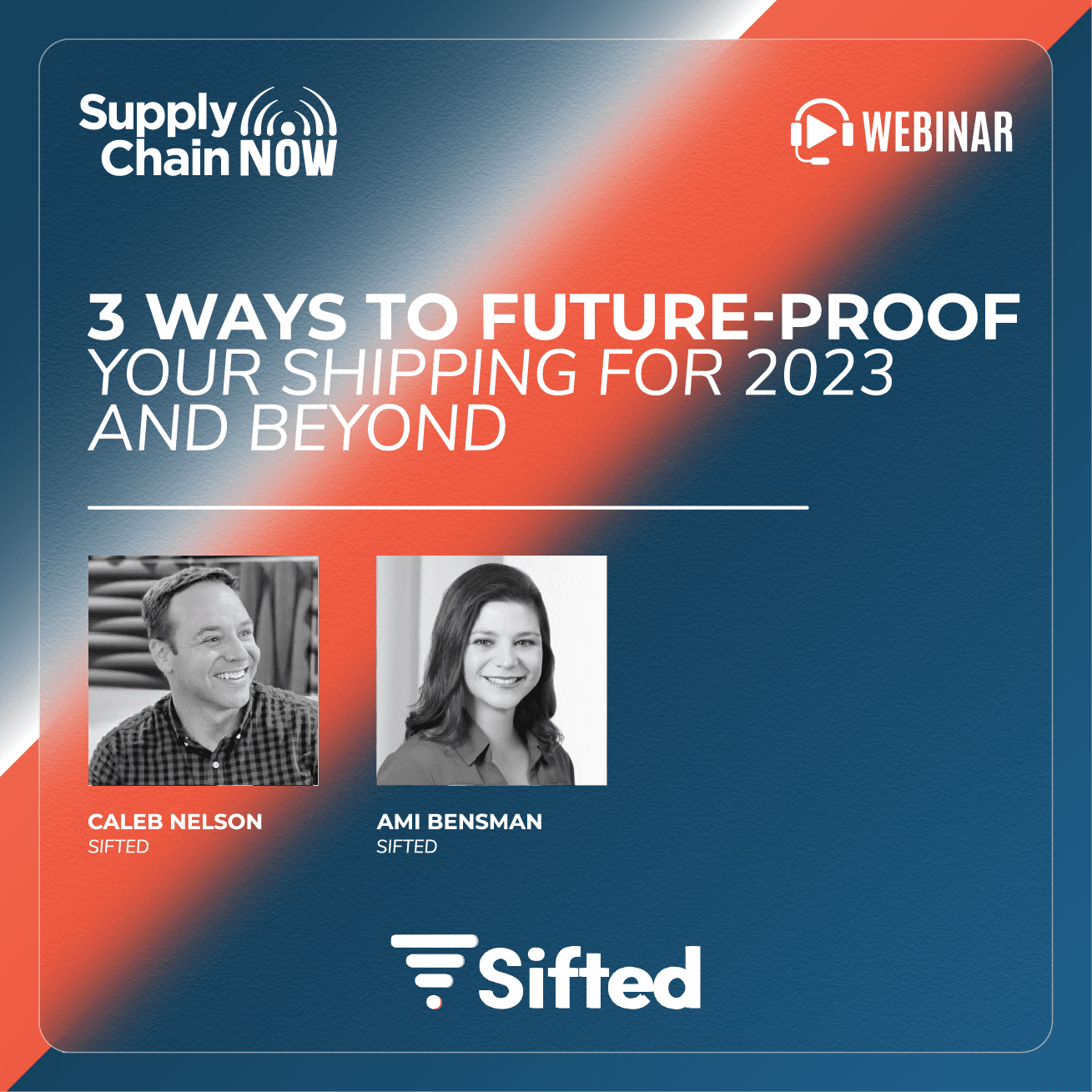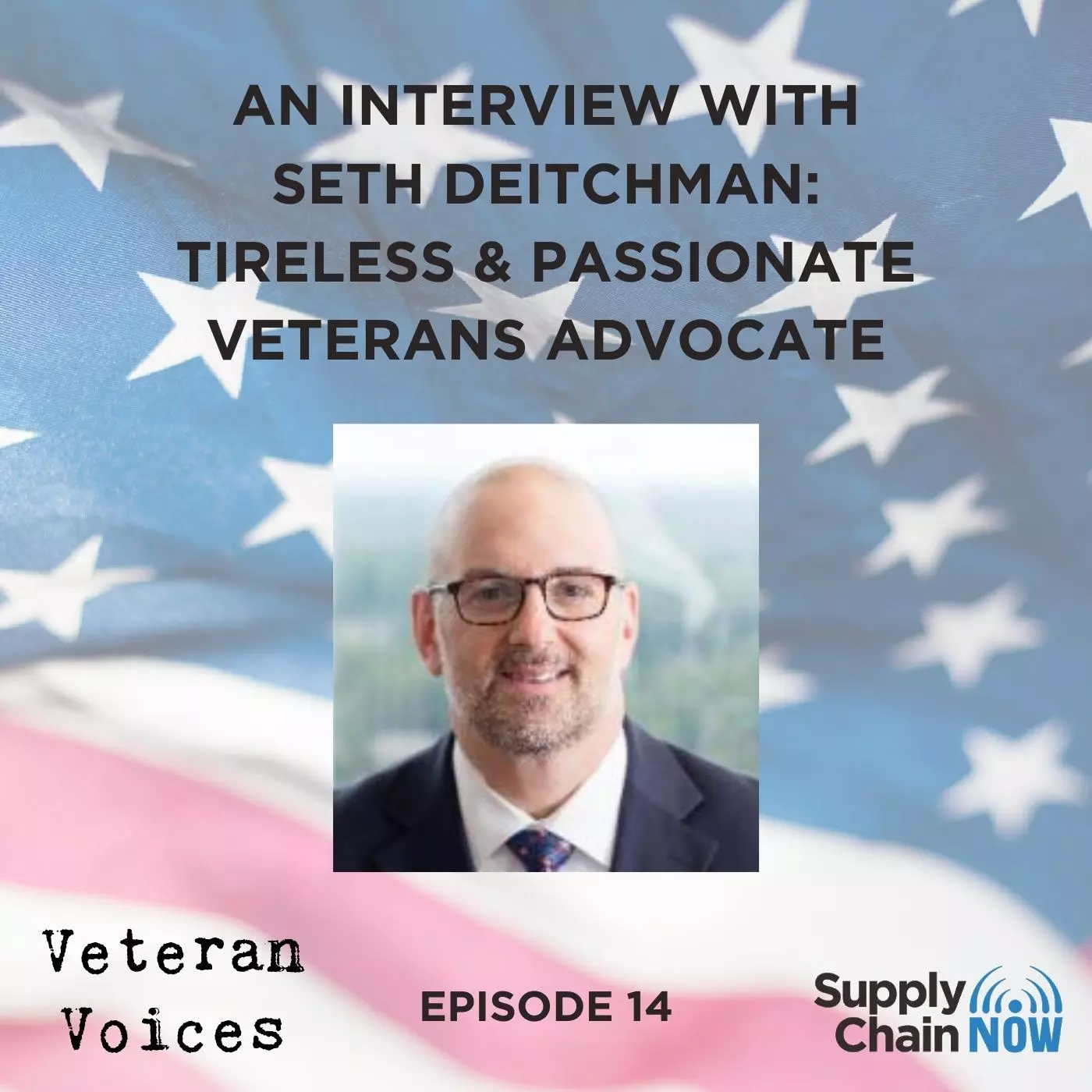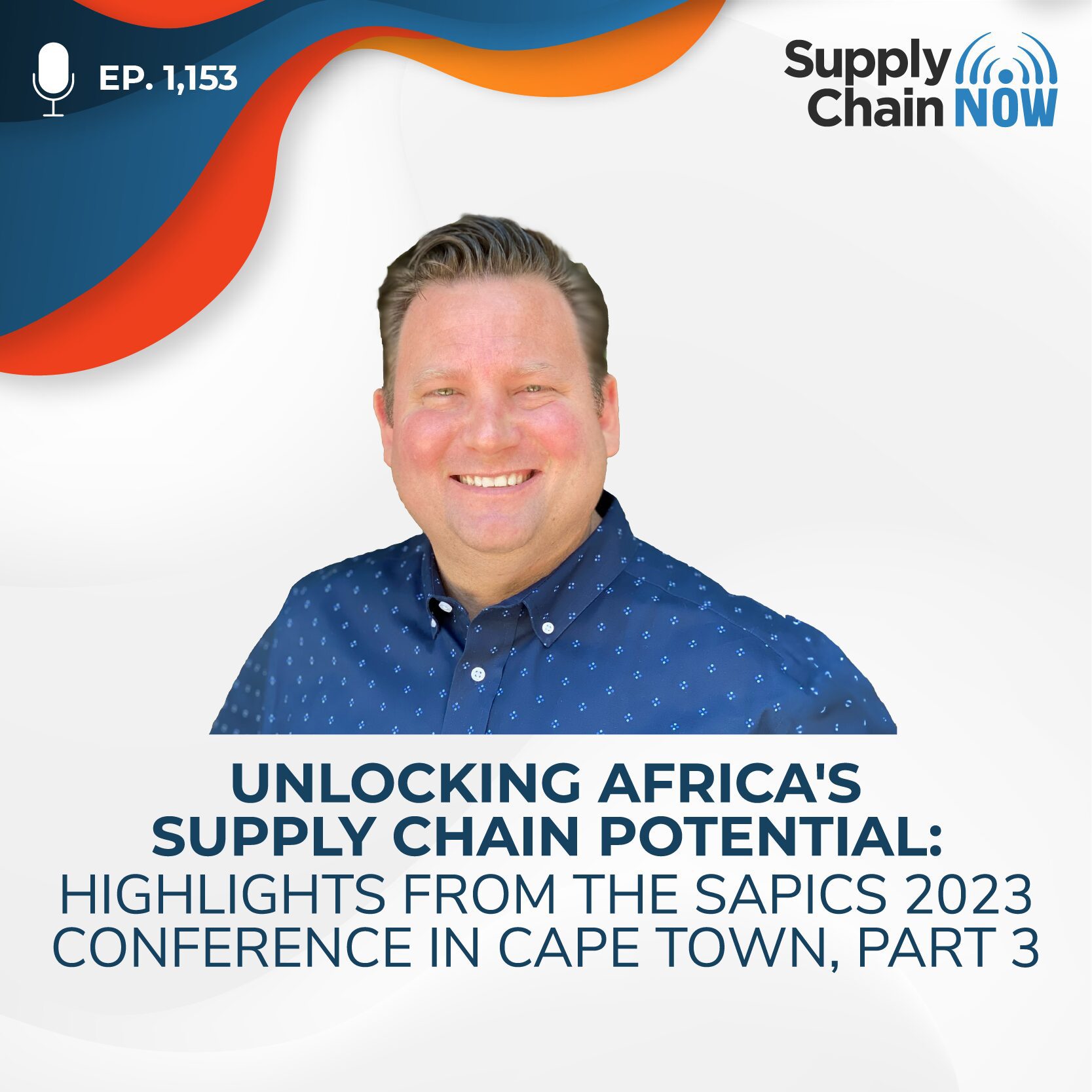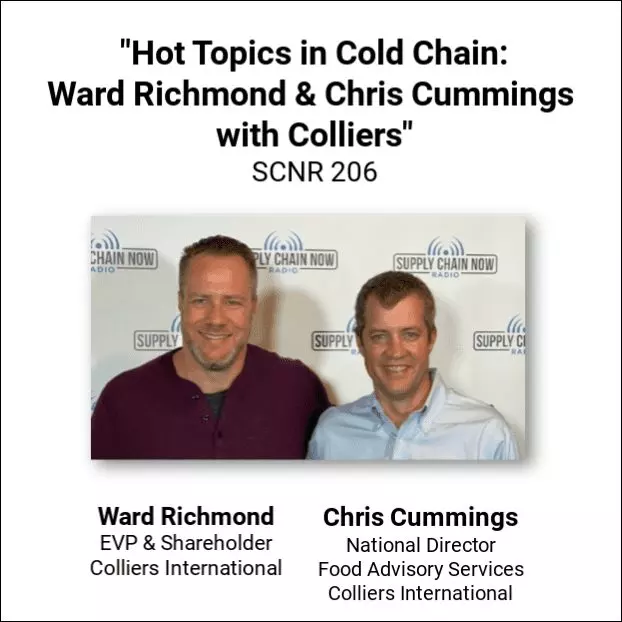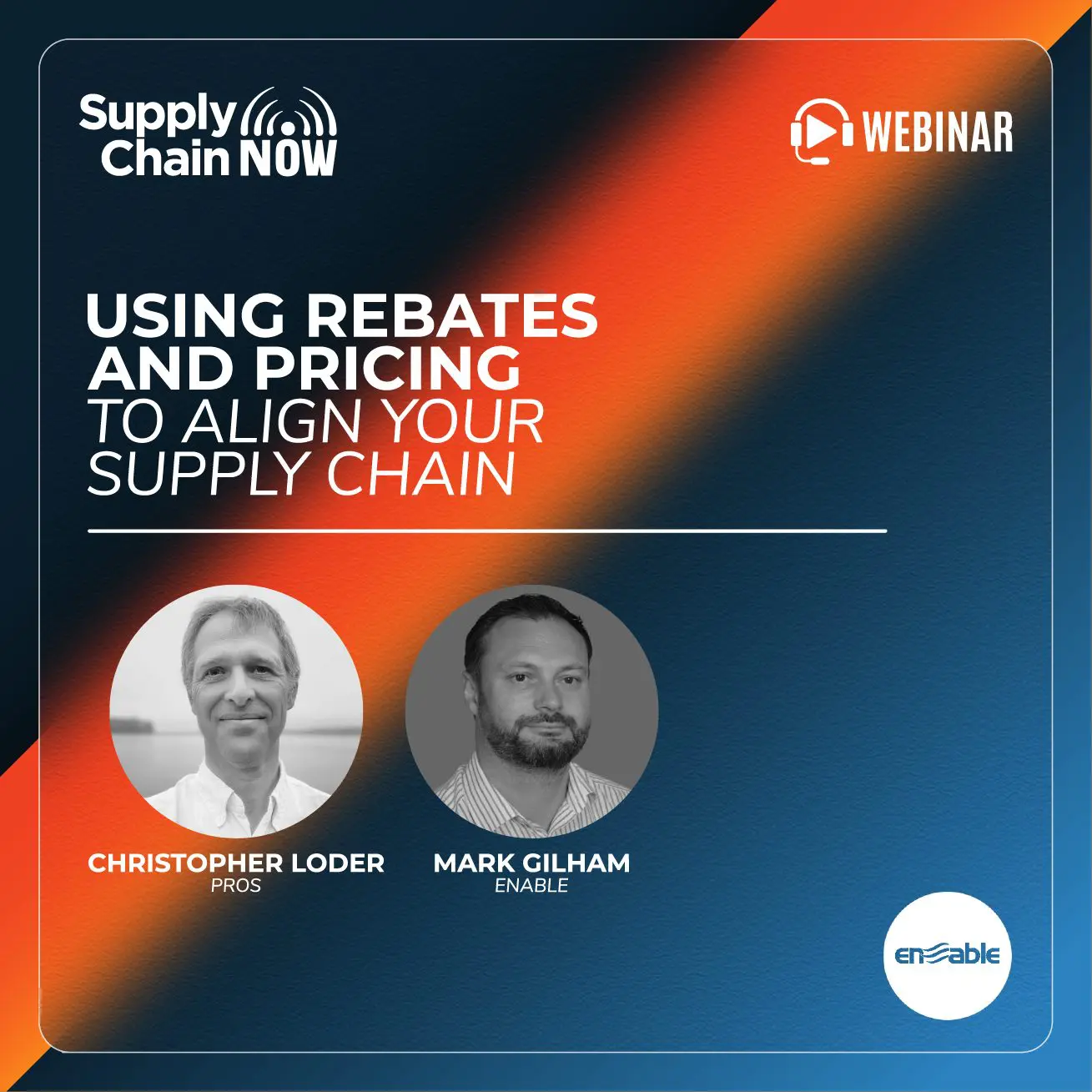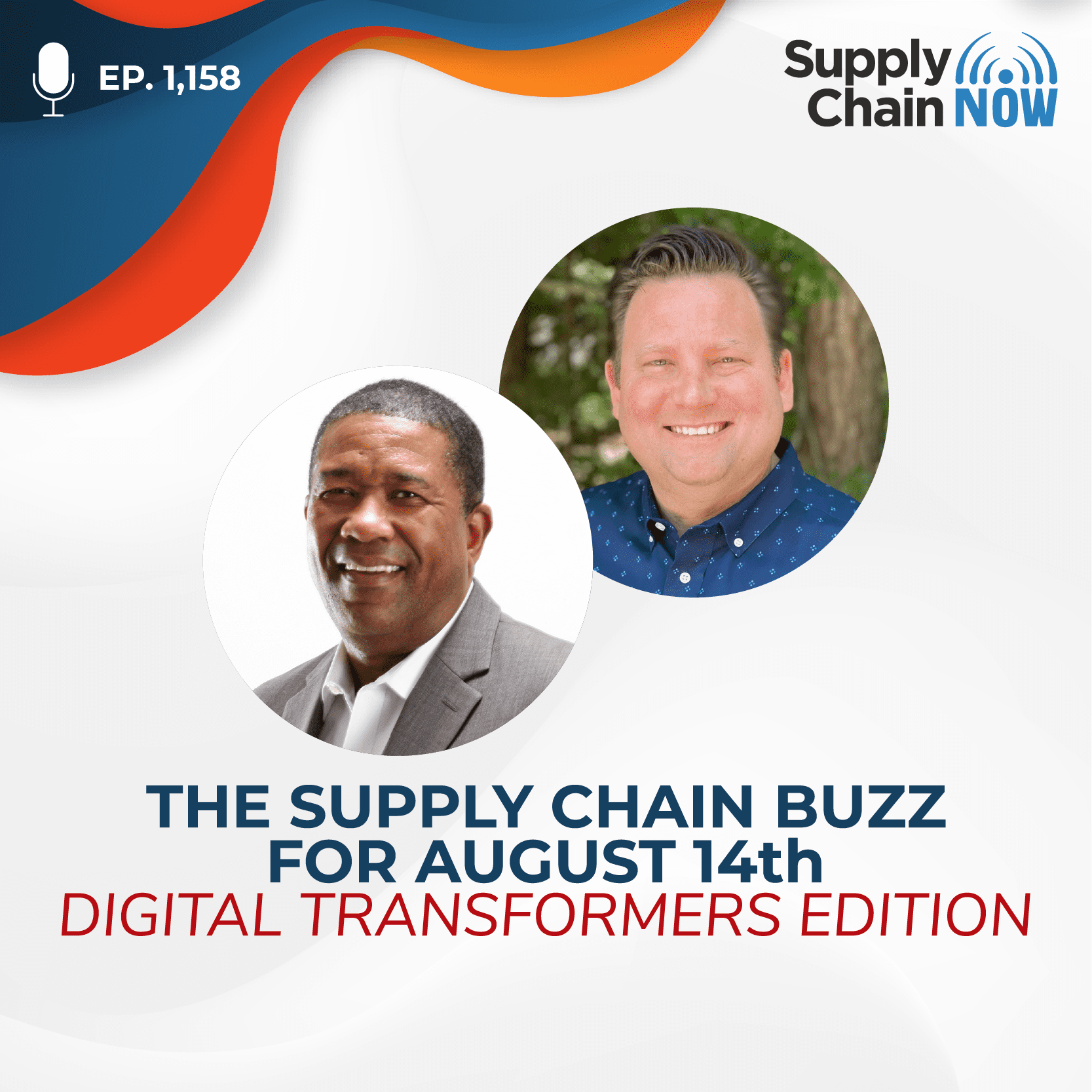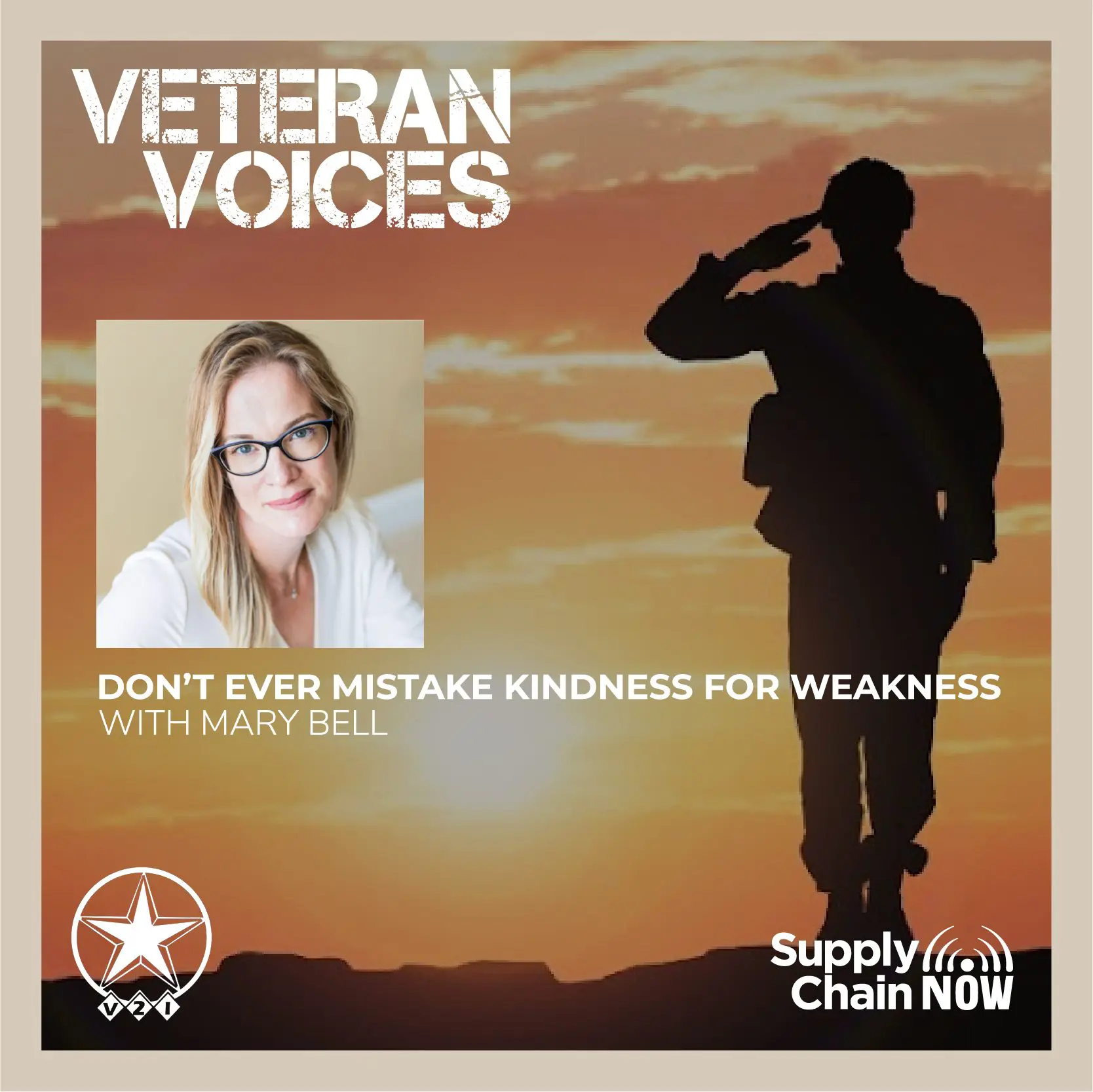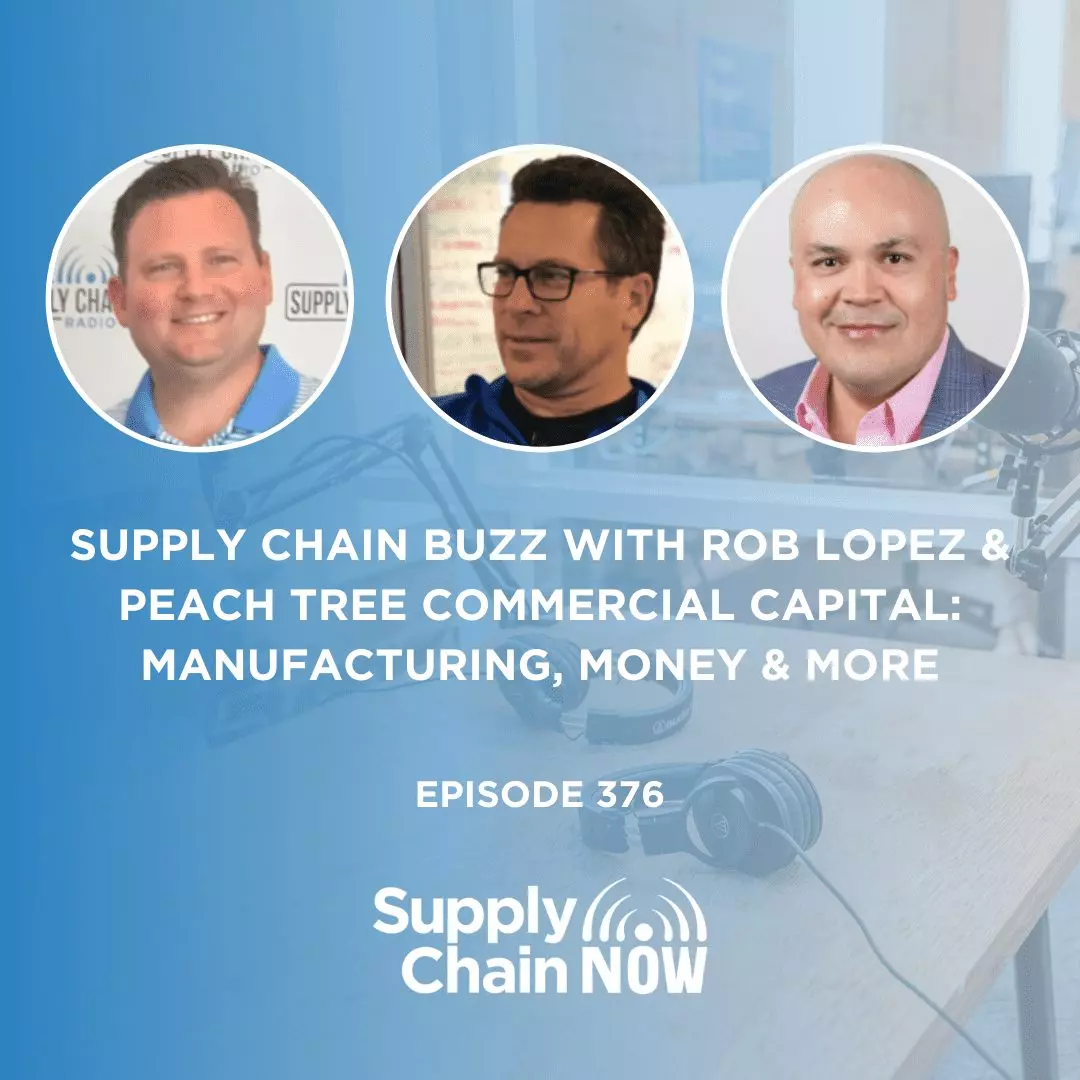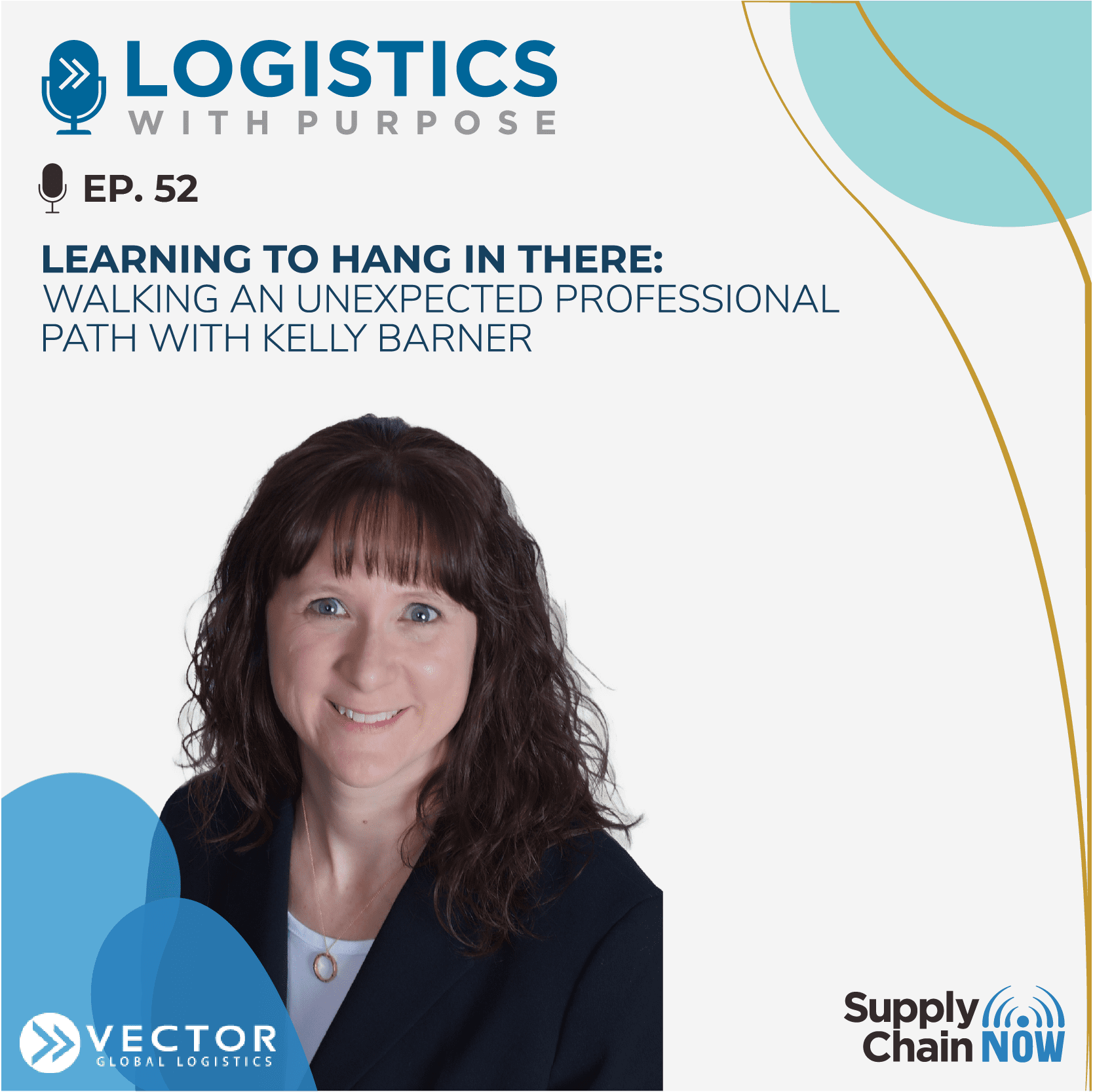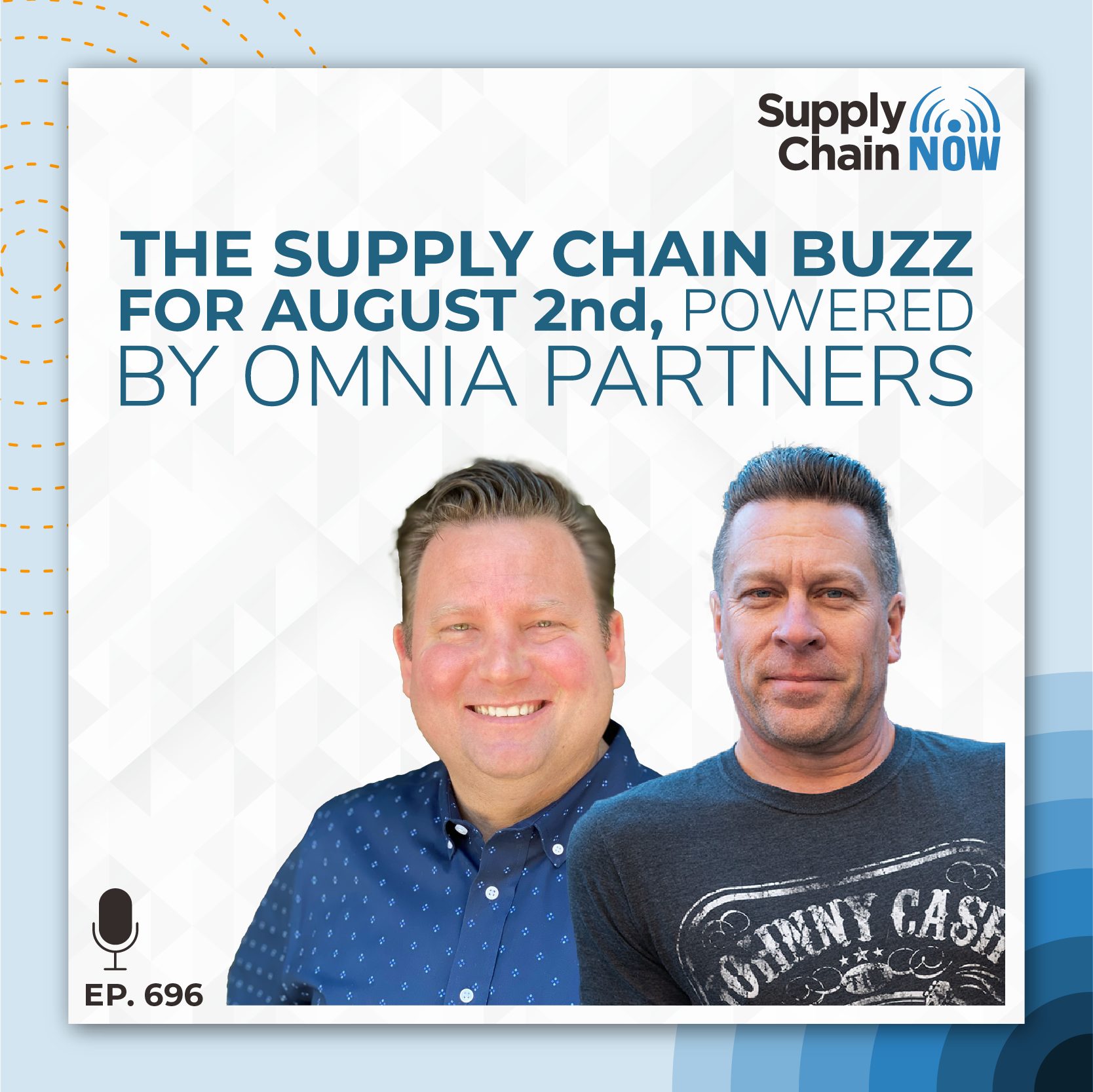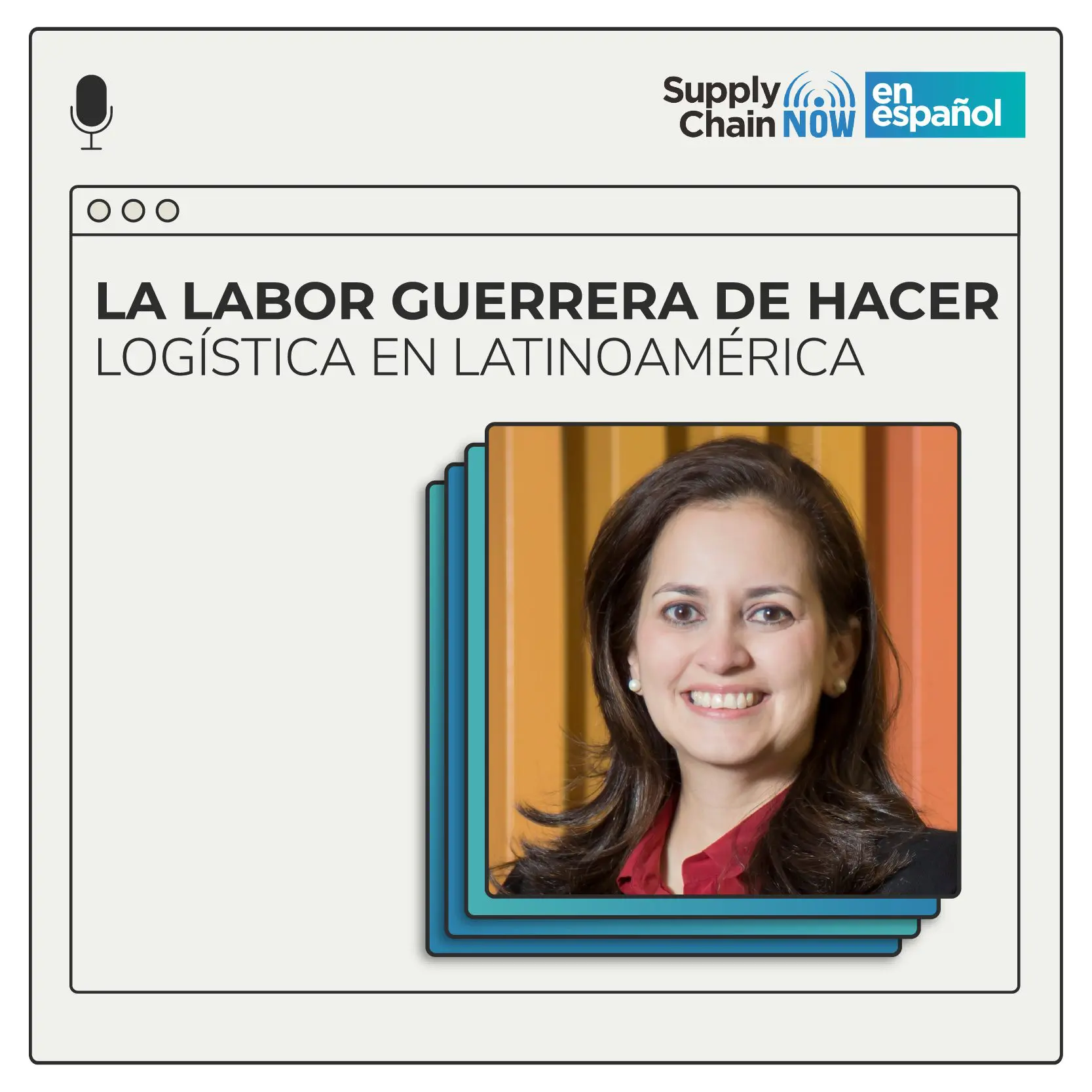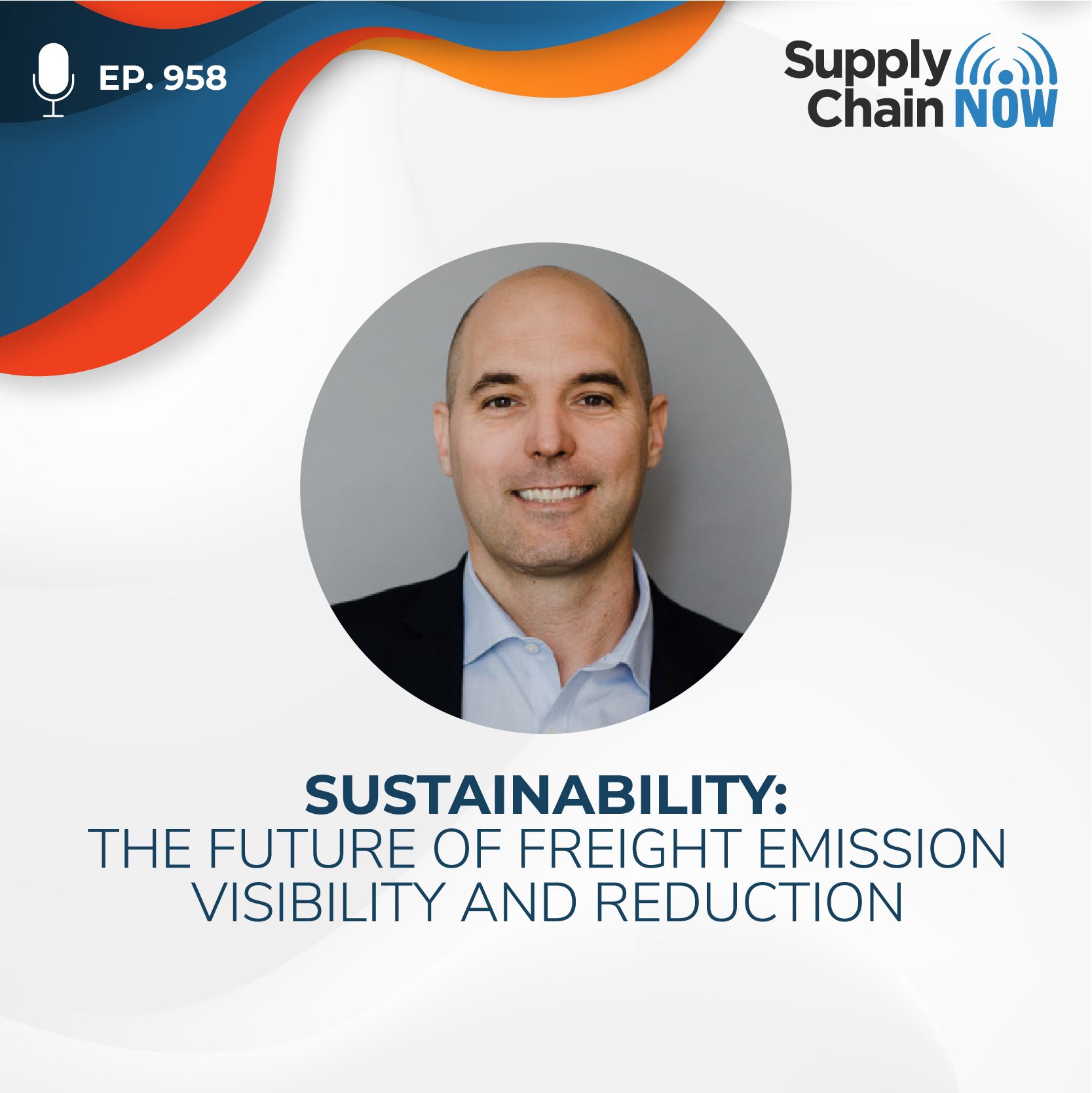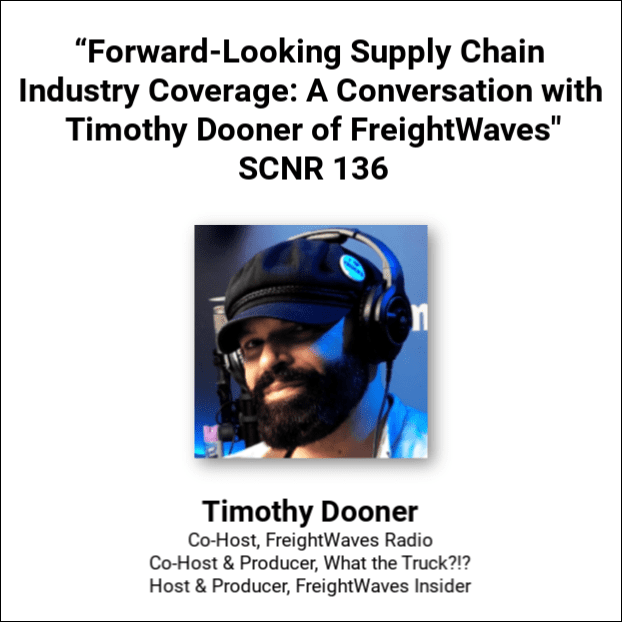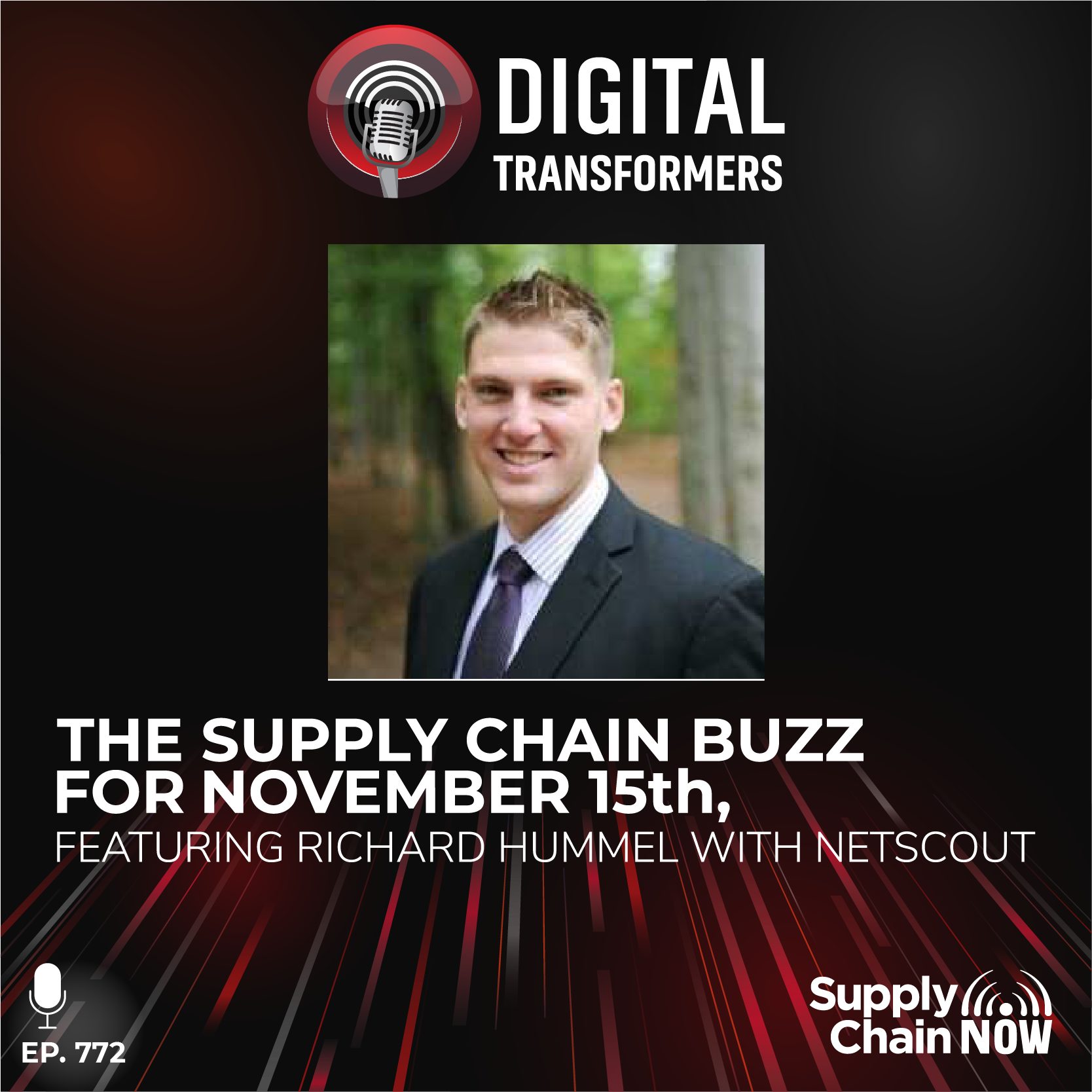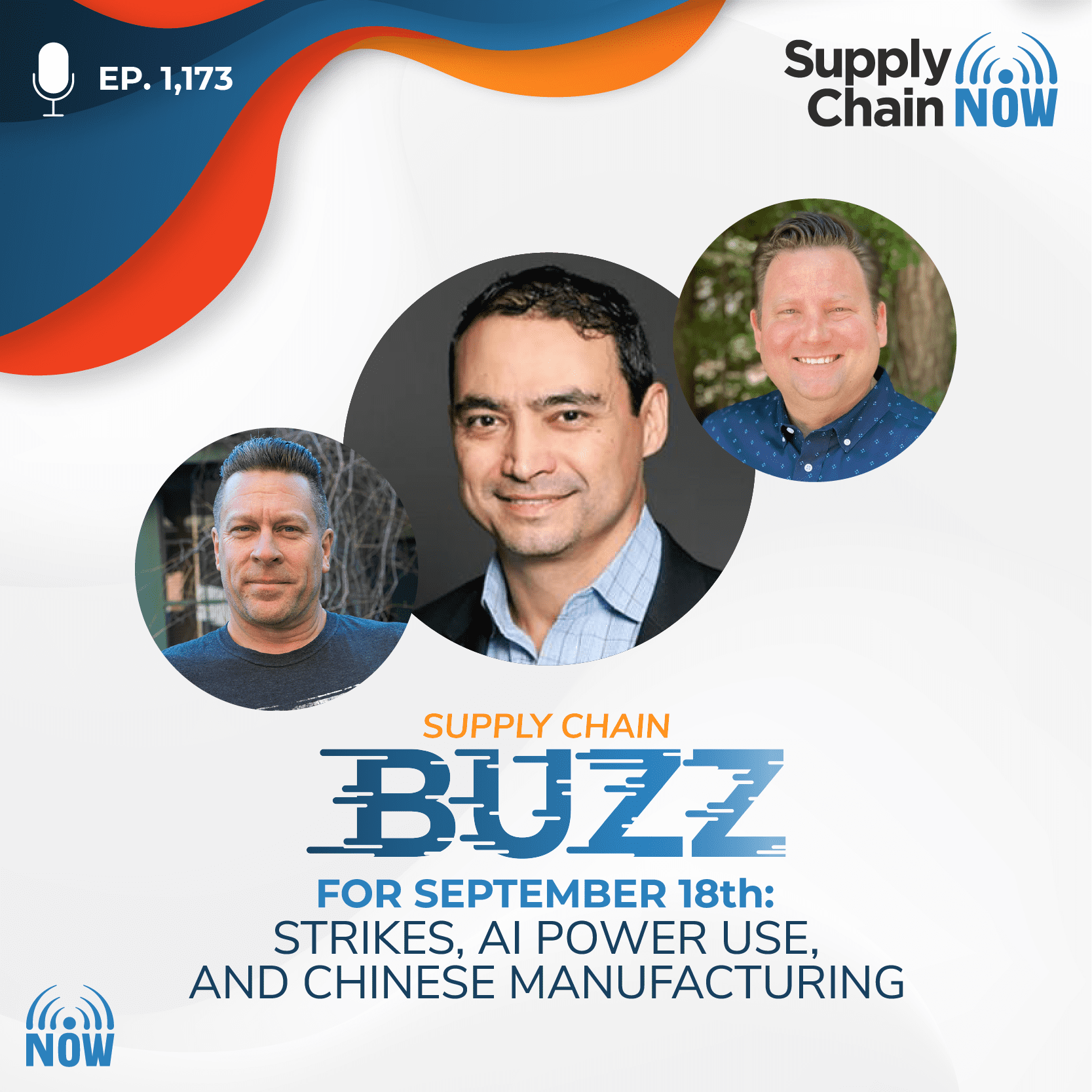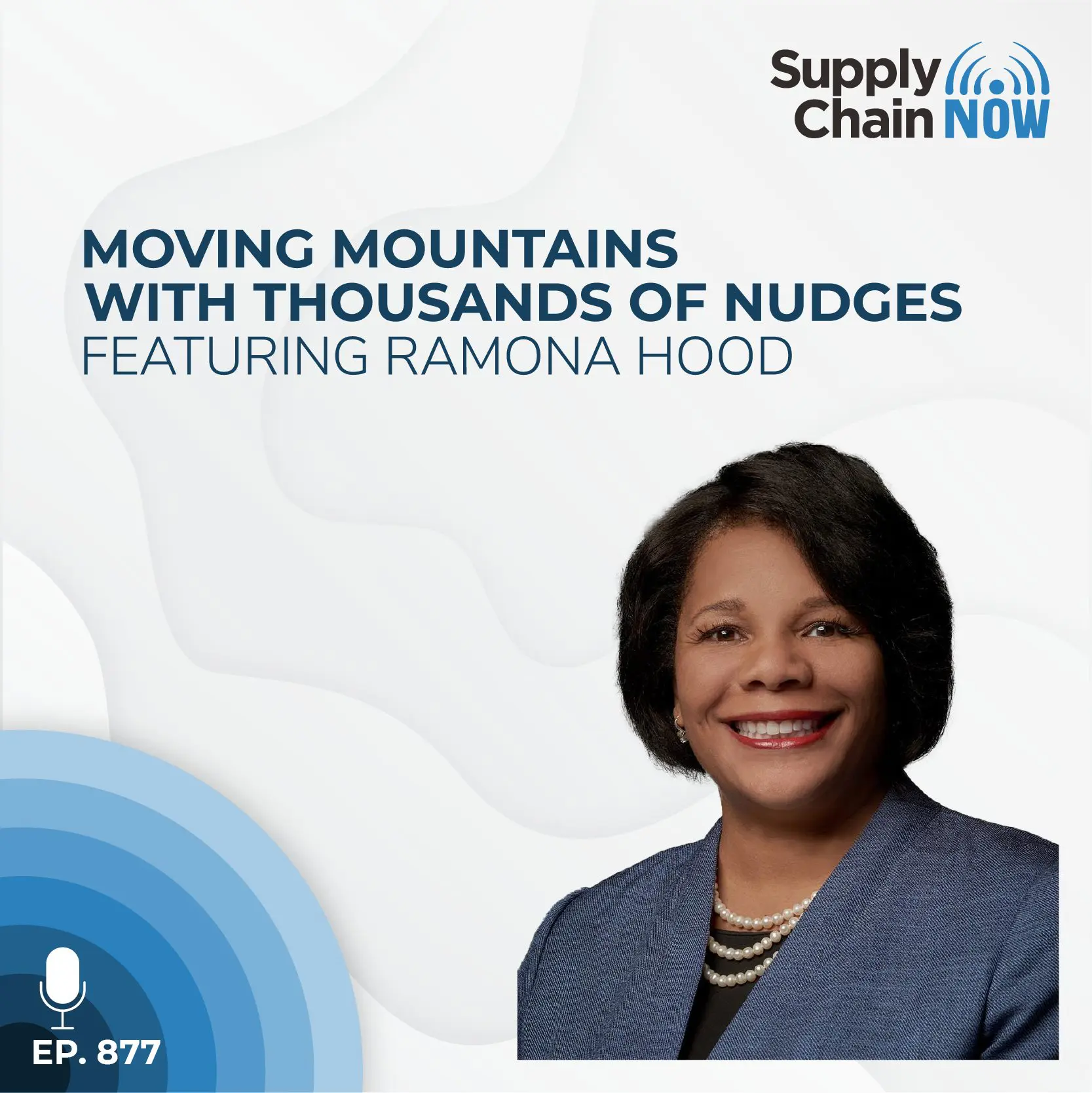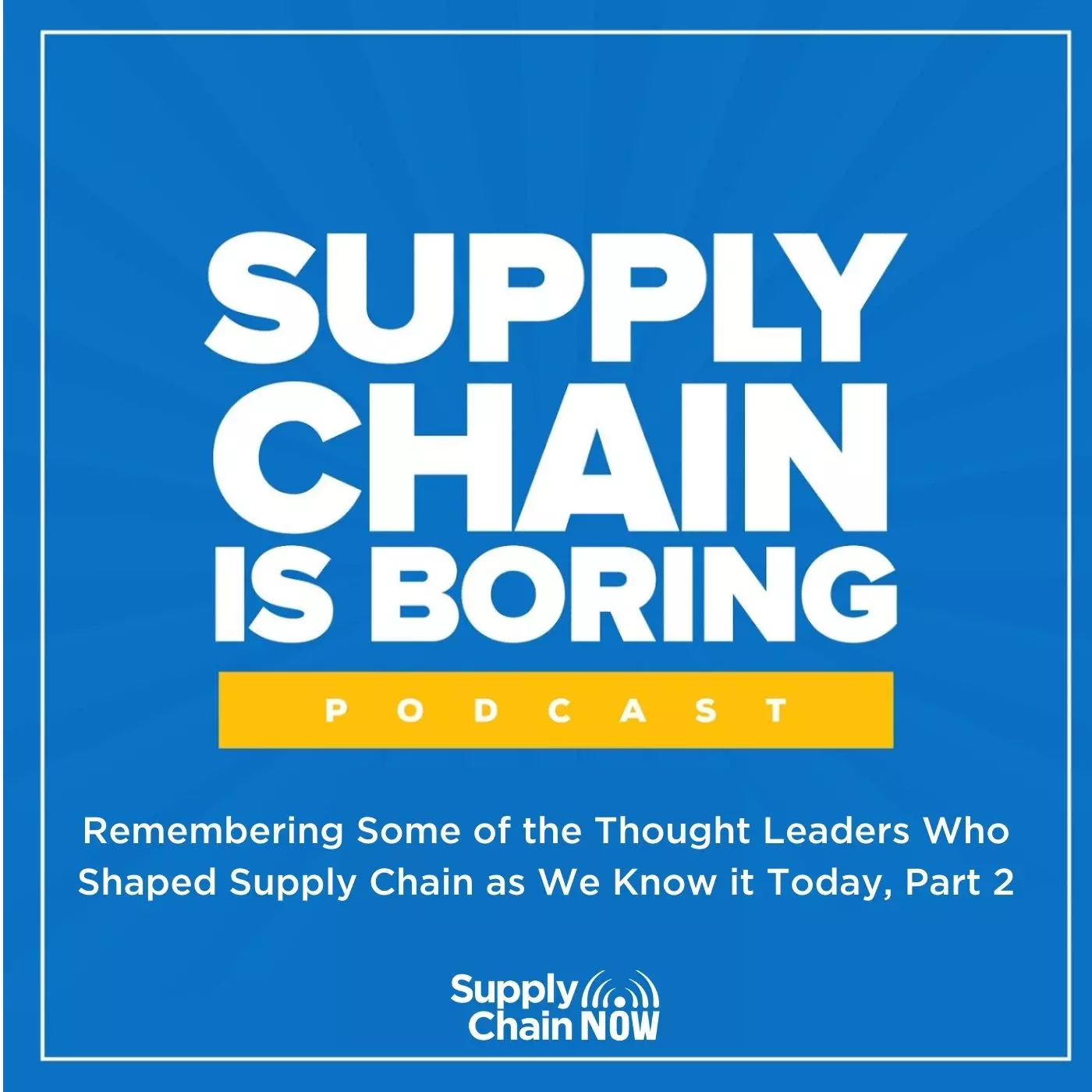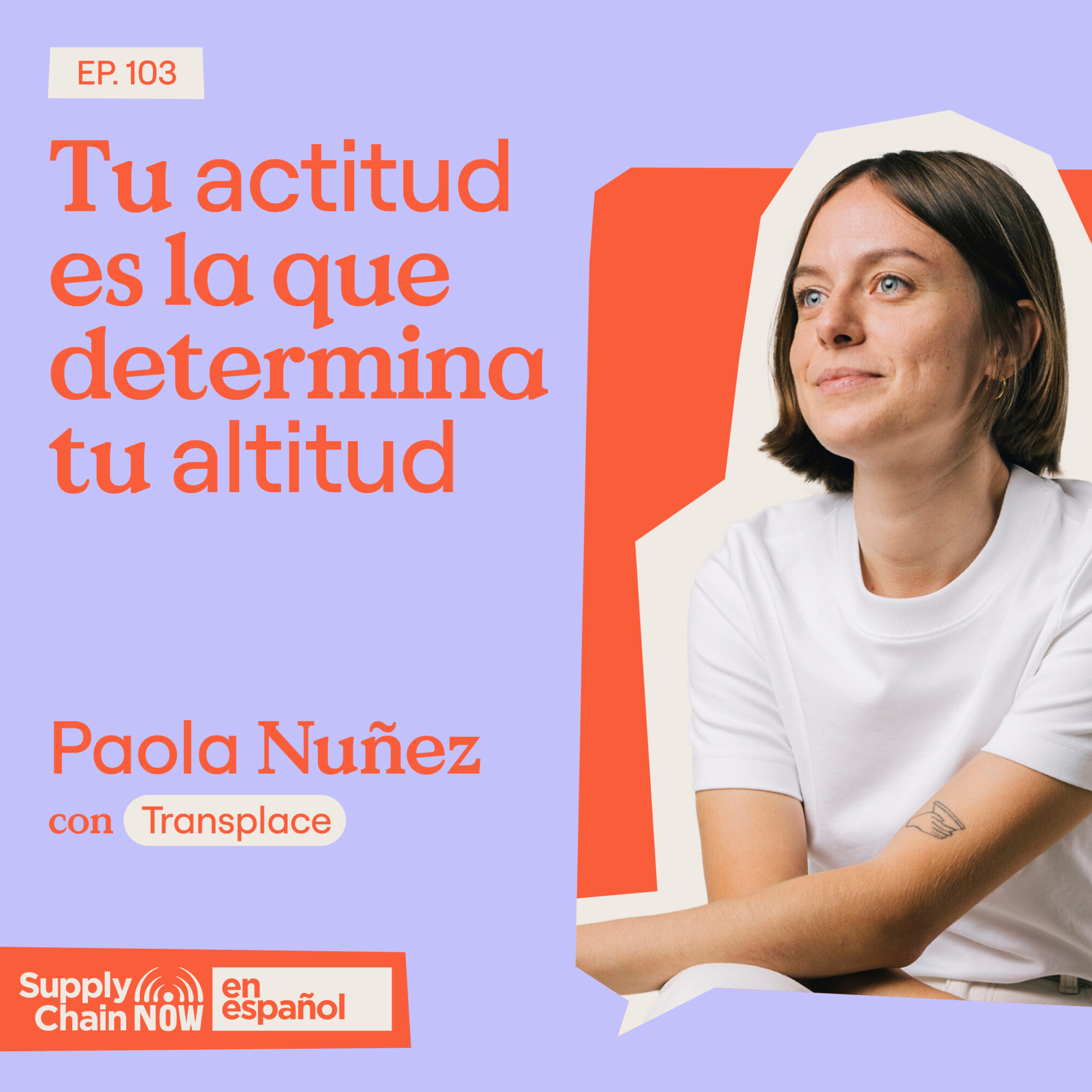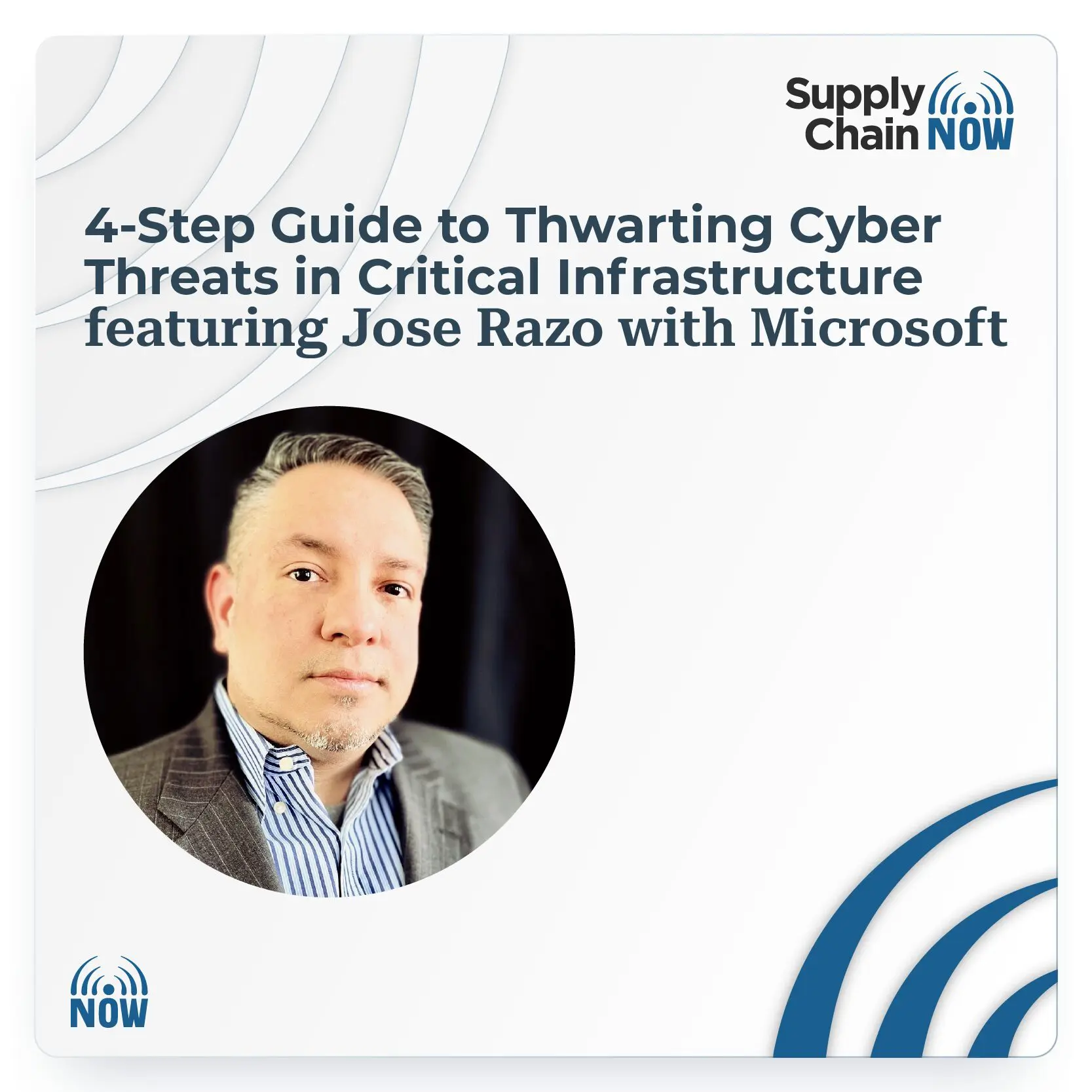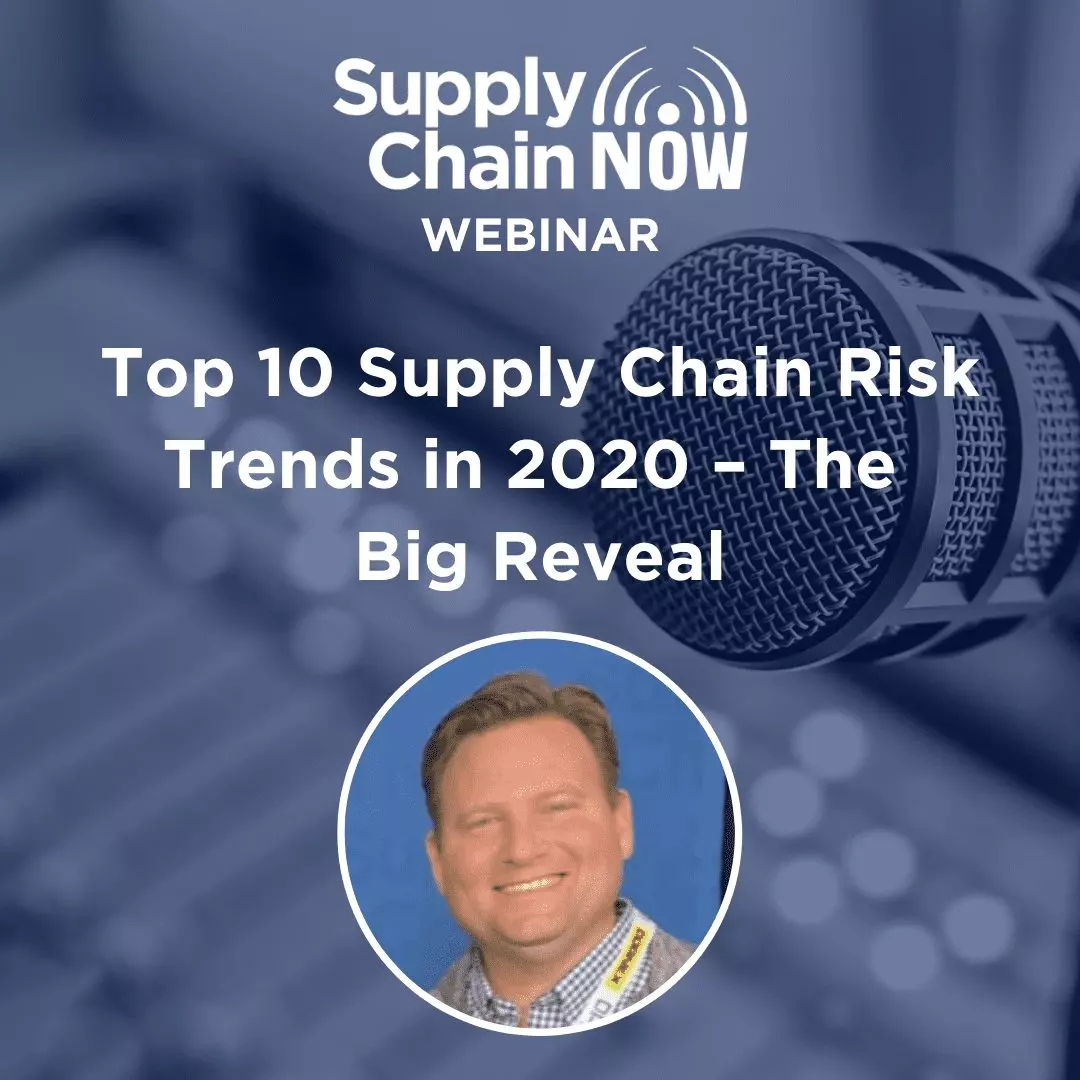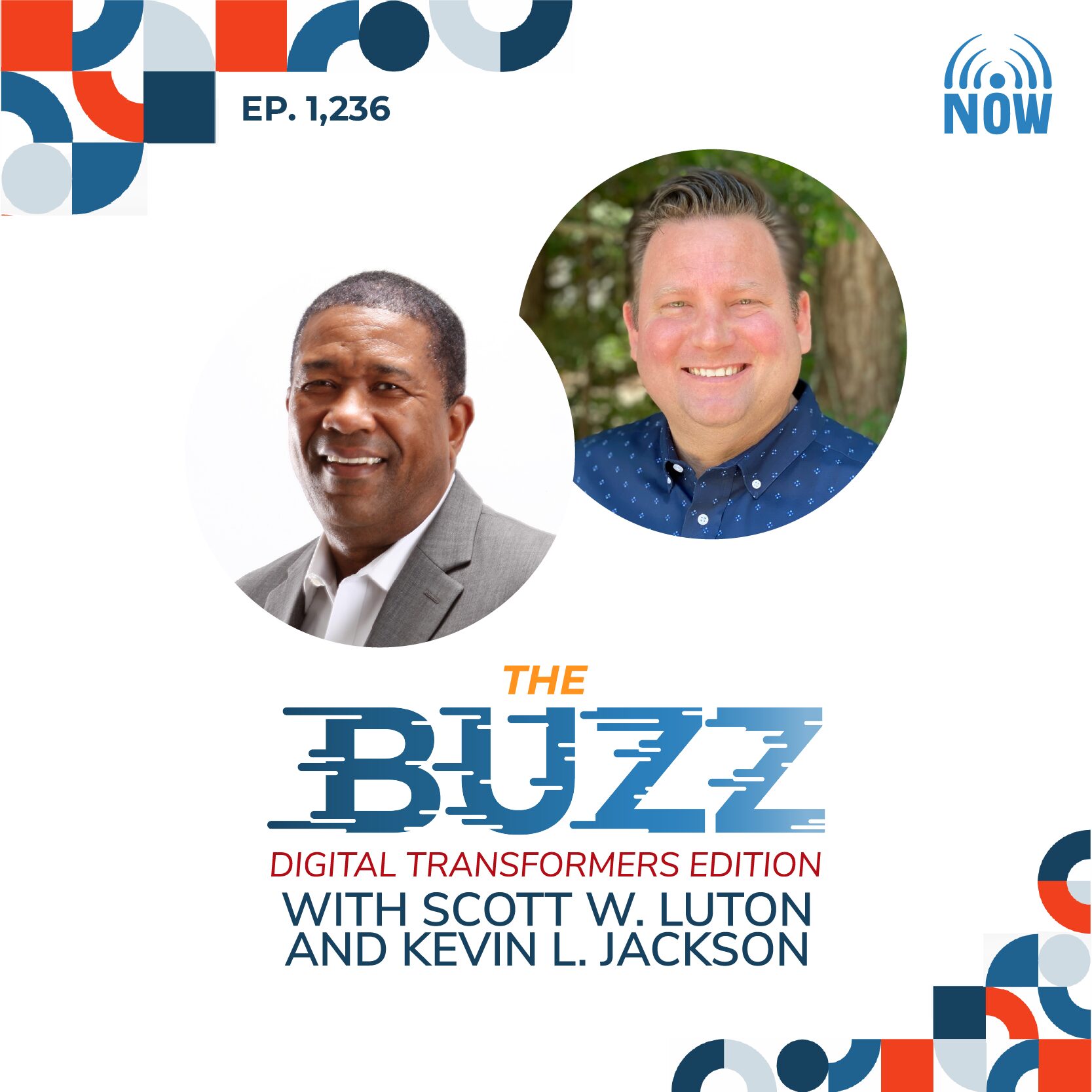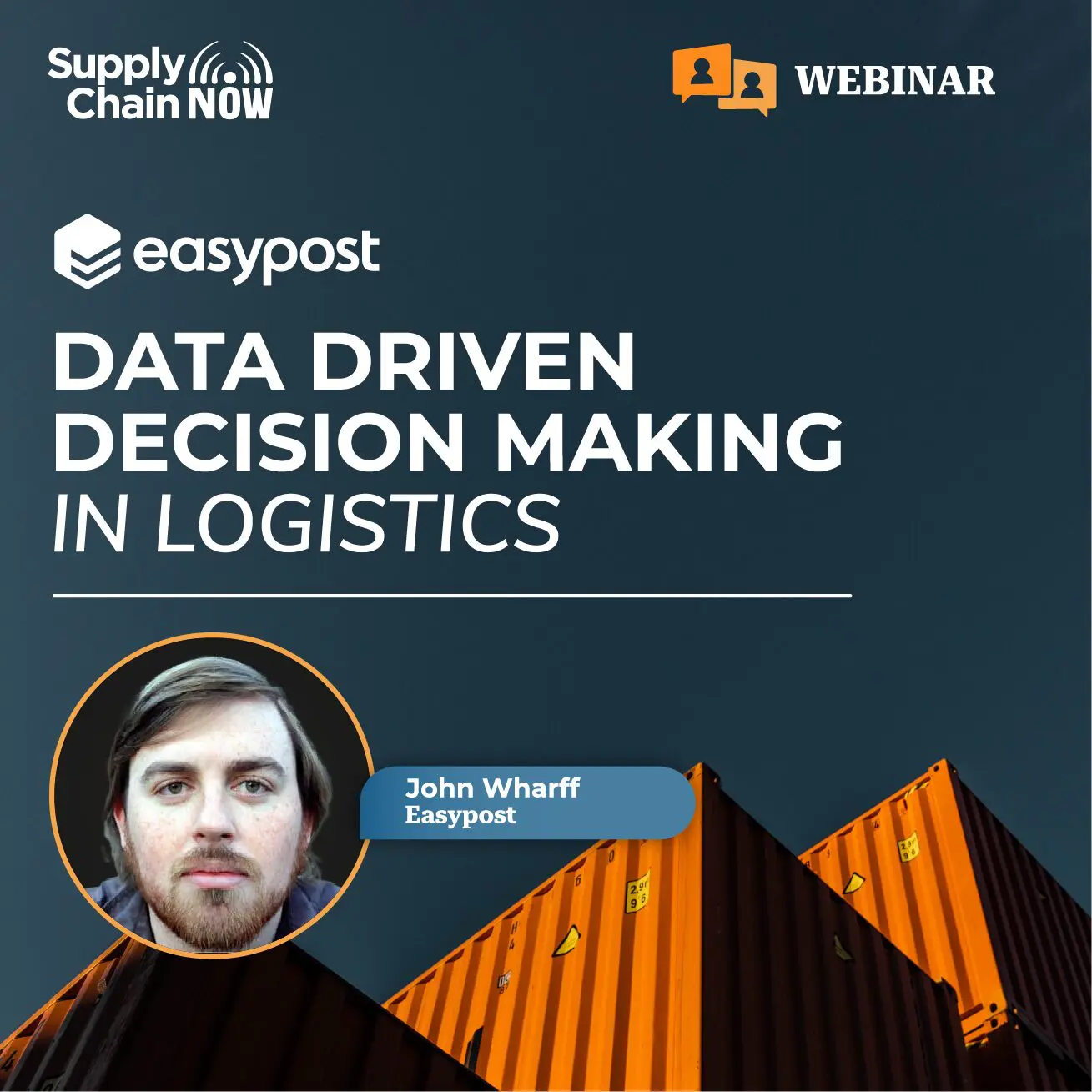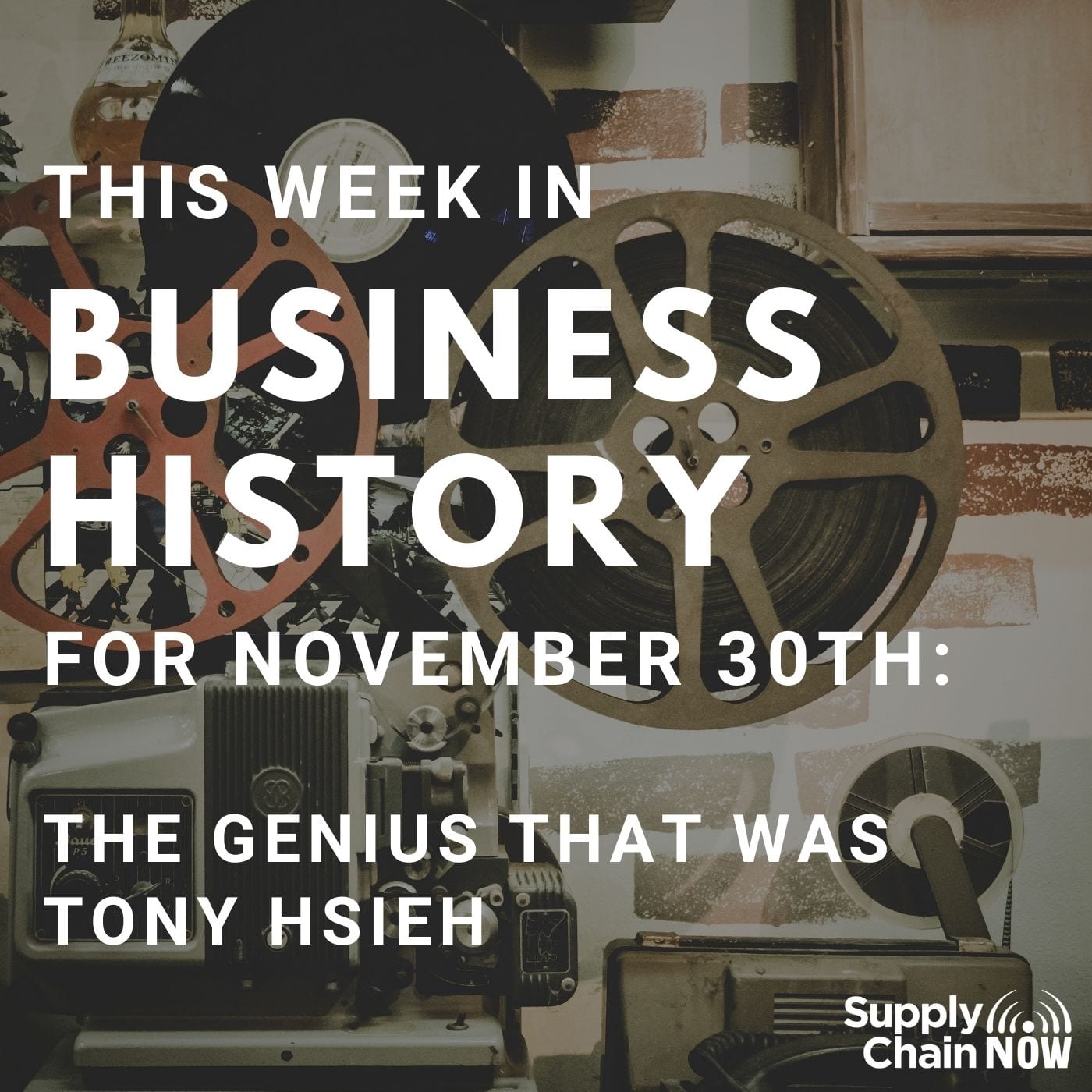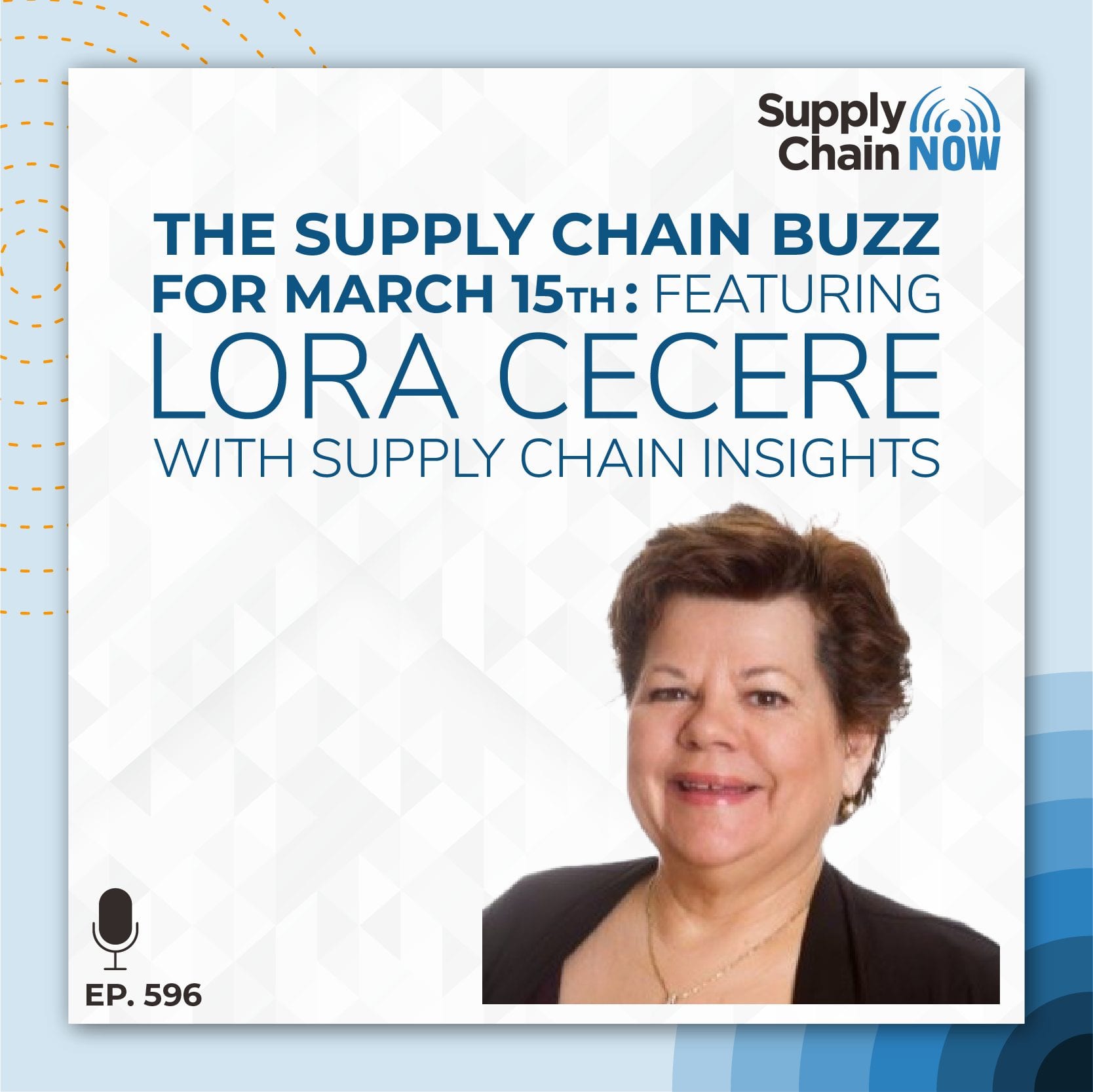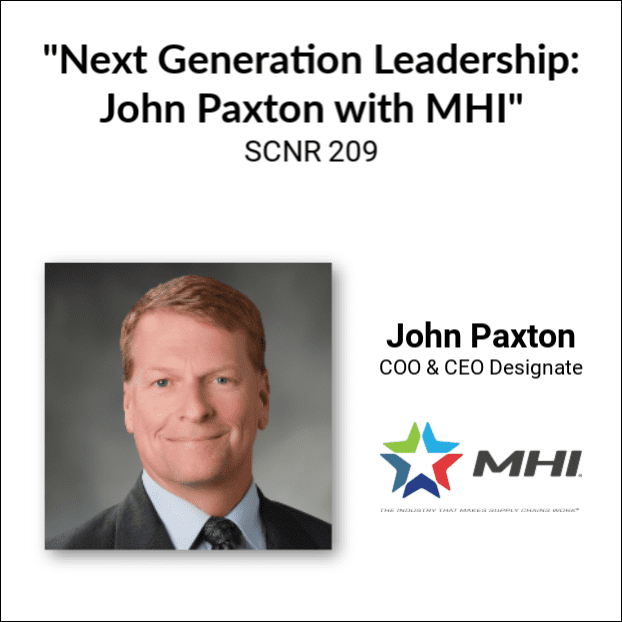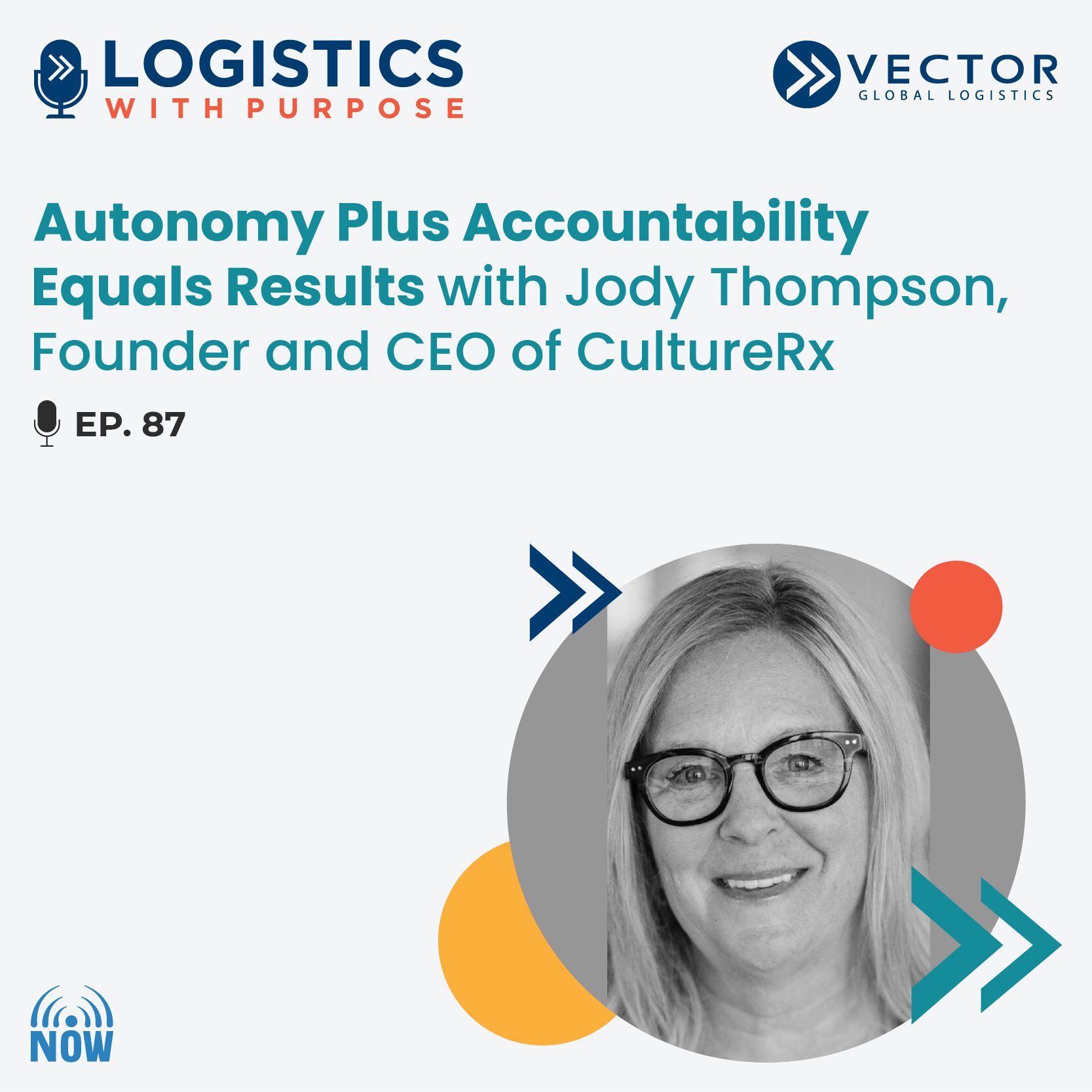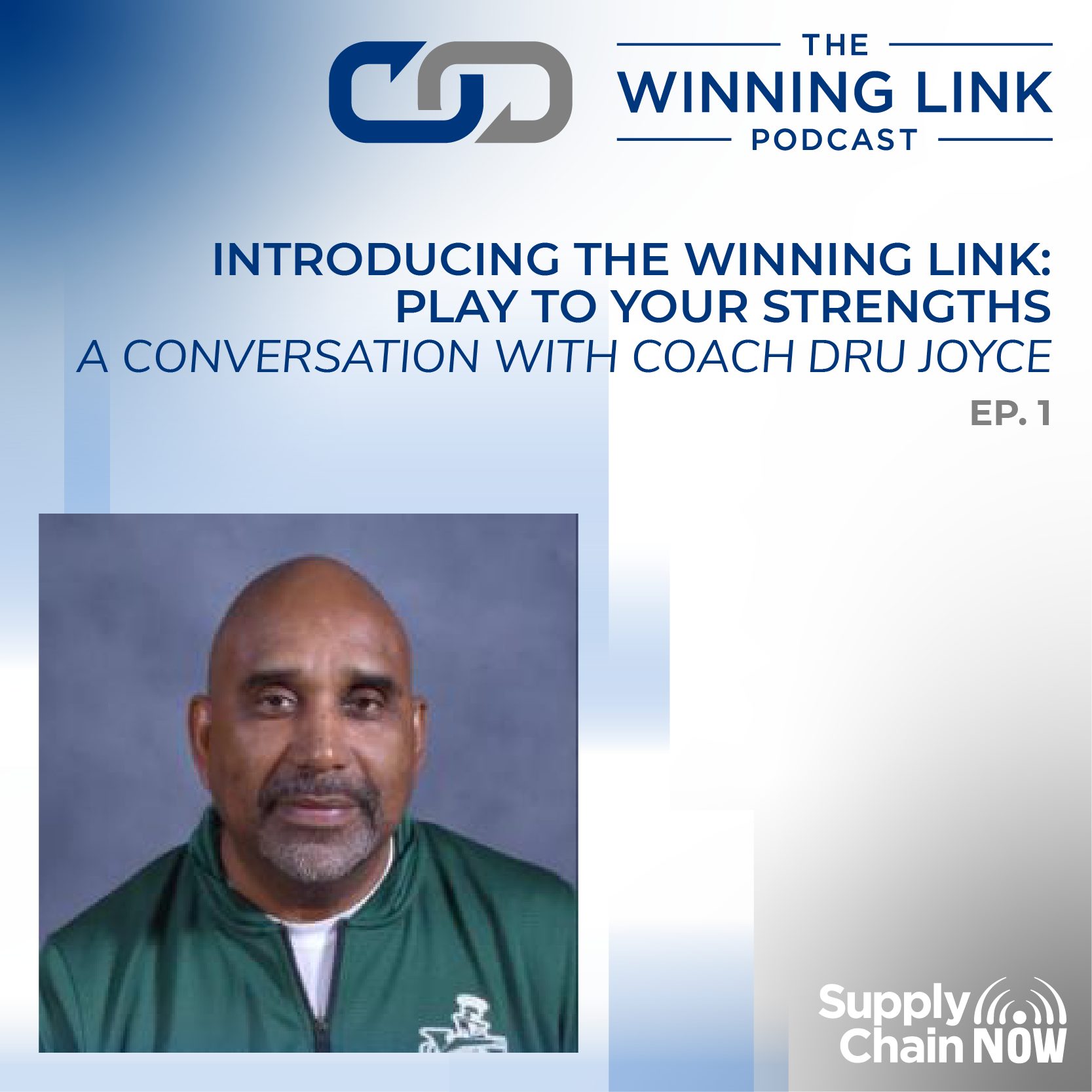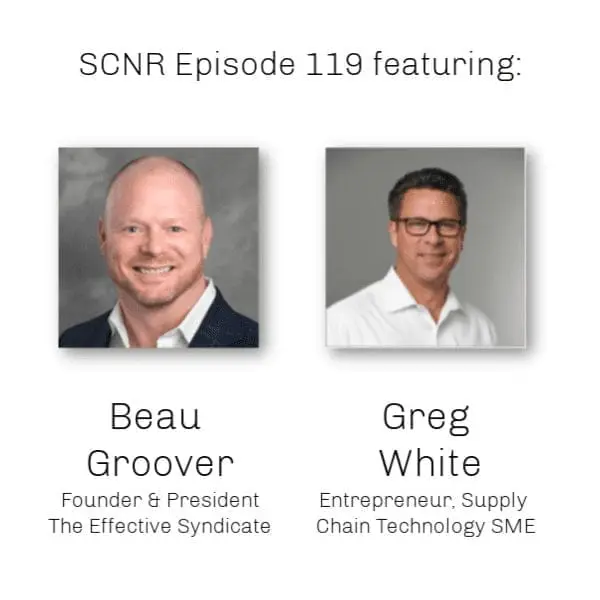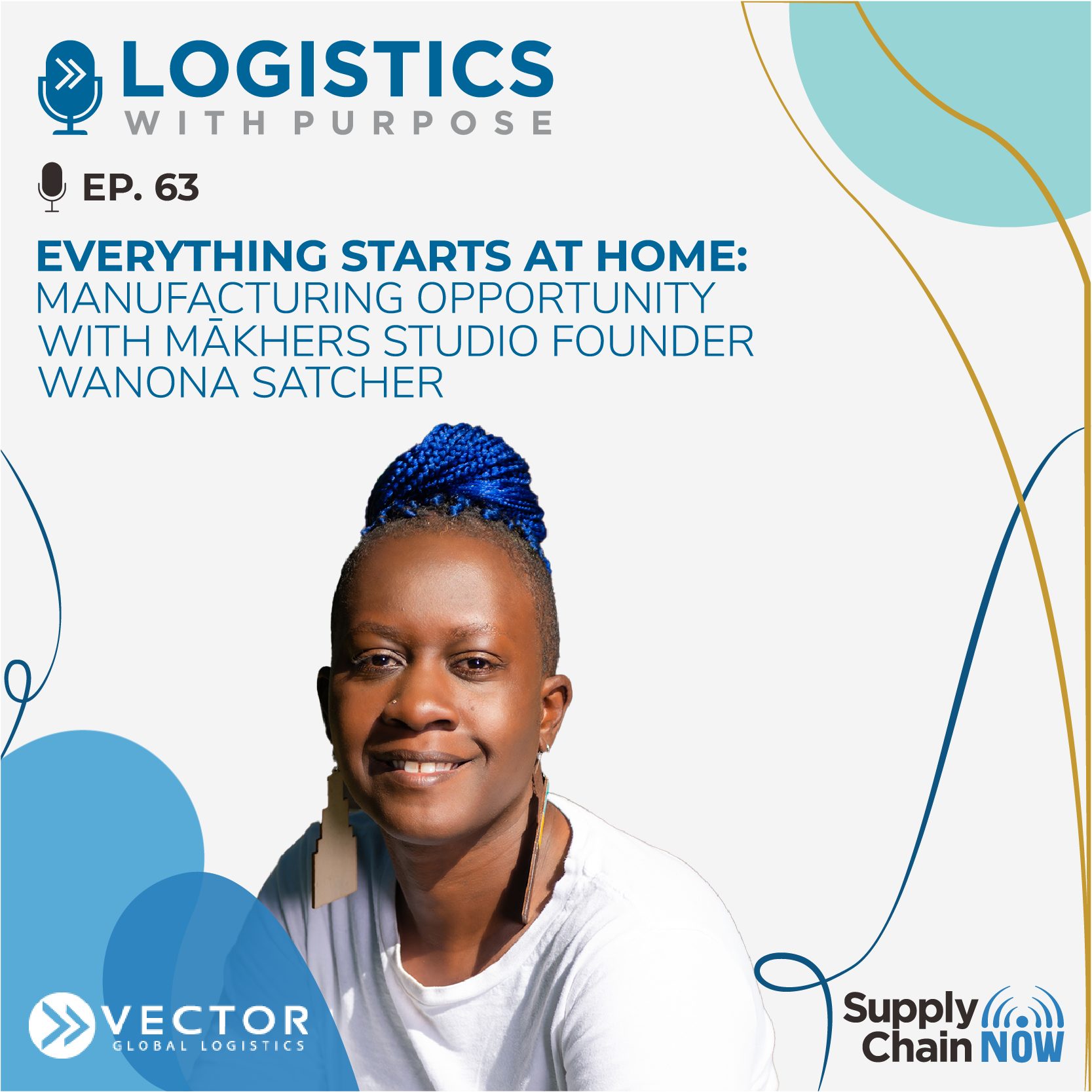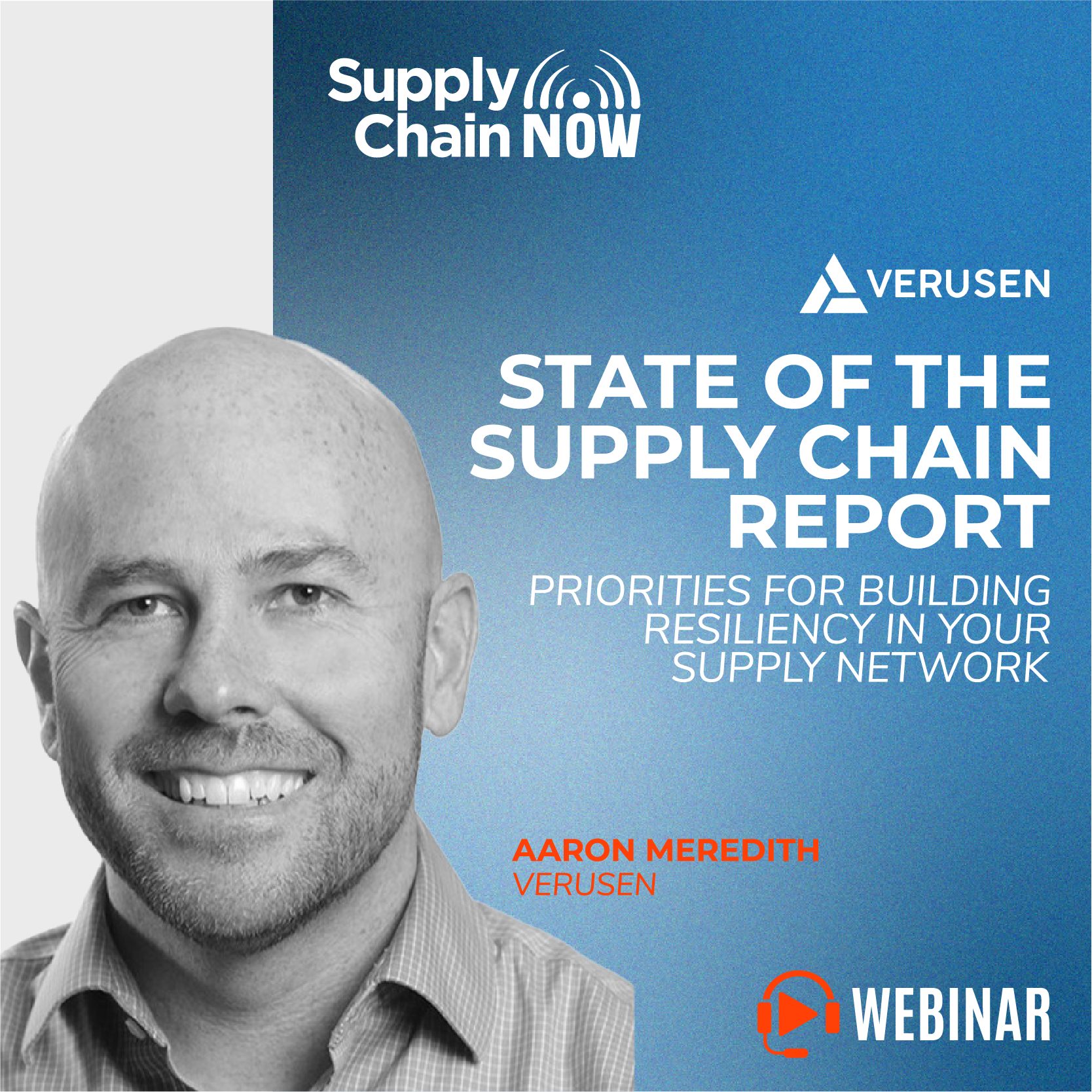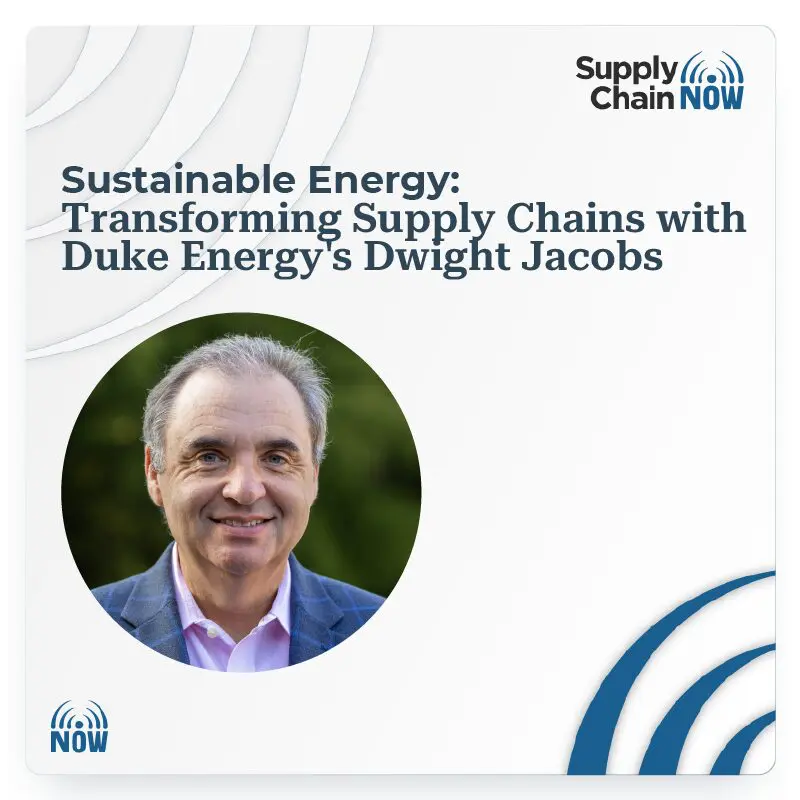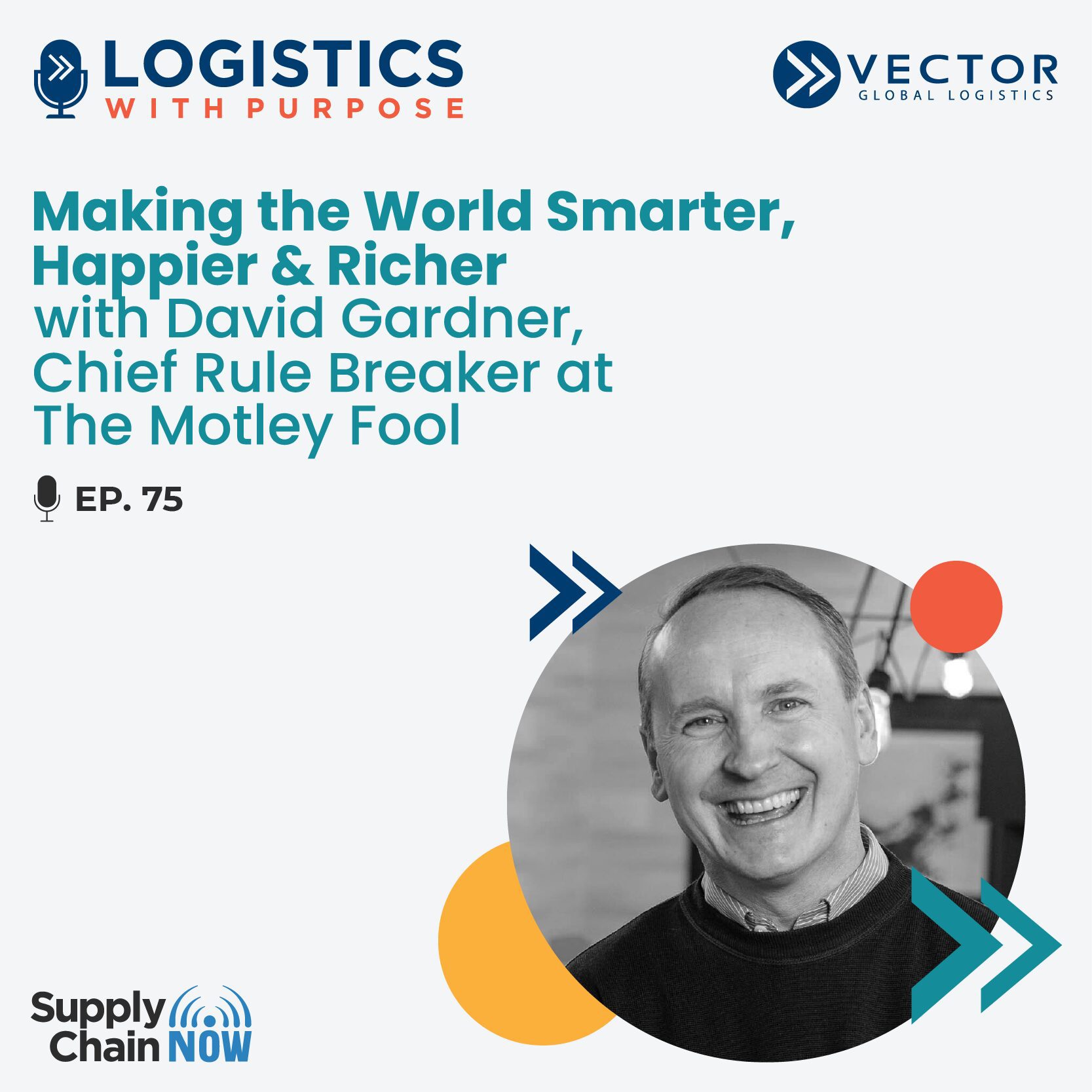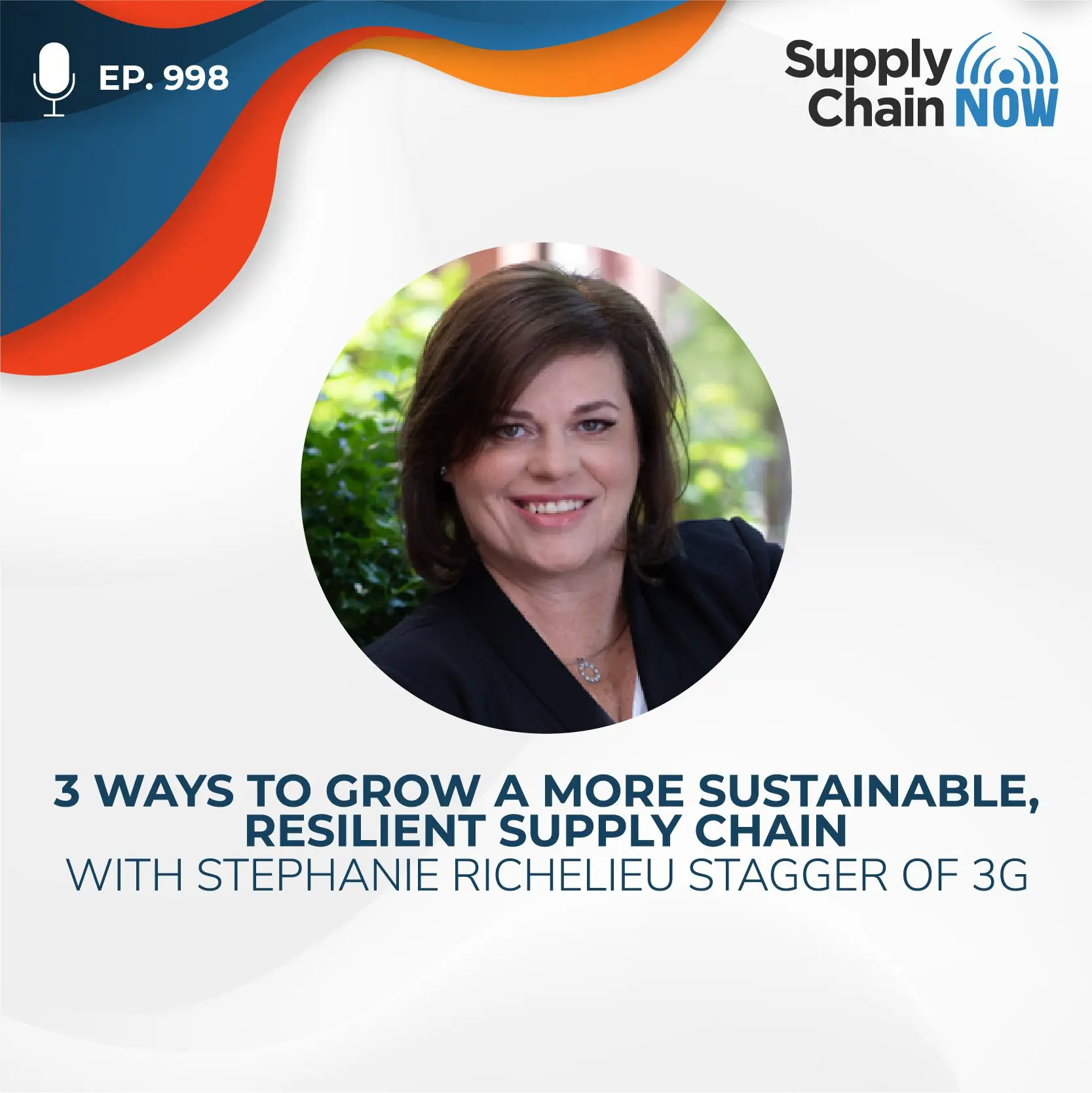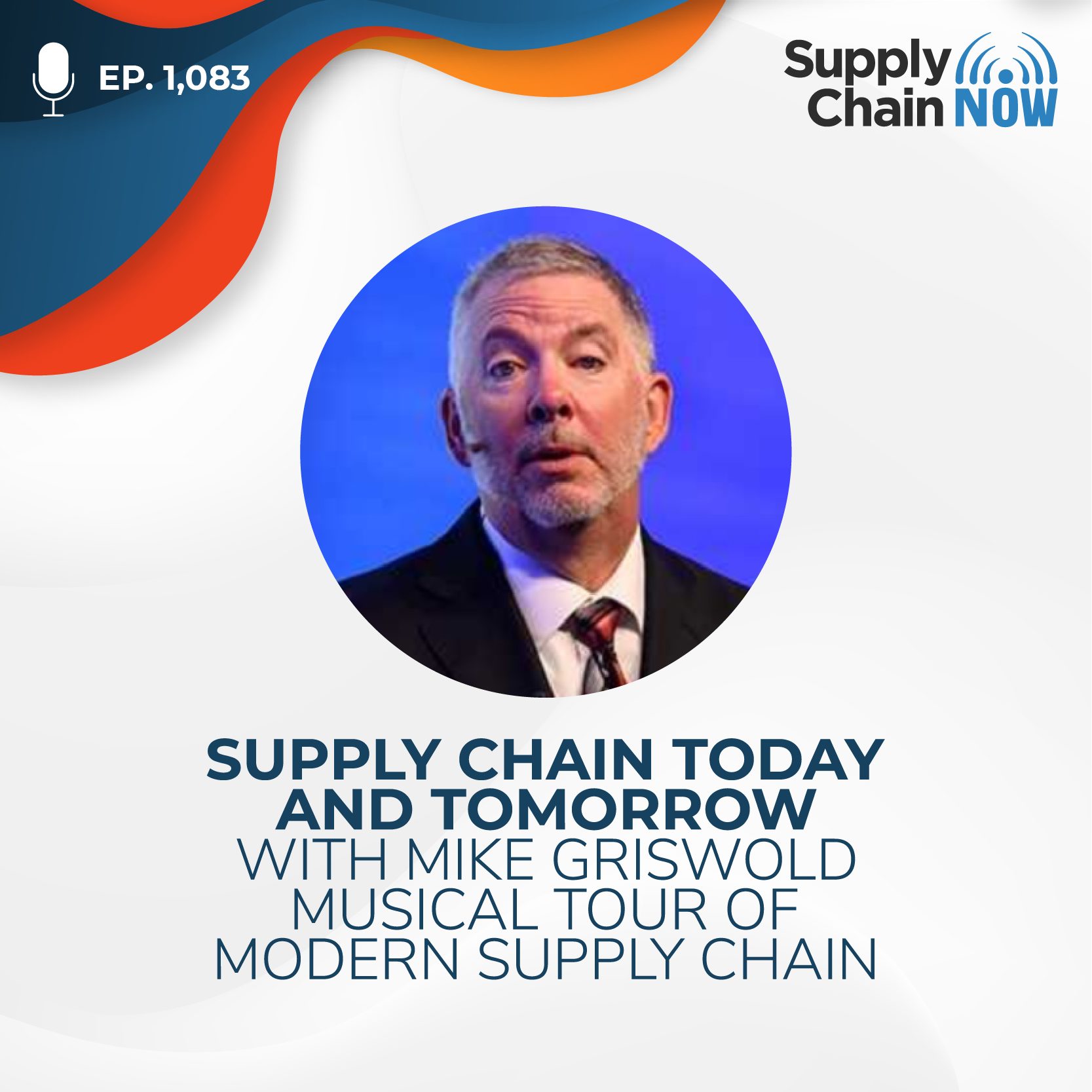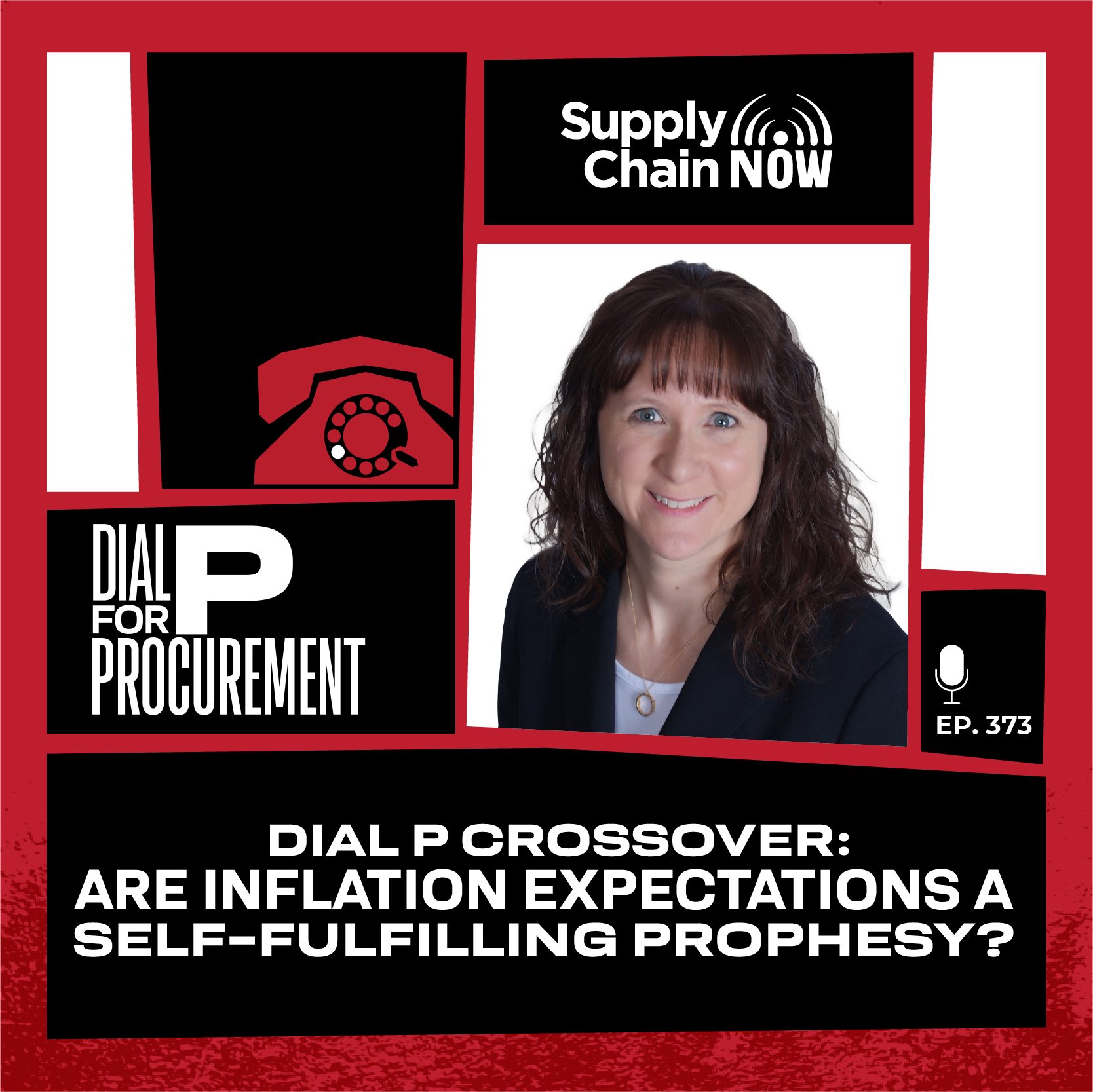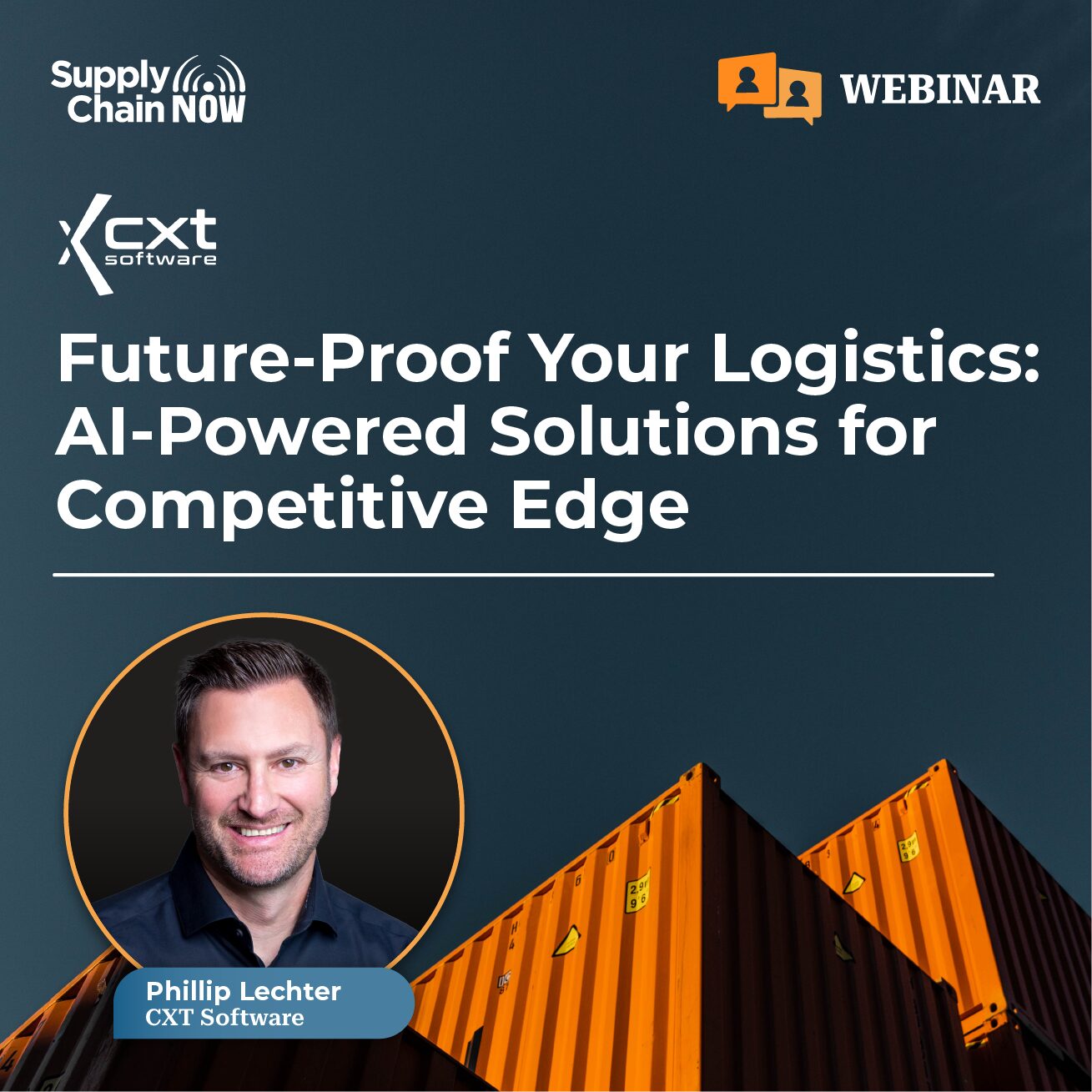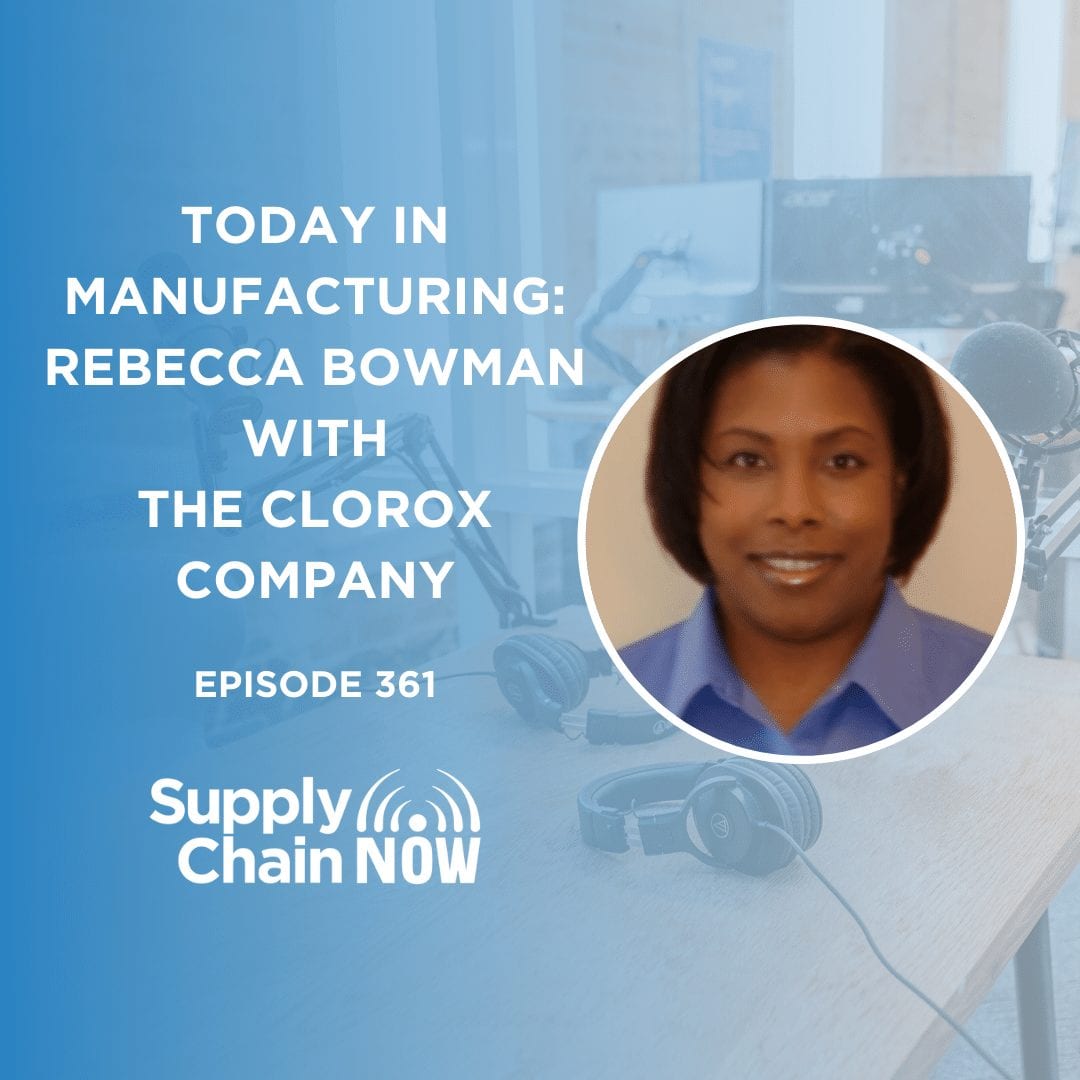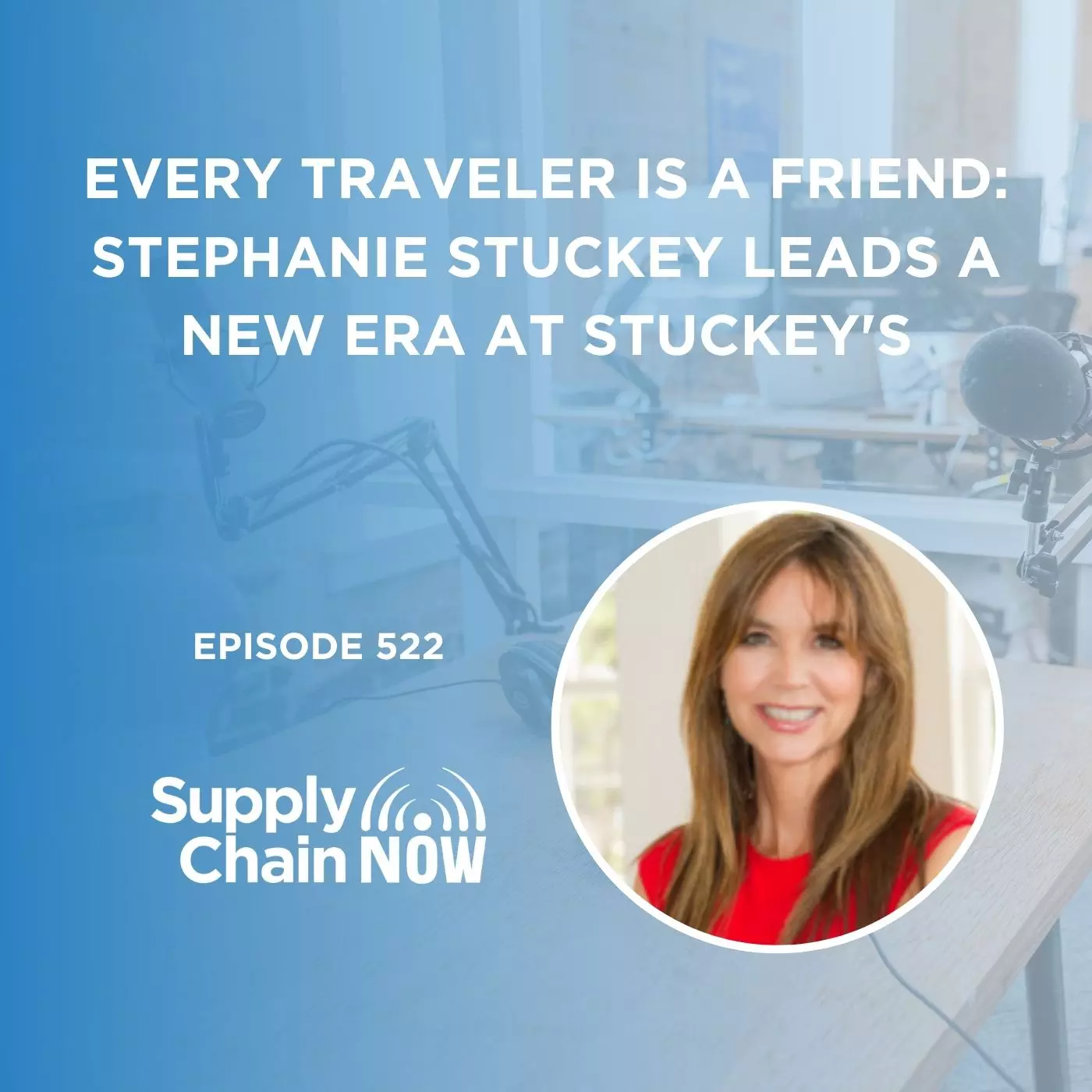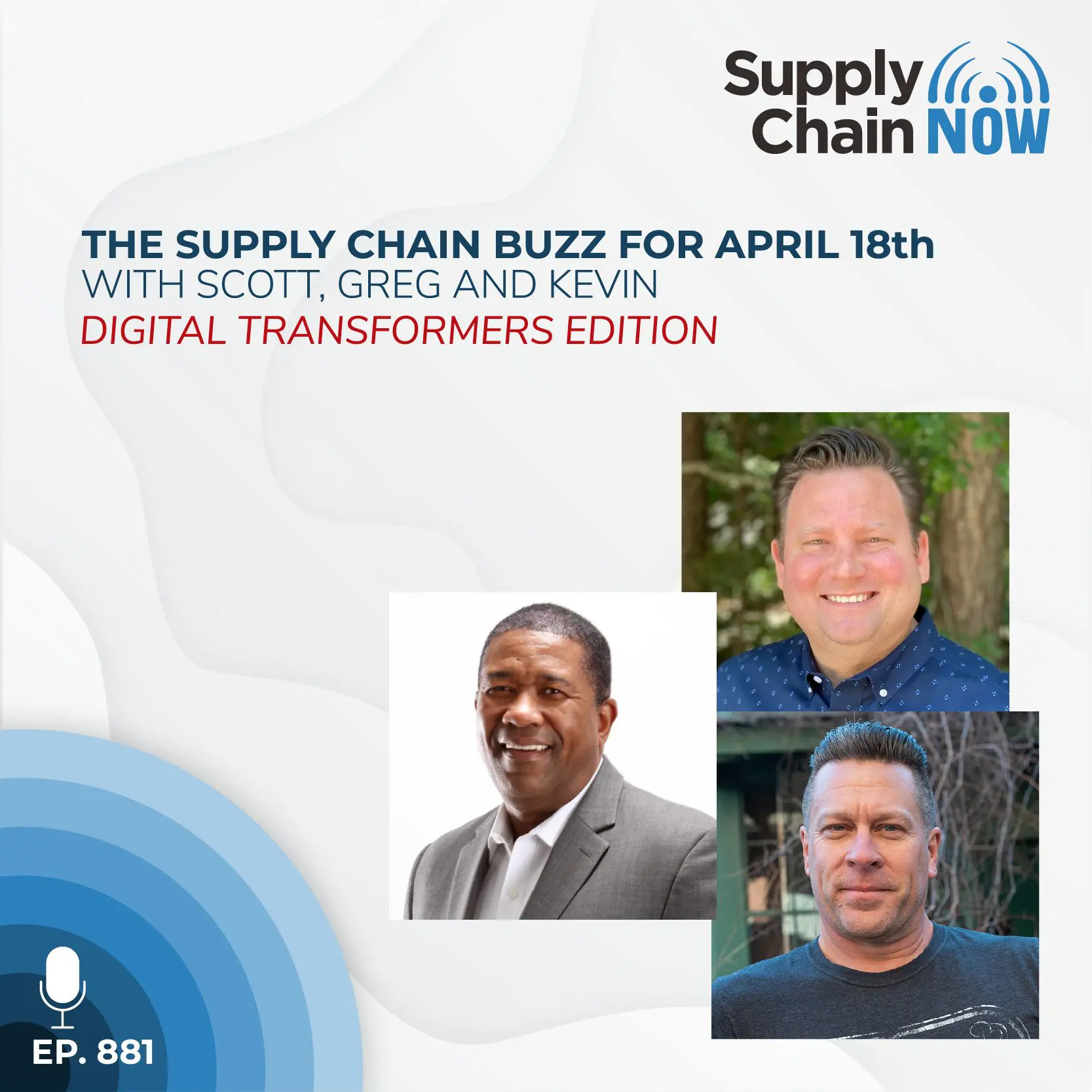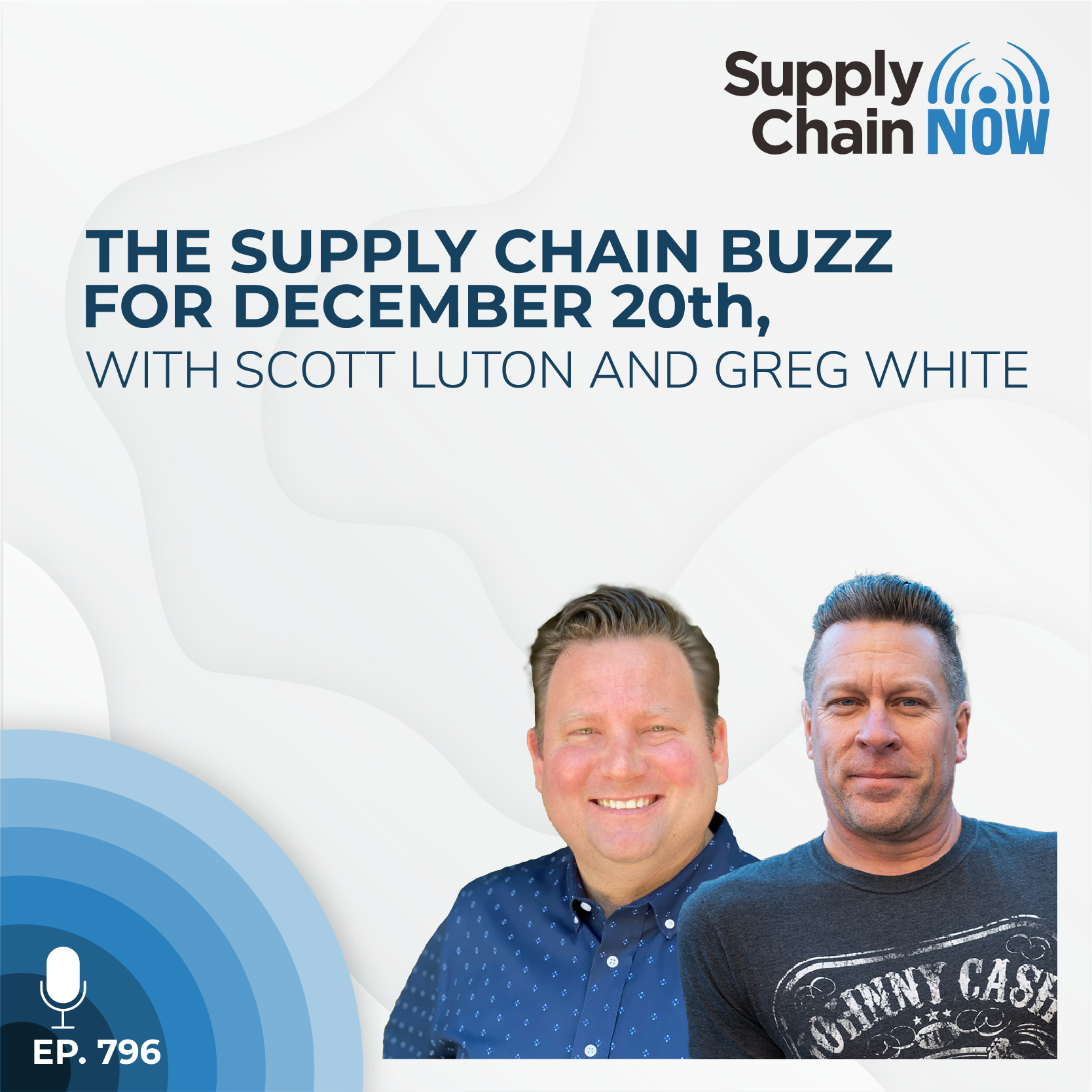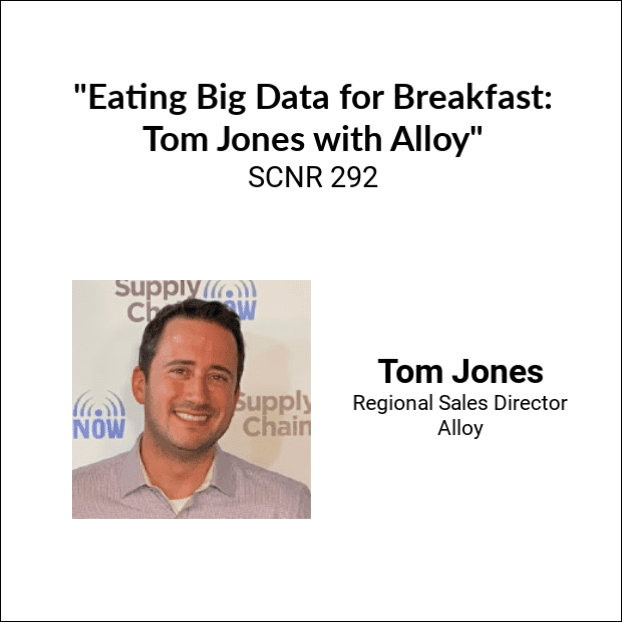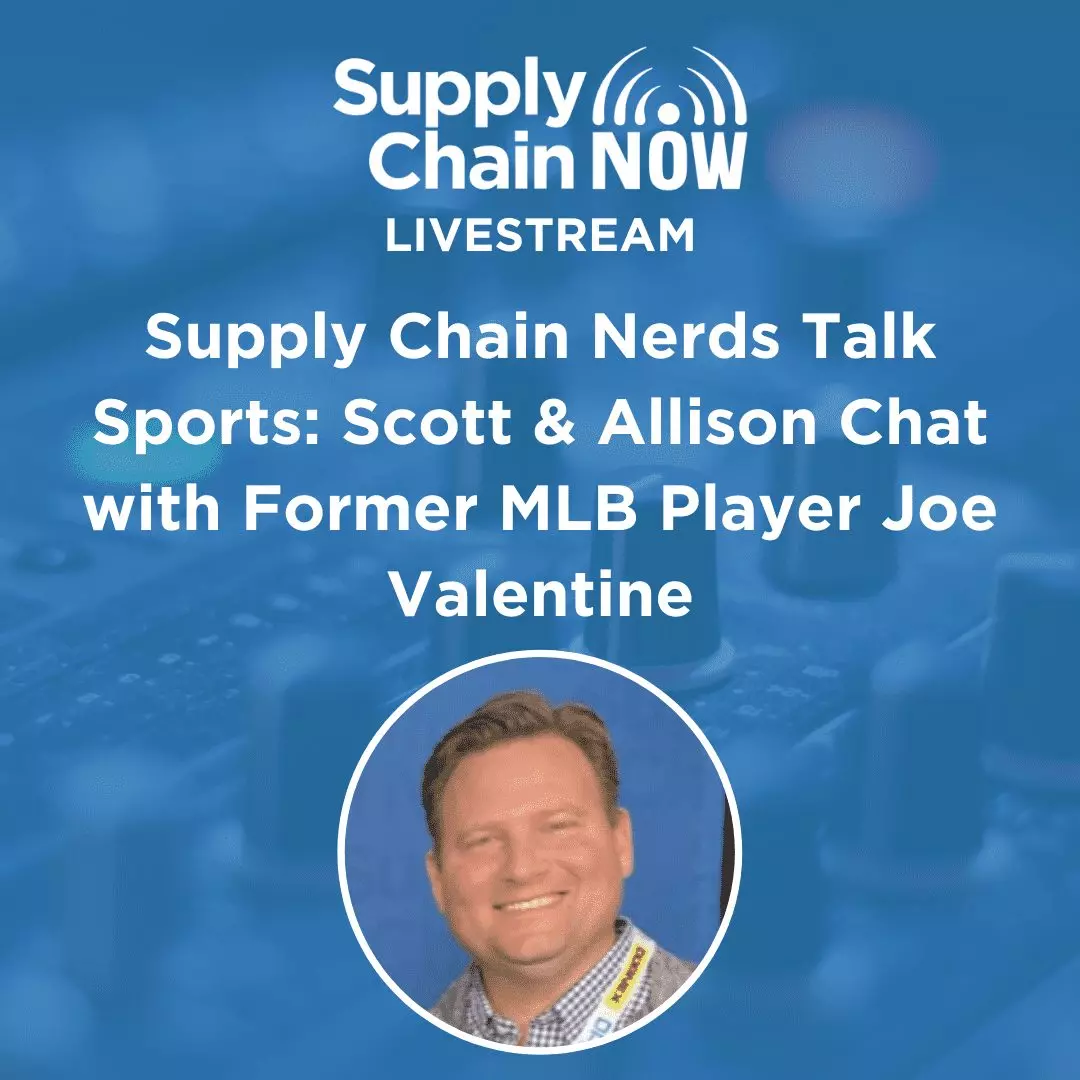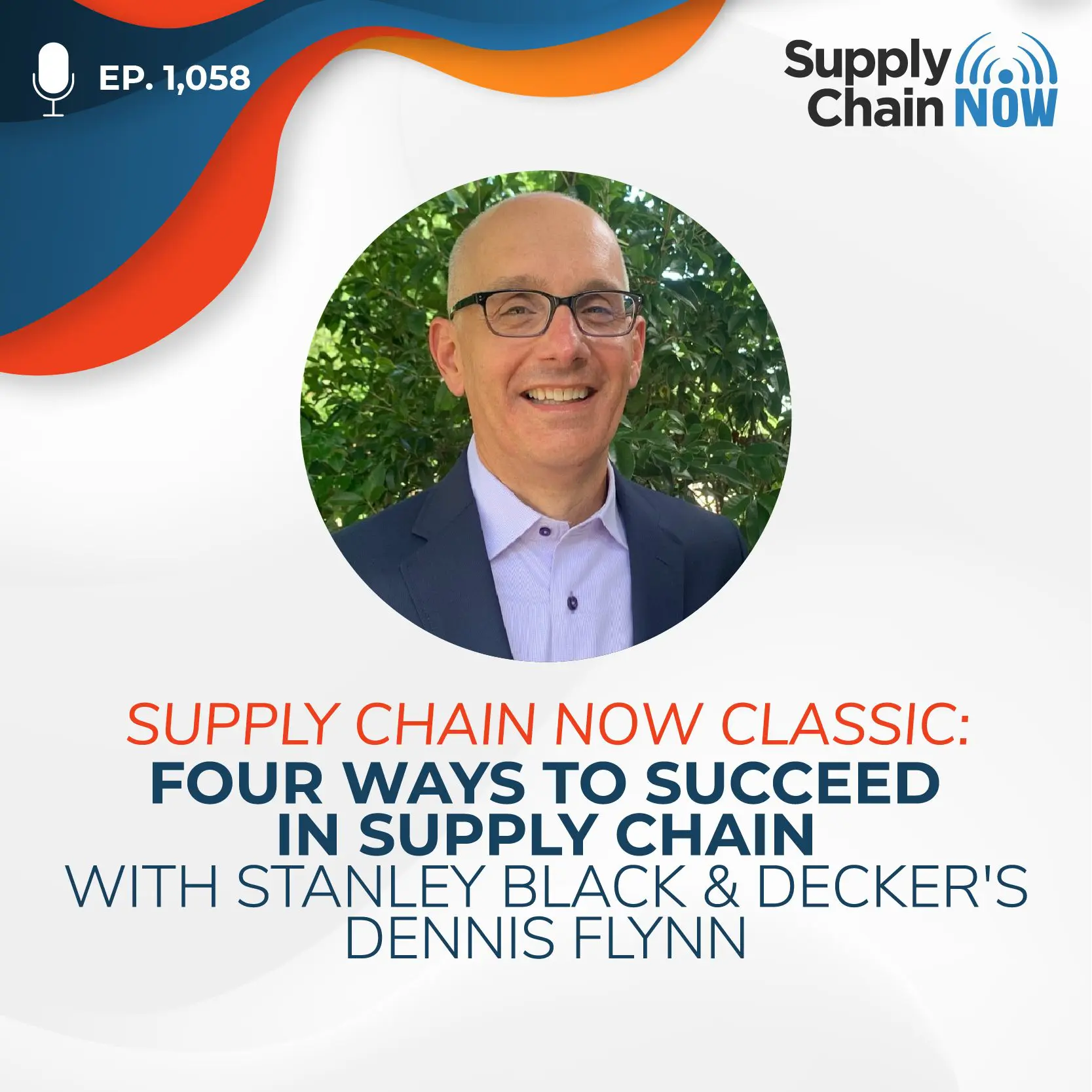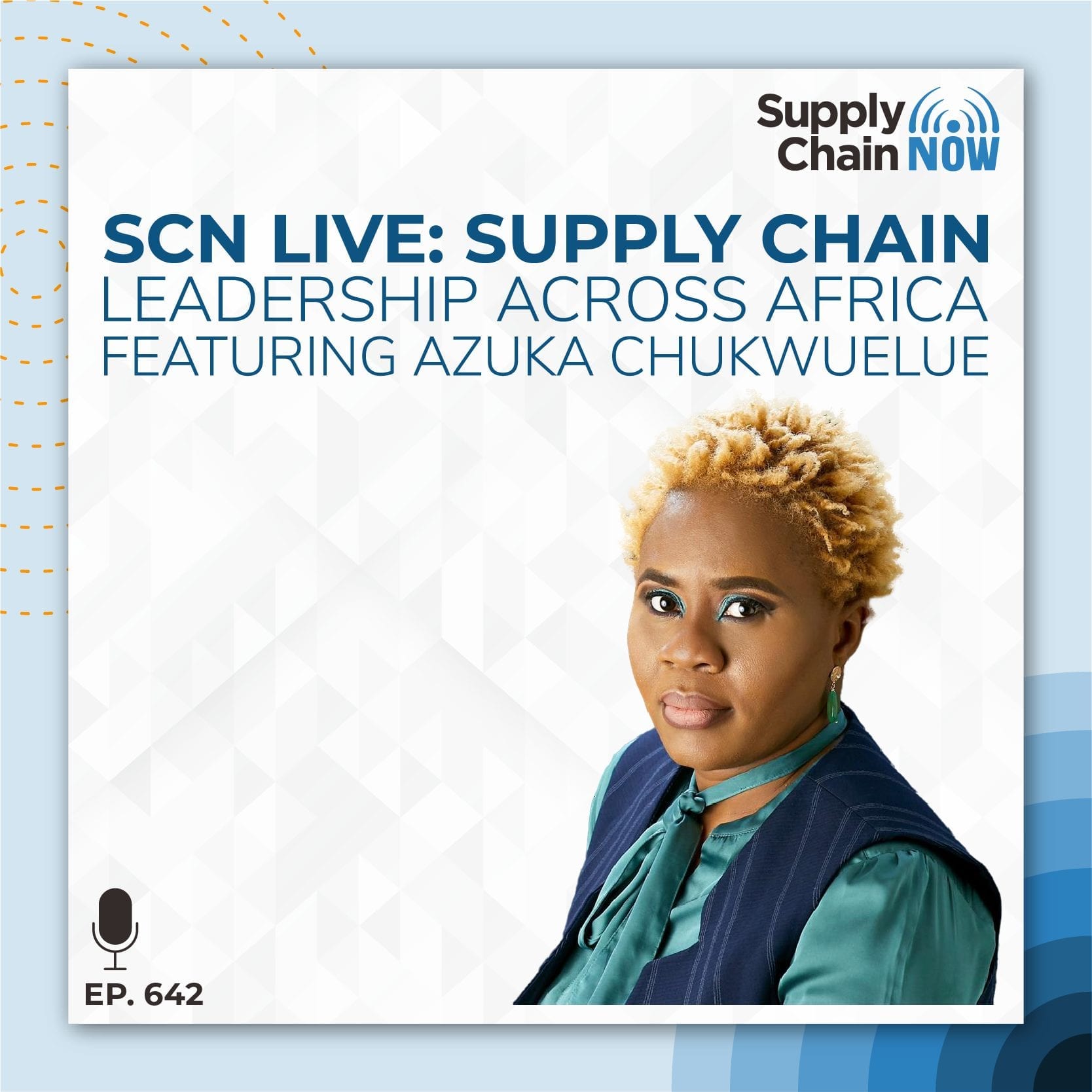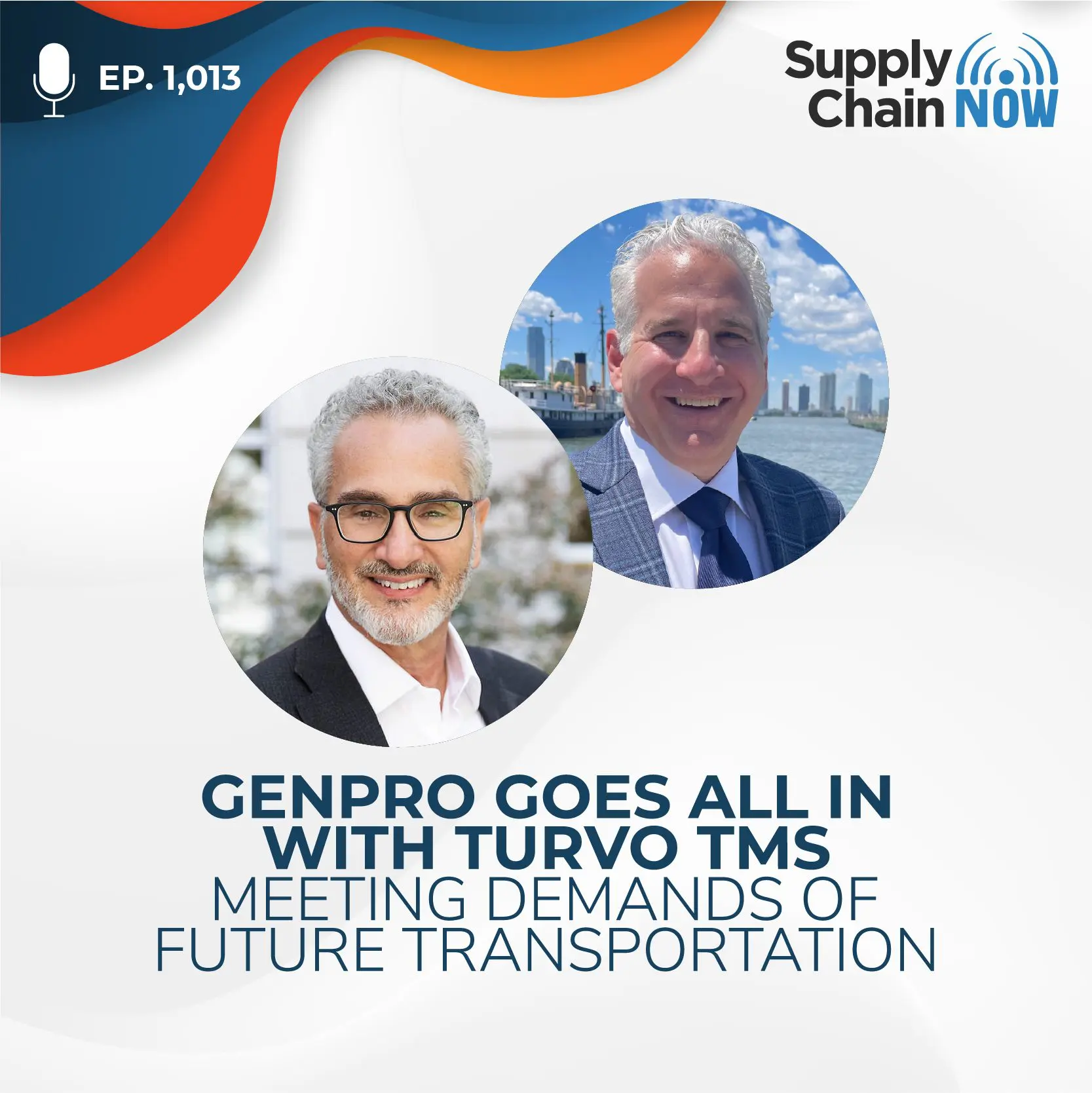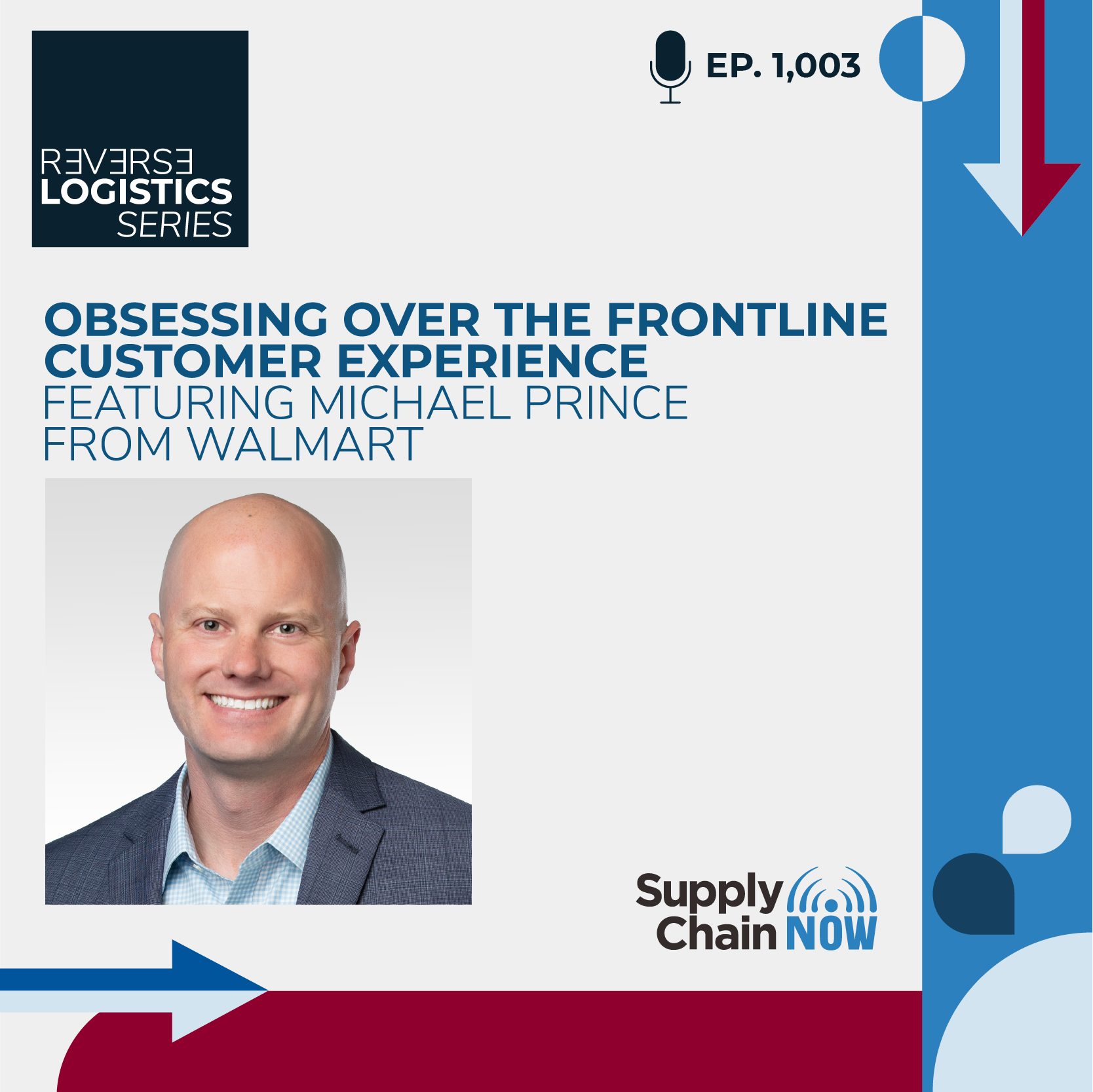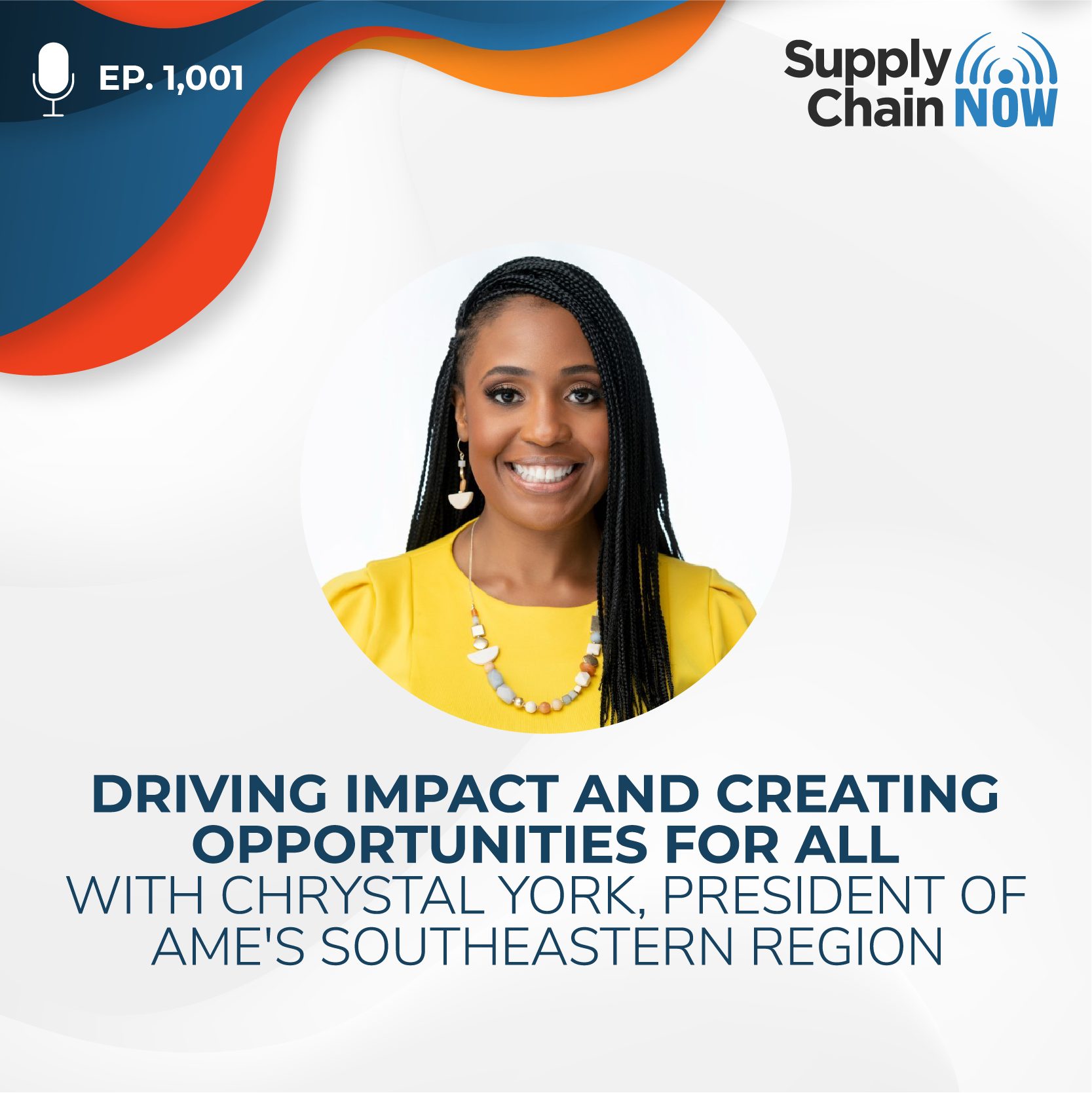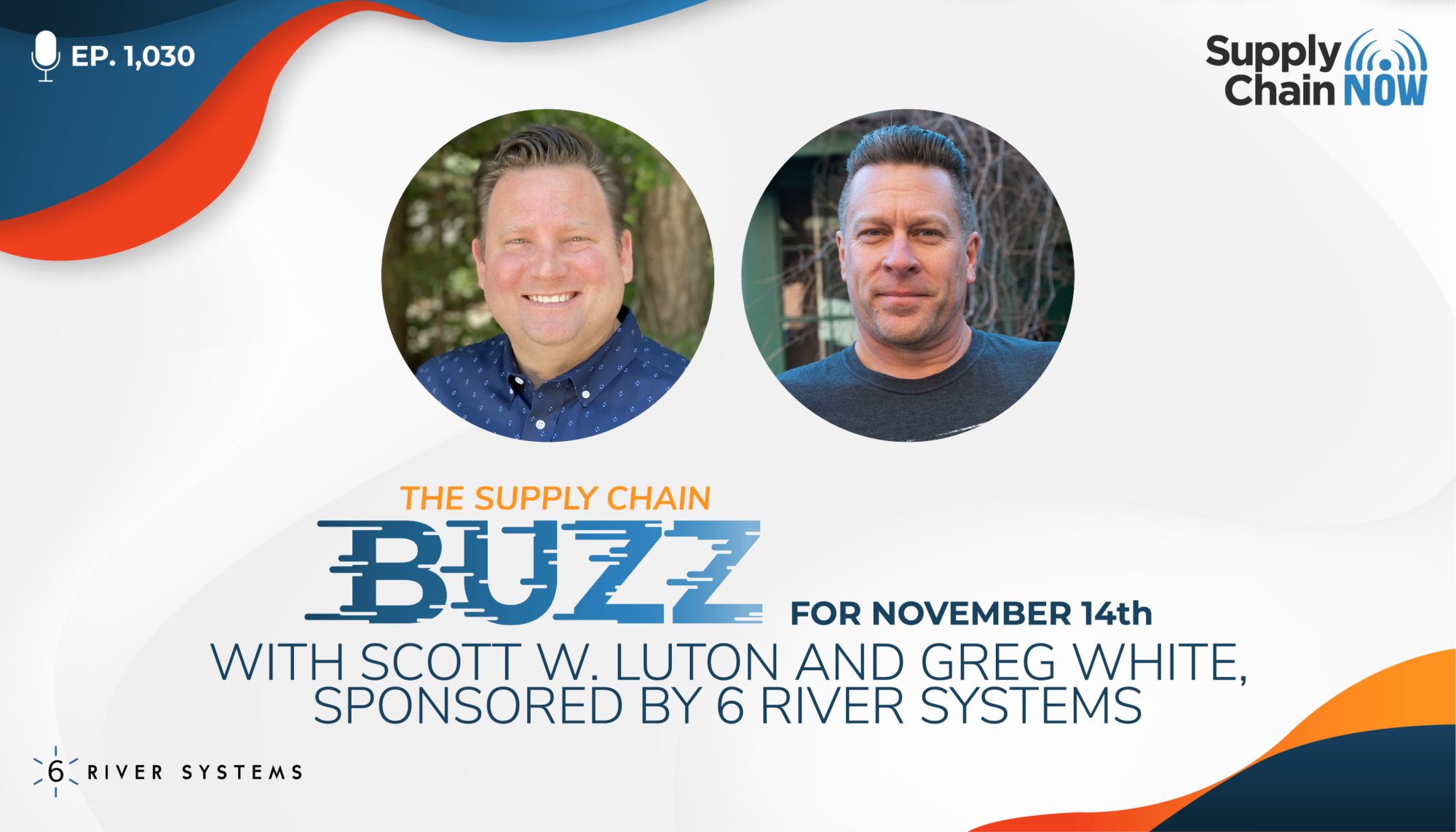
If you have a good supply chain and you don't focus on the disruptions that you'll face, but you focus on the fragility that exists in your supply chain, any disruption will have less impact if your supply chain is less fragile.
-Greg White
Episode Summary
With so many global forces affecting the supply chain, which do you focus on first? Reshoring: the way of the future or a path to new problems? And is it time for all of us to dump the internal combustion engine and go electric? Tune in to this week’s Buzz as Scott and Greg ask the tough questions and tackle today’s top headlines in the supply chain.
Episode Transcript
Intro/Outro (00:00:03):
Welcome to Supply Chain. Now, the voice of global supply chain Supply chain now focuses on the best in the business for our worldwide audience, the people, the technologies, the best practices, and today’s critical issues, the challenges and opportunities. Stay tuned to hear from Those Making Global Business happen right here on supply chain now.
Scott Luton (00:00:31):
Hey, good morning, good afternoon, good evening, wherever you are, Scott Lud and Greg White with you here on Supply Chain. Now, welcome to today’s live stream, Greg. How you doing?
Greg White (00:00:40):
Yes, wherever you are, wherever that may be,
Scott Luton (00:00:43):
<laugh>. So you are still in Kansas City, is that
Greg White (00:00:47):
Right? Yeah, in fact, not just for football. So, uh, today I’m attending a conference called Mid by Midwest. It’s kind of the Midwest version of South by Southwest. So maybe a little bit more stoic and uptight, but still a fun collection, hopefully fun collection of, um, entrepreneurs and founders and, uh, venture capital firms and other leaders, and mostly the tech space. So we’ll see. Maybe I’ll give you a review of the first day tomorrow, Scott, during our, uh, webinar livestream.
Scott Luton (00:01:23):
Sounds great. With, with, uh, with Shannon from Rate Links. Yeah.
Greg White (00:01:26):
Yeah, that’s right. Oh, man. Yeah, don’t miss that, by the way.
Scott Luton (00:01:30):
It’s gonna be good stuff.
Greg White (00:01:32):
Yeah, but I, I’ll, I’ll give you a little bit of review there. That’ll be interesting to Shannon. No, it won’t be at all, but we’ll make him sit through it.
Scott Luton (00:01:41):
<laugh>. Well, you know, uh, as we were sharing pre-show us, uh, beyond all of that, it looks like you and I are tier, uh, teed up to have a midterm discussion in our blue and red <laugh>. So, who won? Who didn’t? And man, I’m not sure,
Greg White (00:01:55):
Right? I don’t, I don’t know which, which color I wanna be wearing right now.
Scott Luton (00:01:59):
You know, I meer and, uh, I’m gonna keep on, Let’s talk about supply chain instead of politics today. How about that? Does that sound like a plan?
Greg White (00:02:07):
I think there’s one thing we should all be able to agree on, and that is gridlock is not the problem. Gridlock is our only hope.
Scott Luton (00:02:16):
<laugh>, let’s go with that.
Greg White (00:02:19):
Right?
Scott Luton (00:02:20):
So moving right along here today, today, folks, is the supply chain buzz power by our good friends at Six River Systems, doing some awesome things from automation and making, making industry happen, uh, better and faster and, and yeah, better, better for your people as well. And Chuck. Oh, and Chuck, right? Um, you know what, Chuck should have made an appearance today. You know, we,
Greg White (00:02:43):
You know, we could’ve, we, you know what? We need a little video of Chuck if we’re gonna, if we’re, if they’re gonna sponsor this thing, maybe like a little even a still shot or a video of Chuck doing his thing.
Scott Luton (00:02:52):
Let’s
Greg White (00:02:52):
Get on on that.
Scott Luton (00:02:54):
Well, Greg, with, with lots of reliability, folks can learn more about Six River systems@sixriver.com, and I’m sure you’ll have plenty of videos there about Chuck in action. So, uh, we’re gonna say hello to a few folks in just a minute. Uh, again, today is the SAP supply chain buzz coming at you every Monday at 12 noon Eastern time, where we walk through some of the leading stories across global business. And we give you our take, whether you like it or not, sometimes <laugh>. Um,
Greg White (00:03:26):
So he’s talking about my take folks.
Scott Luton (00:03:31):
Uh, Greg, own the money, man. You are, own the money today. Well, hey folks wanna share a couple quick announcements and then we’re gonna say hello. I see Jonathan and Shelly and No, and many others. Um, alright, so first up, folks y’all may know on the US Bank Freight Payment Index for third quarter, 2022 came out a few weeks back, tons and tons of insights on the domestic freight market, right? Really looking at, uh, shipping volume and spend. And you know what Greg, some of the best news out there is, it’s free. It’s free to sign up and email to you each quarter. You go to freight.us bank.com and, uh, you dive in and you’ll, you’ll be smarter from having, um, read and reviewed this, uh, quarterly report. Greg, your favorite part about the freight payment index.
Greg White (00:04:21):
And see what real practitioners who are say, who are facing the same issues that you are, are taking from this and using to involve or to improve their businesses. And I think the other thing you gotta think about is, in these inflationary times, anything that’s free, go and get it just in case <laugh>, you can sell it on eBay or something.
Scott Luton (00:04:44):
Uh, <laugh>, very true. That’s, that’s a great strategy, right? Uh, great.
Greg White (00:04:47):
Get the free stuff. It just makes you feel better to get some free stuff after you’ve been to the grocery store. My word,
Scott Luton (00:04:54):
Man, you’re not lying. Uh, again, I can’t get over butter. Butter’s up 27% over last year, and you put butter on everything in your Thanksgiving meal. You know,
Greg White (00:05:05):
Eggs are the, are my, in my, uh, view right now. Eggs cannot believe how much it costs.
Scott Luton (00:05:15):
Well, we’re gonna do, So next Monday, uh, you know, the Monday before Thanksgiving, we’re gonna do a, a Turkey day analysis of what this meal looks like, uh, for 2022 in terms of cost. Some folks will be financing, uh, Thanksgiving meal dinner. Yeah. Right? Um, okay, so let’s move all, move right along. I wanna share, uh, with that said, right? So we’ve been talking about this LinkedIn newsletter for, um, well, probably about three months now. Uh, it drops every Saturday morning. It’s really meant to be an aside other than all the stuff we already put out there from a supply chain, global supply chain perspective here. We talked about one of, uh, Greg and i’s our favorite things Oreos, and really the, the kind of a little bit of the story behind it, as well as some of the supply chain leadership behind it. Now, two quick comments, Greg. Um, yeah. So first off, many folks may not know that Oreo was really launched as the, um, like, uh, a, um,
Greg White (00:06:13):
Knockoff.
Scott Luton (00:06:14):
Yeah, thank you. A knockoff brand. It was, it was at the hydros. The hydros dominated the market at the time,
Greg White (00:06:20):
Man. Did people have bad taste in the 18 hundreds?
Scott Luton (00:06:24):
<laugh>
Greg White (00:06:25):
Oreos were way better than hydros.
Scott Luton (00:06:27):
So the Oreo Oreo cookies were launched, I think 1912, and it took ’em until about the fifties to really, you know, catch up revenue wise. And then, as you may know, Hydrox was eventually discontinued. Cause Oreo dominates as becoming a legend. But the other thing, Greg, is Sandra McQuillan, the Chief Supply Chain Officer at Monte Lee International, which is, uh, who holds Oreo, uh, uh, product and, and brand, uh, here for the last probably 10 years or so. She is retiring, Greg. And I gotta tell you, one of a kind, she’s a hall of famer in our book, right?
Greg White (00:07:02):
Yeah. The supply chain world is gonna miss her, but it’s hard earned. Um, and it’s, you know, it’s time for her to relax a little bit, so we won’t stop calling her will be Scott. But, but, we’ll, we’ll probably stop having her on the show. Uh, they’ve named her replacement. Forgive me. I read the article, but I cannot remember his name. I do know that he was, um, way up in her organization. So, and of course, you know what a great leader and teacher of humans she was. So I feel like the company’s in good hands. They’ve done a fantastic job in a really volatile time. They had their challenges like anybody else, but they did a fantastic job in a really volatile time. I think it took a lot of, out of a lot of people, and Sandra in particular. Um, but, um, yeah, I mean, you know, this company is strong, They’ll survive. And, uh, you know, Sandra’s gonna get some rest, which is good.
Scott Luton (00:08:01):
Absolutely. And, and speaking of her being a wonderful teacher, she’s had several master classes here at Supply Chain. Now, this quote came from one of her last ones. You can be as technically brilliant as you can be, but if you can’t make it work with other people, then what’s the point? So well said there.
Greg White (00:08:19):
There’s so many of those other ones. She had a come on down statement and I think the very first show she did on supply chain now, right? So if you wanna, if you wanna get involved in, you know, everything that’s going on in supply chain, that was, what, 2016 or 17? Something like that. Come on down, <laugh>. Love that spirit.
Scott Luton (00:08:37):
A dynamo, a dynamo, a tightening industry. And we’re gonna keep our finger on the pulse of what will be next. But as Greg suggested, hopefully she can unplug and take a deep breath because of all the mountains she’s been moving for quite some time. Okay? Finally, folks, uh, join in. We invite you to join in our efforts, uh, leveraging logistics for Ukraine, uh, as we’ve talked about here. And we try to keep a, uh, a finger on the pulse of, of true outcomes. Over 500,000 pounds of targeted humanitarian aid has already made it across to Ukraine and Poland in that area for families in need that really need it. We, um, what drives those efforts is a monthly pan planning session. The next one is tomorrow November 15th at 11:00 AM Eastern time. We’re dropping a link in the chat. We’d love for y’all to just come, even if you can’t, you’re not in position to give, come and hang out, uh, collect some market intel of what’s really going on there. And if you can, you’re are in position to donate anything, I’m sure Enrique in the Vector Global Logistics team will put it to work. Greg, your quick comment here about this initiative,
Greg White (00:09:39):
Well, I gotta tell you, if we, since we did touch on the midterms, midterms, I think if there was anything that I took away, is that the American people are, are willing to stand by Ukraine. There was a lot of talk about not continuing the effort to stand by Ukraine. I think it’s as important for us to, um, it’s as important for us to send Russia a message, um, you know, one of the most corrupt and dangerous governments on the planet as it is to stand by Ukraine. Cuz if, if we don’t stand by Ukraine, we don’t know who’s next, but there will be a next. So I think it’s important, right? And they’ve had some good news there, right? They’ve, the Russians have pulled out or pulled back from Kirson. Mm-hmm. <affirmative>, I’m not sure. I’m not saying that right. But, uh, so there’s progress being made for the efforts that we’re, you know, we’re providing. And I think it’s huge. And this is a, just a small way of, of doing it, right? And there are a lot of humans who are giving up time from their in, in Ukraine and outside of Ukraine who are giving up time from their business to, and their lives to, um, get all these materials to people in need. So that’s right. Totally worthwhile.
Scott Luton (00:11:00):
Definitely. Uh, so again, uh, as tomorrow at 11:00 AM Eastern time, the link to join is in the chat. And there’s no requirement you can come leave your video off, leave your mic off, and just listen and absorb the information. That’s perfectly fine. But we invite you to join our efforts. Um, okay. On a much lighter note, folks, you’re in, you’re in for a treat today because not only are we gonna talk about Russia, we’re gonna talk about China. Two of Greg’s favorite topics. And it always provides, must see tv. So y’all get ready, Um, <laugh>. All right, so let’s say hello. On that note, uh, Greg to a few friends here that are tuned in. Hey, Jonathan, great to have you back. Goat Tigers is lsu, Tigers are s e c West Champs. How about that,
Greg White (00:11:44):
Greg? Wow. Is that official? I guess it is, right? Man, that’s pretty impressive. Neat. So it’s looking like it’s gonna be LSU in Georgia in the dome
Scott Luton (00:11:55):
<laugh>. That’s gonna
Greg White (00:11:56):
Be a good one. I’m, I’m gonna have to separate from you on that day,
Scott Luton (00:12:00):
<laugh>. So, congrats, Jonathan. Looking forward to a great game there. Hey, Shelly, great to see you back. Love the head shot we shared with, with you last time. Uh, I bet it’s gorgeous and cold in Colorado about right, uh, Colorado, right? Right about now. What’d you think, Greg?
Greg White (00:12:14):
Yeah, I mean, they were talking about, uh, starting skiing about now in Park City. And depending on where she is, she’s on the proper, I don’t wanna say the right side, the proper side of the mountain.
Scott Luton (00:12:25):
Yep.
Greg White (00:12:26):
It may maybe time to bust out the, uh, Yeah. Park ski gear. Yeah. <laugh>. Oh, well, you know, the park is out cause it was probably 70, I just imagine in Denver it was probably like Kansas City. It was 70 last weekend and it was 18 this weekend.
Scott Luton (00:12:42):
Well, uh, stay warm Shelly, nor via LinkedIn, Great to see you. Let us know where you’re tuned in from. Brittany, have you here today. Hey, Gino from North Alabama is with us here today via LinkedIn. Great to see gp, uh, you know what I meant? The grab the pictures of him, uh, rocking. You know, he’s a drummer musician. I meant the grab one for today. So Gina, we’ll do that next, uh, next Wednesday. Gomar from gorgeous and sunny la a bit cold morning, but it’s warming up quickly. She says
Greg White (00:13:13):
Cold in LA is <laugh> laughable. I don’t know, they occasionally they’ll get a cold blast. They’ve gotten some of that in Arizona too, so, Right.
Scott Luton (00:13:24):
Um, as we mentioned, uh, folks, y’all go check out Six River Systems, doing some great things across industry, really cool things, especially from automation and, and really empowering your people, making their jobs easier. So y’all check that out. Um, also, the team, as I mentioned, dropped the, the link for a free, as Greg suggested. A a free freight payment index comes out every quarter, so y’all don’t miss that. Um, alright, moving right along. Let’s see here. Uh, David Glover from Minnesota via LinkedIn. David says, uh, snowy morning. I bet it is cold, really cold up there,
Greg White (00:13:56):
Right? It’s the beginning of the end. <laugh>
Scott Luton (00:13:59):
<laugh>. It’s
Greg White (00:14:00):
What’s cold
Scott Luton (00:14:00):
Up there? What a great game. Was that Minnesota and Buffalo? And didn’t Minnesota pull it
Greg White (00:14:05):
Out? Thank you to all of you Vikings fans for putting the chiefs in the driver’s seat for Home Field Advantage through the playoffs. Yeah, a great game. Just unbelievable. Justin Jefferson, that wide receiver. Theres is unbelievable
Scott Luton (00:14:21):
Man. Uh, Kim winner, the one and only Kim winner is here with us today. Greetings gents from the DP World Global Freight Summit in Dubai. Man, I bet he’s had, I bet he is having conversations with movers and shakers. Greg.
Greg White (00:14:35):
Well, I, I don’t know how many, He goes to so many events. I don’t know how he does it. He’s gotta be a bazillion miler.
Scott Luton (00:14:43):
<laugh>, I bet. So, uh, I bet he’s got like 17 diamonds on that, uh, Delta, uh, yeah. Uh, card of his, um, T squared Good Monday Foot folks. He says, Hook the cold slap ain’t jolton. Y’all bring on the nourishment. It is coming. It is coming. It’s coming. And, uh, let’s see here. Shelly is talking about, it’s really cold. She’s west of Denver. Ski areas are really close by. Oh boy. And she’s gonna be breaking out the park and the whole ski bit. Ski
Greg White (00:15:14):
Bit. Oh
Scott Luton (00:15:14):
Man, soon. How
Greg White (00:15:15):
About that? What a great time of year.
Scott Luton (00:15:17):
Gorgeous. Gorgeous, gorgeous. Um, okay, so I know we couldn’t get everybody, but welcome in. Hey, y’all keep the comments coming throughout the hour. We’ve got some really neat stories we’re gonna be walking through and, uh, we’d love to hear your, uh, your takes as well. All right. So Greg, are you ready to get down to, to, uh, to work here today?
Greg White (00:15:36):
I suppose so, yeah, let’s get to work.
Scott Luton (00:15:38):
Let’s do it, man. Let’s do it. Um, so first up, we’re talking about a familiar big brand name Stanley Black and Decker. So according to our friends over at Supply Chain Dive, the company is cutting some 50,000 SKUs as it transforms its supply chain. Um, now skew rationalization is nothing new, right? We, we’ve seen it for years, right? I mean, it’s been used for decades, uh, but we’ve seen a lot of it in the last few years. Now, one of the outcomes from the plan is savings in, we’re talking 500 million Greg. Holy cow. Now.
Greg White (00:16:12):
So that’s half a billion dollars. That’s a bazillion percent more than, than, um, like the founder of FTX is worth today,
Scott Luton (00:16:22):
<laugh>. Or maybe they could take some of those <laugh>. This is gonna be me, maybe that think take some of those savings and get a new sign there. New, exciting, you know, light bulb, neon and fueled sign. We’ll see. But, um, beyond the skew rationalization and that elimination plan, Stanley Black and Decker is also optimizing its physical infrastructure and distribution network with changes there coming in 2023. So Greg, I would love to hear your take on Stanley Black and Decker’s. Uh, big plan here.
Greg White (00:16:51):
I I am, the stunning part for me is that Black and Decker has 50,000 skews. That’s not parts or components. That’s 50,000 finished good products. Wow. What the heck could that be? I mean, okay, Stanley, right? So, you know that, you know, there’s, um, all kinds of measuring equipment and other tools and that sort of thing. Of course, Black and Derek are power tools, but 50,000 different items that is stunning and half a billion dollars worth of savings. My question is, we may have a Black and Decker exec watch this today, I know we have had in the last couple weeks, is where, where did that come from? And you know what, maybe we ought get ’em on the air. Cuz this is a really, I think this is a really interesting story and it’s, you know, practitioner side stuff that I think people could really get some value from. You know, we’ve talked, talked, we’ve talked to Sandra right at monies about their dramatic skew reductions and some other, um, brands. I think it’d be interesting to talk to somebody at Black and Decker, but
Scott Luton (00:18:01):
Agreed. I just wish, I wish I knew how to use more than seven of all those skews there. Great. But you
Greg White (00:18:08):
Talk seven
Scott Luton (00:18:09):
<laugh>, I’ve come a long way in the last year
Greg White (00:18:12):
Or two. A screwdriver
Scott Luton (00:18:13):
Hammer, we were talking pre show just to clear everybody in. Amanda, between the two of us, uh, Amanda is much better at, uh, working with Stanley Black and Decker tools and hanging stuff and building stuff than I am. It just, I, it didn’t, um, it didn’t follow me from my dad’s genes into, cause my dad’s great at that kind stuff too. But I’ve, I can do a nail and a hammer. I can use a ruler. But Greg, beyond that man, it
Greg White (00:18:42):
Challenging a lot of, So Scott’s specific fear is, is constructing his new standup sit down desk. But a lot of those, I mean, let melay your fear a little bit. Usually they provide you with the tools that you need. And it’s almost always 90% an Allen wrench, which is the easiest tool in the world to use. So fear, not good friend, You’re not, Thank you. You will make it. But I, I mean, I do think this is a really amazing, um, revelation. You know, the other question I have is why now 50,000 skews? And I wonder what that leaves them with. How many skews is that and you know, what has changed so much in such a short time? Or did they just sort of reach a brief, a breaking point like so many companies have? Yep. Um, but I, you know, I’ve always been, not always, since I’ve no longer been a merchandiser, <laugh>, or product manager in retail, right? I’ve always been an advocate of, of skew rationalization. They’re just way too many SKUs and the process of adding them is well more robust than the process of removing them. Mm. Um, so I first of all applaud them for doing this. And at the same time, I wanna know, what are these items and what took you so
Scott Luton (00:20:00):
Long. That’s right. Um, you know, and, and to your earlier point, uh, we have had, uh, a member of their executive team with us on some previous live streams, uh, making some great, uh, contributions. And I’ll tell you, um, Stanley Black and Decker has got quite a track record of, uh, of, of performance and mm-hmm. <affirmative> and continuous improvement. Uh, one of our, I was on a webinar probably Greg, I bet it was eight years ago. And we were hosting one of their, um, operational executives and they were talking about their, their path to the shingle prize, which of course, which is a prestigious, um, opex and continuous improvement type of, uh, recognition and, and and award. Um, so we’ll see how this shakes out and puts ’em in better shape to, uh, build on that track record. So we’ll see. Um, alright, so Greg, I wanna share a couple quick comments here. Lamar 42 degrees in LA this morning. How about
Greg White (00:20:53):
That? That is cold for la. Really cold. That’s,
Scott Luton (00:20:55):
That’s cold for any morning of mine at 42. That’s a cold morning
Greg White (00:21:00):
In la. You might have to put on a sweatshirt.
Scott Luton (00:21:03):
<laugh>, right? Uh, Natalie, Tune back in from Charlotte. We always enjoy your contributions as well. Great to see you here via LinkedIn. Uh, Jonathan, Greetings from Montreal. I’m a visitor from Columbia, uh, but I’m seeking new opportunities in the supply chain space. So, Jonathan, hey, welcome here today, share, share, share your contributions, and we’ll see, uh, you know, it’s good to get cross pollinated in this group here. Uh, great group here. Now, Amanda says it’s true she didn’t marry Scott for his handyman skills. Amanda. Oh man. She just, she’s just keeping it real this morning, huh?
Greg White (00:21:39):
But, but I mean, look at the skills that you present every single day. That’s probably what it was.
Scott Luton (00:21:43):
Thank you. Thank you very much. Jonathan says there’s so many skews associated with part record, uh, part record issues. Definitely agree. Uh, Greg, what’s
Greg White (00:21:53):
Part record? What’s that mean?
Scott Luton (00:21:56):
You know, uh, Jonathan
Greg White (00:21:57):
Clarify for us Dummies Jonathan
Scott Luton (00:22:00):
<laugh>, expand a little bit more on that. Yeah. Uh, Natalie says it’s a big number. Going back to the 50,000, the hardware industry is heavy owned SKUs. Now it says she’s been with three companies that have ranged from 3,500 to 8,000.
Greg White (00:22:13):
Yeah. Yeah. Mean if you, I mean, there are so many sections of hardware store. I’ve worked with Ace Hardware and True Value and, um, gosh, several that don’t even exist anymore. Big box stores, hundreds and hundreds of thousands of SKUs in a store. It’s hard to believe that one vendor still, to me, it’s hard to believe that one vendor could cut 50,000 SKUs and have anything left. So, I agree, cuz there are some, I mean, you know, it could be nuts and bolts or washers. All of that stuff adds up real, real quick.
Scott Luton (00:22:50):
Agreed. Agreed. We we’ll see. And, you know, we’ll see if we can’t get more, uh, more context behind what they’re doing over there. Mm-hmm. <affirmative> in the weeks ahead. Okay, Greg, moving right along for the sake of time, I’m gonna pull up this, uh, story here. This should not just, shouldn’t surprise anybody really, but I liked some of the reporting and some of the storytelling within it. So as our friends over at Transport Topics reports, Onshoring Nearshoring trends continue to pick up the pace. Now, a variety of factors, as we all know, have fueled this movement, right? From costs to the pandemic, to supply chain challenges. I mean, really, you name it. Um, now Rosemary Coats was quoted in this, um, in this article quite a bit. She’s the exec, the executive director of the Reshoring Institute. So what do you think, Greg? You think she’s a big fan of reshoring in their shoring?
Greg White (00:23:40):
Yeah, of course. She,
Scott Luton (00:23:41):
So now Rosemary points to a 25% penalty tariff that’s also adding fuel to the fire. So I guess if you make it in China, make the stuff in China, you ship it to the us, you pay the penalty. Now, if you make it in Mexico and ship it to the us, not only do you avoid that significant penalty, but you can take advantage of other US MCA benefits. Now coat, where’s my coats also pointed to a couple of re, uh, recent reassuring winds say that five times fast recent reassuring winds, including a UK based water purification system manufacturer, which chose to, rather than expand their current prediction line in China to serve the growing US market, it’s growing US market. They just went and built a factory in Dallas. Love that. Finally, And Greg, I’m get your take here. John, Jan, you may, you may remember, uh, John Greg, he appeared with us as part of one of the, uh, freight payment index shows where we dove into those numbers. Oh yeah. Now John is a supply chain leader with SanMar. Now he was featured in Article two as SanMar has been making new sourcing decisions, which included setting up shop in Honduras, which is now home to the company’s biggest production facility. So, Greg, your thoughts?
Greg White (00:24:58):
Well, first of all, I’m not sure that a lot of companies were paying that 25% tariff because they were just dropping the goods in Mexico and then importing ’em from there, or dropping him in Vancouver and running ’em over the border. And that avoided the tariff. Um, now they did have to open another company, ah, to, you know, to make a transaction, I believe, to do that. I’m sure there were costs, there were certainly costs involved with that. But, um, I see two foundational problems with reshoring. One is the cost of labor, um, which is approximately between seven and 12 times the cost of labor in China. Even though, you know, logistics play into the cost there. Uh, the cost of getting it there once here, once it’s built. Um, and the other is the availability of labor. We have talked for years, Scott, about people staying away in droves from manufacturing jobs.
Greg White (00:25:54):
So are we really providing jobs? I don’t know, Um, if we can do it economically. I’m, I believe that’s a good thing. Honestly, I think this is just, um, you know, inflation in China has been substantial. And, um, this may be, this reassuring thing may just cement the prices at a much, much higher level. And we will have, we will have already accepted it by virtue of having experienced inflation. So I’m not sure how practical it is, and I don’t feel like it’s long term sustainable. I mean, we’ll find other markets. Our labor is too scarce and too expensive here. Um, Mexico is too unstable as a nation, um, Canada, you know, and, and a lot of their, a lot of their labor resources are coming here. So, um, I think there are a lot of problems with restoring, not to mention if we have to automate, you know, if we have to do automated, uh, production, guess where the robots come from?
Scott Luton (00:27:06):
China,
Greg White (00:27:07):
China
Scott Luton (00:27:08):
<laugh>. It’s like Kelly, Kelly says that she would pay Kelly Barner hosted do p and and she leads buyers meeting point and team member over at our art procurement. Kelly says, I would pay to watch Rosemary Coat, who is brilliant. And Greg discussed the risks of being dependent upon sourcing from China.
Greg White (00:27:27):
I, I’ll guarantee you that is at least one thing that we agree on is we cannot continue to be dependent, at least not as dependent as we are on China. And there are actually opportunities to get lower cost production in Southeast Asia, but there just aren’t enough. There isn’t enough space or infrastructure. Yeah. There’s not space or human beings to, to do the production at the level that is being done in China these days. I just don’t know exactly how they’re doing it. And China is currently buying Africa, right? Where, which is one of the only other places that there is available enough available labor or even a remote amount of a, of available labor. Um, so it’s, it’s gonna be tough.
Scott Luton (00:28:14):
It is. And and you, you make a great point. Vietnam doing some really, uh, uh, cool things here lately to expand, um, their manufacturing, uh, base. But what, what they can’t get away from though is China’s growing influence. And, and maybe call it belligerence. You know, that’s, that’s, it’s maybe tensions. Well, you’re right, I’m trying to be too diplomatic.
Greg White (00:28:38):
You’re you’re being diplomatic. It’s real belligerence. Scott. Let’s okay there. Now you don’t have to
Scott Luton (00:28:42):
<laugh>. Thanks man. Forgive me the cover. But you’re right. You know. And, and that’s, uh, that’s a 800 pound gorilla, um, in the room. Elephant or gorilla, I don’t know, one or the other. Maybe both.
Greg White (00:28:53):
Elephant in the room. 800 pound gorilla.
Scott Luton (00:28:55):
Thank you. Sorry. I’m, I’m mixing up my metaphors.
Greg White (00:28:58):
Yeah, I like that though. It’s an 800 pound gorilla. Riding an elephant in the room is what it is, because it is China is that big
Scott Luton (00:29:06):
<laugh>. Uh, well, and, and you know, you know, there they have been already, uh, flexing their, um, sociopolitical economic and military muscle and how’s that gonna play out in terms of how a lot of these sourcing decisions and how these other markets are gaining some ground. So we shall see Greg. Um, but it’s something to consider. Cause it will definitely come to the surface soon enough. Well,
Greg White (00:29:30):
I mean, it is at the surface, right? And China is not going to get better. They just elected their president for life, right? And, and they don’t care about their constituency at all.
Scott Luton (00:29:46):
Mm.
Greg White (00:29:46):
Right? I mean, this is all about governmental power and their plans are go far beyond supply chain or supply or manufacturing all the way to ruling the planet. So we have to be aware of that.
Scott Luton (00:30:00):
So I want to, I wanna put something out there, Greg, cause I think you and I are very similar in how we view this. Uh, you may be a bit more, um,
Greg White (00:30:10):
Uh,
Scott Luton (00:30:10):
Enthusiastic Frank, Frank maybe I’ll call it. Um, but folks, hey, let us know. Do you, do you agree? Do you disagree? Do you see it differently? We’d love to hear from you. And, and, and hey, if you disagree, I’d love to share that as well. It, it deserves a nice full conversation. No doubt.
Greg White (00:30:26):
I’d, I’d love to hear that there. <laugh> there is some, you know, some way of dealing with China that could be positive.
Scott Luton (00:30:34):
Agreed. Agreed. And by the way, uh, changing gears here, um, but nor I appreciate you sharing some information with Jonathan. You know, uh, talking about how supply chains totally changed after Covid 19. As, as, uh, uh, Jonathan from earlier was looking for new roles in, uh, the world of global supply chain. So one of our favorite things is seeing kinda the conversations amongst the sky boxes and the comments, uh, folks helping each other out. The
Greg White (00:30:59):
Biggest thing that’s changed about supply chain is people know what the heck it is. <laugh>, right? For the better, for worse,
Scott Luton (00:31:06):
Right? Is right. There’s no hiding, as Greg White likes to say. Yes. Okay, So I wanna take a quick aside. Uh, you know, we love sharing resources here and we’ve already shared a couple on the front end, uh, with the freight payment index and the course, the Ukraine, um, initiative. And hey, you know, folks far beyond going back to that, leveraging logistics for Ukraine far beyond of doing good, right? For people in need, The networking that, and the market intel gathering that you gained from that certainly helps careers and helps networks, you name it. Um, so speaking of resources, Greg, you and I had a blast on this webinar with our friends at Six Server Systems, right?
Greg White (00:31:46):
Yeah.
Scott Luton (00:31:46):
It was called How to Solve Three Common Peak Season Challenges. Now, we, you know, we went for about an hour, uh, with lots of, for whatever reason, lots of music and led Zep references throughout the hour. But some of the things we tackled were ways to empower your labor force to increase productivity, and as we mentioned earlier, make their jobs easier, make it more rewarding, and, uh, how to more effectively manage these seasonal spikes in demand that keep on keeping on. Um, and a lot more folks, we’re dropping a link to, uh, you check out this on demand replay this webinar in the chat. And Greg, if you remember, I know we, we’ve knocked out lots and lots of webinars and live streams and events, you name it since then. But what do you remember about this, uh, webinar with our friends over at Six River Systems?
Greg White (00:32:36):
Well, we’re in the stage of peak where it’s not whether you’ve got it here or not, or whether you’re gonna get it here or not, it’s whether you’re gonna get it to your customers, right? And fulfillment is the only thing you can still impact right now, because if you don’t have it by now or you don’t have it very close to being here, it’s already too late. So this allows you to fig to understand three ways to tackle the challenges that you face in peak for fulfillment. And I think that’s really, really important as we move through the year. We’ve tried to stage the things that you need to be thinking about now, right? In, in the moment that you can still impact for peak season. And that, and that this is one of ’em is how to make your people really, really efficient in the fulfillment exercise.
Scott Luton (00:33:23):
Love that, Uh, looks like we’ve already dropped a link there. Y’all can check that out and check out the replay. Very practical. There was case studies, I think Crocs, uh, was mentioned, uh, some of the work there and some of the results there. So y’all check that out. Um, Greg, what you mentioned, and before we jump back into a couple of stories ago, um, here at the, is it top of the hour or the bottom of the hour right now?
Greg White (00:33:45):
Bottom. Bottom of the hour bottom. Think about where the hands are facing.
Scott Luton (00:33:49):
Oh, you’ve told that four. I’m a slow learner.
Greg White (00:33:51):
The big hand is facing the bottom. So it’s, it’s the bottom of <laugh>. That’s how I figured it out.
Scott Luton (00:33:58):
<laugh>. So, um, but something you mentioned a second ago, kind of how we were, were trying to, um, educate kind of sequentially, it’s kind of one of the points you’re making. It reminds me of one of my favorite YouTube channels I’ve discovered for months now. Now I can see Amanda’s eyes rolling, and she’s not even, she’s around the corner from me. Is
Greg White (00:34:17):
It the guy who scams the scammers? Is
Scott Luton (00:34:18):
It No, no, no, no. That, Oh, that’s fascinating. But this is old school soul food, and I can’t say that really fast. Chef Jeffrey, Old
Greg White (00:34:28):
Soul.
Scott Luton (00:34:30):
I’m, we’re gonna have to have Chef Jeff on with us. But what he’s doing right now, and he’s gotta, he’s got a massive following. He’s millions of folks checking, you know, tuning in the watch him make, you know, cornbread dressing, stuff like that. But right now he’s sequentially showing people dish by dish, including some of the basics, like real Turkey broth and like cheese sauces for stuff you need that for. But he’s, he’s building over the, you know, started a week ago building to teach people how to make the perfect Thanksgiving dinner. And I’m gonna tell you, for someone that loves practical content, especially like no nonsense, you know, I’m gonna show you how to do it. It is wonderful. It is comfort food, no pun intended. Uh, and it makes you hungry too, Greg. So,
Greg White (00:35:13):
So Scott, while Amanda is building your desk <laugh>, you can build a soul food Thanksgiving dinner. How about that?
Scott Luton (00:35:21):
Uh, seriously. Oh, Gu,
Greg White (00:35:22):
You got the cooking gene, don’t you?
Scott Luton (00:35:25):
I, I do love cooking. I, I sure do. Um, and you know what, I’m gonna dare, I’m gonna see if Amanda or Clay and big, by the way, big thanks to Amanda and Clay behind the scenes and Chante Chantel for making today’s production happen. Uh, Catherine, good vibes to where you are. Hopefully you’re getting some good chicken noodle soup, but, um, we’ll see if they drop <laugh>. We’ll see if they drop the YouTube link to Chef Jeffrey. I’ll tell you, he’s, he is, uh, he’s genuine people and I’ve really enjoyed it. Okay, Greg, we have gone way off track here, but I
Greg White (00:35:57):
Golly, isn’t that what people tune in for though?
Scott Luton (00:35:59):
<laugh> <laugh>? I know. We’ll see, I
Greg White (00:36:01):
Think somebody should answer that. <laugh>, do you like it when you do this or not?
Scott Luton (00:36:05):
<laugh>. All right, folks, we’re getting back to the news. Yeah, this, this next story is I think, I think it’s my favorite of, of what we’re covering here today, because it really, you know, whether you agree or disagree, uh, Steve Banker is the author of this, this book here via for this article in Forbes. Whether you agree or disagree, it’ll stop and make you think. So, Greg, I wanna tee this up. Um, mm-hmm. <affirmative>, What, what it, what it really focuses on here, uh, Steve Banker via this Forbes article is Top Trends impacting the world of supply chain. He’s not, he’s not really talking about, um, um, you know, trends in supply chain. He’s really talking about forces that are impacting, uh, the world of supply chain moving in 2023. So I’m gonna list them all, and then Greg, I’d love for you to tell me and tell all of us what you think is gonna be the biggest one that business leaders should really be focused on.
Scott Luton (00:37:00):
Okay. All right. First one, inflation should surprise nobody. Second one, the pending recession, you could argue you could drop pending already. The third one, get this, and this is how Steve puts it. China is not a dependable partner. The fourth one is what he deems the interior supply chain really thinking, you know, visibility upstream and downstream, you know, first, second, third tier, and so on and so forth. Uh, ESG compliance, five and six, greenhouse gas reductions, and of course, with, uh, Cop 27 taking place in Egypt this week as a backdrop. Uh, we all know a lot of the, um, conversations going on around those last couple. Greg, out of all those, what’s one that we should really, really be focusing on?
Greg White (00:37:50):
That one?
Scott Luton (00:37:52):
<laugh>. <laugh>.
Greg White (00:37:54):
Um, gosh, I don’t know. I mean, I, I think, I don’t know how you focus on just one. Um, I would say you could combine green hound gas greenhouse gases into esg Yep. And make that one. But I, I mean, I think this, this is the problem with supply chain is you can’t focus on just one. I wish I could say one, Scott. I mean, every time you said a new one, I was like, that one <laugh>. Oh, nope. That one. Oh wait. Nope. All of them. So, um, I mean, this is the complexity and this is what makes supply chain so difficult to manage. If your sales suck, you can always say, We need a new, It’s, it’s easy to discern, at least it has been in my history. Yep. It’s easy to discern our sales people suck our sales method sucks, our sales messaging sucks, or something like that.
Greg White (00:38:45):
And go, We need to do better here, Right, Right. With this, because so many of these are external impacts. And, and that’s what Steve talks about a lot, is these are things impacting your supply chain because these are, uh, external impacts and every one of them produces a different kind of risk. And I believe that supply chain is a risk balancing exercise. I think you have to focus on all of them. What I think is really exceptional about this call to action by Steve is that he’s not talking to supply chain professionals. He’s talking to sweet C-Suite executives, Right? And just think about trying to even do that just three years ago, who would’ve listened? But now not only can you speak to these, these C-suite executives that some have no idea how supply chain works and shouldn’t by the way, but, um, but do now have an interest and are probably lost in what the hell do we do?
Greg White (00:39:50):
I think the thing you have to do is for your organization, you have to assess which of these is the top risk for your organization. And don’t focus on just one, but focus on them in descending order of risk to your organization, because inflation is gonna continue to persist through 2023. I just did a commentary today where fit ratings, um, said they expect the feds all over Europe and and the US to continue raising rates through Q2 of next year. And for inflation to persist at least through 2023. They’ve also said that a soft landing is now not possible. So recession is, you know, recession, unlike the brief and small recession we’ve seen so far is inevitable. Um, and there’s a cascading effect from all of those things. So, you know, definitely focus on the ones that that impact your business the most and maybe those that impact will impact your business the most recently or most approximately, and start tackling those.
Scott Luton (00:41:03):
Yep. Love
Greg White (00:41:04):
That. Look, if you have a, if you have a good supply chain and you don’t focus on the disruptions that you’ll face, but you focus on the fragility that exists in your supply chain, any disruption will have less impact if your supply chain is less fragile.
Scott Luton (00:41:20):
Yep. You know, whenever you say fragility, I shouldn’t, that takes me straight to the Christmas story for GLE as a father unpacks the, uh, the lamp I always think of
Greg White (00:41:33):
That’s Italian.
Scott Luton (00:41:34):
Now, did you? Yeah. Now did you know, um, not gonna get too far off, but the Christmas story, they’re coming out with a sequel, what, 40 years later on HBO Max. So, uh, that should be available next few weeks. So we’ll see if it falls the norm,
Greg White (00:41:48):
The sequel or a remake?
Scott Luton (00:41:49):
It’s a sequel. I believe it is. A little, little, little kid. Whatever his name was. It was grown up. Grown up, Yeah.
Greg White (00:41:55):
Oh.
Scott Luton (00:41:56):
So we shall see. Oh, awesome. A couple quick thoughts. So folks, again, check this readout. I think this is, uh, Steve Banker, if you’re not already, you ought to be follow him. Uh, he, he writes regularly in Forbes. You can also check him out across social. You’ll stop me.
Greg White (00:42:10):
He works for ARC Advisory. Yeah,
Scott Luton (00:42:12):
That’s right. Yeah, that’s good. Um, but a couple, couple thoughts here. Uh, I think when it comes to inflation, of course it’s, it’s on every, you know, the words and every sentence of every conversation these days because of how palpable and how real it is. But you know, beyond its impact on global supply chains and, and companies and business man, the impact on your people and your workforce, I mean, we really gotta keep that front in mind, you know, beyond, you know, years of additional pressure and pandemic, You name it, it’s like your people aren’t getting a break. So really, you know, keep that context. And then secondly, get the, what he said here about this, China is not a dependable partner. Uh, Greg, you know, you, you,
Greg White (00:42:53):
You, Oh, you, you were expecting me to really go deep on that. I was,
Scott Luton (00:42:55):
I think
Greg White (00:42:56):
We hit that pretty
Scott Luton (00:42:57):
Squarely. We have. I’m gonna, I’m gonna share a quote here cuz you use, you’ve coined this phrase aba, anyone but Amazon, which we really have enjoyed. No. Oh,
Greg White (00:43:05):
Yes.
Scott Luton (00:43:06):
He says, So Steve Banker says in this thing, he says, quote, when it comes to building new factories, the term ABC is being used anywhere but China. Yeah. Greg, you quick comment there.
Greg White (00:43:20):
Well, I mean, that goes back to the point that we are way too dependent on the most dangerous and corrupt, um, nation on the planet. And they don’t want us to succeed. I mean, they, they are completely self-interested. Their intent, as I said, is to rule the world. And any leverage point that we give them, they will use against us. And believe you me, they are decades ahead of us in terms of their plans. Right. So, you know, we, we think a five year plan is long range. They think a hundred year plan is long range. Right. And I can assure you they have ’em.
Scott Luton (00:43:58):
Yep. Agreed. Um, okay, so y’all check that out. Um, uh, as Shelly says, going, Yeah, not pending in terms of the pending recession, she says, not pending. Uh, Jonathan says, my favorite comedy show, Jonathan. I, I think that’s a compliment, I believe, but regardless, hey, we love that you’re part of our, our live streams and webinars regularly. Enjoy your, your contributions for sure. Um, she did it. Amanda or Clay or Chantel, one of ’em dropped in old school. Soul food folks, if you love to cook, uh, you gonna enjoy Chef Jeffrey. Lemme tell you,
Greg White (00:44:33):
I love to watch people cook. Does that count?
Scott Luton (00:44:35):
Oh, definitely, man. Definitely. And it’s not the stuff you get at like, uh, well, I was gonna say, not naming names. The food network has become like all personality and all competition, if you like, just real cooking and keeping it, you know, straight to, you know, what you’re trying to do and love. Chef Jeff,
Greg White (00:44:54):
What you’re saying is you don’t need artichoke on everything
Scott Luton (00:44:57):
Or that No fluff, no. Uh, you know, crazy personality that has limited food, real food and chef ability. I hate. That’s one of my least favorite trends and so much content these days. Uh, so y’all check that out. Let us know what you think. Uh, Greg, who knows? We’ll have to fly down to, uh, let’s see here. He’s in the hu uh, he’s in Katy, Texas, I think is where he is
Greg White (00:45:21):
Based. Oh, Katy, Texas. No kidding.
Scott Luton (00:45:23):
Um, alright, so next, Greg, getting back to supply chain. This was a really interesting read and and we don’t have time to take a full dive into what really a big topic here, but, uh, the Wall Street Journal was reporting on the ev global takeover. Goodness gracious. It’s like been overnight. Uh, it feels like, uh, and some questions though that it’s creating, including the main one you see here on, on their, uh, headline is the supply chain up to it. Meaning up to, you know, serving this new industry. Um, Greg, I’m not gonna unpack it too much. We don’t have a whole bunch of time, but Greg, your thoughts when it comes to ev when it comes to how global supply chains are, uh, supporting it, how consumers are, are embracing, it seems like in droves, general thoughts. Uh, your thoughts, Greg?
Greg White (00:46:10):
Yeah. I think they stopped short of what they should be asking, which is, is the planet up to it? Ah, you know, I I, my assessment is that we are trading one destructive fuel and storage source for another one. This is a physically destructive, it is physically destructive to mine, lithium to mine. Um, a rare earth minerals, right? And things, you know, things like cobalt and all of those things that have to go into these devices. And we’re forcing nations in North America to do it domestically where our supply doesn’t match. There’s a commentary, I’m sorry, I did it a week or two ago, where the head of, of this initiative for the United States of America says, We don’t hold any of these resources. We don’t mind any of these resources. We don’t even search for any of these resources. How could we possibly do it? And what they’re gonna do is they’re gonna force this.
Greg White (00:47:07):
They’re gonna force this into nations that are already being destroyed, um, by overin companies, countries like Chile and Argentina, which I happen to have a particular affinity for <laugh> being my family’s home country. I’d love to see it, not see it scraped off the face of the planet. Um, but I, but you know, most people don’t care because they’re third world backwaters that nobody really cares about. And we have long done egregious levels of mining of materials down in those countries, and it’s been hugely destructive. They are like the West Virginia of the Americas, right? Wow. We’ve allowed West Virginia to destroy in many places their landscape to search for coal. Right now, all we wanna do is just ship that overseas so we can feel better about EVs. And I think there is a way to do EVs. There is a way to do the materials that are necessary for them, or to develop materials that could substitute for these materials, which I’d much rather see, including the storage materials like lithium.
Greg White (00:48:12):
And I believe that there are init, there are some initiatives underway, and we need to focus more on that than continuing to scrape the skin off the face of our planet when what we’re trying to do is save the planet. I just think that’s, you know, is the supply chain up to it isn’t even the right question. That’s way too low level of a question. Is this planet up to it? Is the question, And, and the answer is unequivocally no. So how do we really make this, uh, sustainable and feasible means of shifting to shifting away from fossil fuel, uh, energy production and storage.
Scott Luton (00:48:52):
Outstanding. That’s what
Greg White (00:48:53):
You wanted about China, but you got it on this
Scott Luton (00:48:56):
<laugh>. I’ll take your
Greg White (00:48:58):
Goodness. You ask the wrong question. That’s just, you know, it’s not a supply chain question. Of course, the supply chain can go strip the mountains of Chile to their bare bones. Of course we can do that. But should we, is the question we ought to be asking?
Scott Luton (00:49:12):
Yeah, great point. Uh, and, uh, all of that, you say all the damage while consumers are thinking they’re doing the right thing for the economy, when actually it’s just the, it can be the opposite. Yeah. Um, so a couple quick thoughts, uh, for context, um, again, y’all, y’all take a read for yourself. We’ve dropped link in the chat. Wall Street Journal. It’s, it’s a good read. Um, get this, Did you know Greg, there’s 20 moving parts for EV vehicles versus 200 or more in, in an internal combustion vehicle. Electronics twice as many semiconductor chips, uh, in the EV versus, uh, internal combustion, some 13, uh, the way the article couched it, 1300, guess
Greg White (00:49:58):
Who hold guess who holds 75% of the stores or the, the whatever earthly access to those kind of components. China.
Scott Luton (00:50:12):
Wow.
Greg White (00:50:12):
You can’t get semiconductors without going through China.
Scott Luton (00:50:16):
And that, uh, that deserves its own show. Uh, what’s going on between the US and China and semiconductor and, and the position that’s putting, uh, companies around the world and, and how some folks are are getting around some of the, uh, new requirements and policies, What to save that for a whole nother, uh, conversation. But I think one of the interesting things, this is really young and immature industry. You know, some folks may not, may not think that the automotive industry as we know it, at least what’s gotten us here today is what, uh, a hundred years old, you know, 110 years old, roughly. I mean, it, it’s had forever to build the infrastructure and, and to build supply base and, and how business is done and how cars are put together and sourced and all that stuff. It’s gonna take, to Greg’s point, it’s gonna take a lot of time, uh, for this industry to figure out how to do things, uh, sustain reliably. First off, just reliably kind of going through the thrust of the, the, the gist of the article. But to Greg’s point, how can we do it truly and have it be a whole different game changer from oil and gas and internal combustion and, and all that that comes with. So Greg, a lot more to come on this story. I love your perspective. Uh, you know, folks, just, they’re not thinking of what is ev battery, all these batteries and what it’s doing to, uh, places around the, around the world.
Greg White (00:51:37):
We gotta think about synthetics, right? We’ve gotta think about synthetics. That is the solution.
Scott Luton (00:51:43):
Yep. Agreed. Let lemme tell you something else about batteries. Uh, as a consumer, as a consumer, I was in, um, a big do it yourself, uh, retailer over the weekend. Um, and I, I had to get some batteries. All I need is like two or three C batteries. They don’t, they don’t sell any batteries in small, You gotta buy like 20 batteries at a time these days. That’s where we are with C nine volts. Aa, doesn’t matter, does it? Greg? Greg, have you seen this too?
Greg White (00:52:14):
Yeah. The, I mean, this is not unlike what the auto part, the automotive companies, the OEMs have done. They don’t build the, the companies or they don’t build the cars with very few options on them anymore. Why? Because if they’re only gonna build a limited number of, of products, they’re gonna build the stuff with the highest gross margin, which is why company’s gross margins are higher than ever. Right. And why, Scott, you will have a year’s supply of fee batteries,
Scott Luton (00:52:41):
<laugh>. That’s true. It’s true. Folks, I’m going to the, uh, I’m going to the black market with C level batteries if you need some, let me know. I got it. Source he’ll,
Greg White (00:52:48):
He’ll split the pack for
Scott Luton (00:52:50):
You, <laugh>, Right?
Greg White (00:52:52):
Business back in the day. I’m sure it still is.
Scott Luton (00:52:54):
Uh, alright, a couple quick comments as we wrap up today. Uh, Shelly’s going back to your, you were talking about all the mining because we don’t have it today, she says. That’s right. It’s an illusion and hope those kids can mine faster. Yikes. And Shelly, that’s a great comment. Cause of what she’s implying and what Greg is implying is in certain parts of the world that’s exactly who’s doing the mining. Yeah. These kids, uh, and, and you know, it, it’s modern slavery and human trafficking so that we, that these minds can be fully staffed in many ways. And that’s a, that’s certainly a travesty, Greg, huh?
Greg White (00:53:31):
Yes, it is a travesty.
Scott Luton (00:53:34):
Um, and, and, and also speaking and, and, um, Amanda and Clay and Chantel, y’all probably aren’t gonna have time to find this article, but going back to, uh, Kelly Barner, uh, on, on a related note, Kelly Barner was with us earlier. I’m gonna bring her profile back up if I can find it. Cause y’all should, folks, y’all should be connected. If you love supply chain, especially procurement and great writing and analysis, you gotta connect with Kelly Barner. Here she is, right here. Um, Kelly going back to the N tier so that, uh, Steve Banker wrote about Greg and that article. Yeah. And the lack of visibility there. Well, that’s one of the many reasons why, uh, human trafficking, uh, modern day slavery, or why it can exist because we don’t have enough visibility. And business leaders aren’t asking oftentimes the tough questions to get that visibility into what your suppliers, of your suppliers, of your suppliers, how they’re making stuff. Right? It’s all interconnected. It really is. Okay. Um, let’s go to, Hey, Mervin’s, back with us. Mervin, great to see you and look at that new headshot. Greg, can you see that? Um, Mervin Good.
Greg White (00:54:45):
I’m Mervin <laugh>.
Scott Luton (00:54:47):
I love it, man. Uh, he says hello, everyone from Dublin joining after a long time, but this time from YouTube, uh, EV parts supply is the tricky part. But the sales and demand is not cheap either. He ain’t lying. Uh, Greg. Mm-hmm. <affirmative>, right?
Greg White (00:55:02):
No, he’s dead on. Uh, I mean the, there’s, uh, it’s a very complex scenario. So I’m sending this to Amanda so she can Okay. Show people this article that I wrote about it as well, so people can probably get a clearer picture of what my position is on it than what I’m saying here. Cause I don’t want anybody to think that I’m against EVs in any way. I Right. First of all, they’re faster than hell and they’re fun to drive and they handle like crazy because all, all of the weight is, is below the axles, so. Right, right. Um, I’m all, and, and by the way they say, I mean, they, uh, they’re much more friendly to the environment, but I, I think we have to do it the right way. Right. And, and, um, we don’t need to rush to find a new way to kill the earth. Mm. This is my concern.
Scott Luton (00:55:53):
Yeah. Well said. Well said. Um, and, and we’ll see A man in the team should be able to drop that link in the chat. Y’all check it out. Hey, Shelly says, uh, this is new for me. Uh, jaws of life cannot be used on EV unless there’s been some recent changes. Greg, that’s,
Greg White (00:56:09):
I did not know that. Yeah. Why is that, Shelly? I wanna know why that is. That’s fascinating, man.
Scott Luton (00:56:15):
Shelly is a fountain of knowledge as always, but especially today, Shelly. Keep bringing it. Um, okay. So Greg, we’ll we’re give uh, the team a second. Hopefully we can get that link up Y’all should check that out.
Greg White (00:56:26):
I texted it too early. Um, Sorry. Amanda
Scott Luton (00:56:30):
<laugh>.
Greg White (00:56:30):
I know, I know you’re busy.
Scott Luton (00:56:33):
<laugh>. Uh, so <laugh>, you know, over the, um, uh, as we’re starting to wrap here on today’s supply chain buzz, I’ll tell you a wide ranging, but man, no shortage. I really enjoyed the articles that we, we walked through here today. Um, you know, I saw over the weekend, of course, of the, as the FTX story has, has unraveled you and I chatted a little about that over the weekend. Um, uh, Mario Pawlowski, which is a wonderful follower, uh, person to follow across, uh, really cost social. He found this graphic, and I think it was, um, might be Fortune Magazine, you know, where they put their top 500 innovative business leaders. Well, uh, he put this graphic cause it was the leader of the F ftx was, uh, you know, top, uh, innovative business leader. And then right next was like the previous years, or maybe this from a couple years ago. And it was Elizabeth Holmes from
Greg White (00:57:28):
Theranos.
Scott Luton (00:57:29):
Yes. Theranos Hook. Of course, all that’s still pinned out
Greg White (00:57:32):
About to go to prison for 15 years for fraud, Right? It was Forbes, it was, Well one of those was at least Forbes because SPF Bankman freed, the FTX guy was on the cover of Forbes. Yeah, but, well, I mean, look, they wanna sell magazines. They, they’re not legally vetting this, right? By the way, total rumor. But, uh, rumor has it somehow $2 billion slipped out the back door. I saw that somewhere.
Scott Luton (00:58:02):
I saw that. Holy
Greg White (00:58:03):
Cow. Yeah. SBF is in The Bahamas. If anybody is looking for a buddy who has 2 billion, you may have found your guy.
Scott Luton (00:58:12):
I think everyone needs a buddy that has 2 billion of spin, right? Unless you
Greg White (00:58:17):
Got
Scott Luton (00:58:17):
20
Greg White (00:58:19):
Is kinda a drag
Scott Luton (00:58:20):
<laugh>. Well, folks, uh, what an outstanding, uh, show here today. Really enjoyed it. Greg reporting from the road there, uh, in Kansas City as the chiefs knocked off, the chiefs knock off. Anyway, this past week,
Greg White (00:58:35):
Jacksonville, Jacksonville, we tried to give ’em the game in the first half and they wouldn’t take it. So <laugh>, we decided to shame on them. Their guts out. Yeah.
Scott Luton (00:58:44):
Shame on them. But, um,
Greg White (00:58:46):
And again, thank you to the Vikings. Always a big Vikings fan. Feel a little bit bad about winning our first Super Bowl against the Vikings, but you’ll get another shot, I think. And it may be this year. They’re
Scott Luton (00:58:58):
Good. Get another shot. That’s right. That’s right. Uh, alright, so folks, uh, really have enjoyed, thanks everybody for tuning in and, and, uh, and contributing what great. Some great comments. I know we couldn’t get all of ’em here today, but y’all keep that good stuff coming. Um, you know, be sure to check out a great on-demand webinar, How to solve three common Peak Challenges from our Friends at Six River Systems. Of course, the link, link is already in the chat. Uh, you’ll enjoy that. Very practical, no nonsense and really a fun conversation. Uh, and look here, look here, look here. We got Greg’s posts. Folks, click on that. But I gotta challenge you <laugh>. I wanna challenge y’all though, chat. Drop your comments on that. Let let Greg know and our, our team here what you think, what your take is. That’s someone my, as much as I enjoy your, um, your commentary, Greg, every Monday, Wednesday, and Friday, man, the responses you get some of those need. The on TV shows,
Greg White (00:59:57):
Always read the comments. They are always incredibly thoughtful. I mean, people are always, um, adding to the story or you know, giving another perspective. And I love that I learn as much from the commentary as I do from researching for the articles.
Scott Luton (01:00:13):
Agreed, Agreed. Um, alright, so that’s, that’s a show today. We gotta gotta leave it there. Hey, from our entire supply chain, our family One Wish all the best. Uh, one of our favorites, uh, Sandra McQuillan, uh, the retiring chief supply chain officer with Monies International. Folks go check. You can check out what she’s done here or anywhere else. I’ll tell you. She is, she’s a special, special leader. Uh, the industry’s better off after what she has done, Uh, been moving mountains and, and taking care of her people and taking care of industry, um, uh, to our team. Thanks Amanda, Clay, Chantel, Katherine, everyone for making production happen. Thanks all y’all for that show up on these Mondays at 12 noon and bring it each and every time. I’m not talking about Turkey sandwich. You bring your perspective and your expertise and we really have enjoyed that. Greg. Always a pleasure knocking this out with you each week.
Greg White (01:01:02):
Likewise. And thank you for always bringing the good news.
Scott Luton (01:01:06):
Hey, we try,
Greg White (01:01:06):
Everybody’s tuned into you for good news, but man, you need to follow this guy. If you need some good news for
Scott Luton (01:01:12):
Sure. Uh, good news, How to cook <laugh>, who, who to actually, who to go learn how to cook from. I should say that. There you go. I’m an amateur. But regardless, uh, good news out there if you go looking for it. For sure, folks, whatever you do, hey, hopefully you find some of these insights actionable. Cause it’s all about the actions you take with the information you have, right? Deeds, not words. On that note, Scott and Greg, the whole team here challenge you to do good, to give forward and to be the change with that set. So next time, right back here at Supply Chain. Now. Thanks for bye.
Intro/Outro (01:01:44):
Thanks for being a part of our supply chain now, community. Check out all of our programming@supplychainnow.com and make sure you subscribe to Supply Chain now, anywhere you listen to podcasts. And follow us on Facebook, LinkedIn, Twitter, and Instagram. See you next time on Supply Chain. Now.

